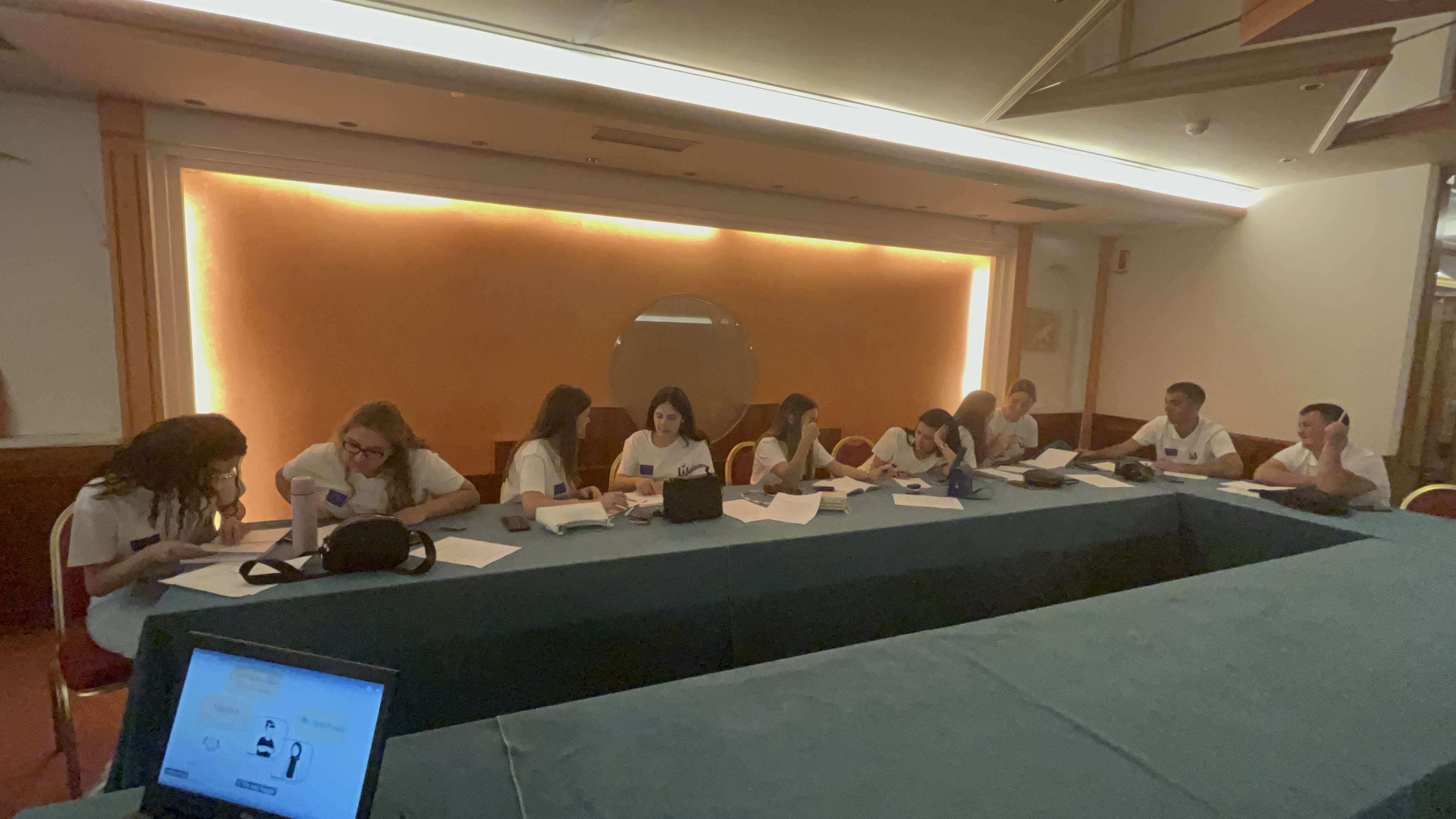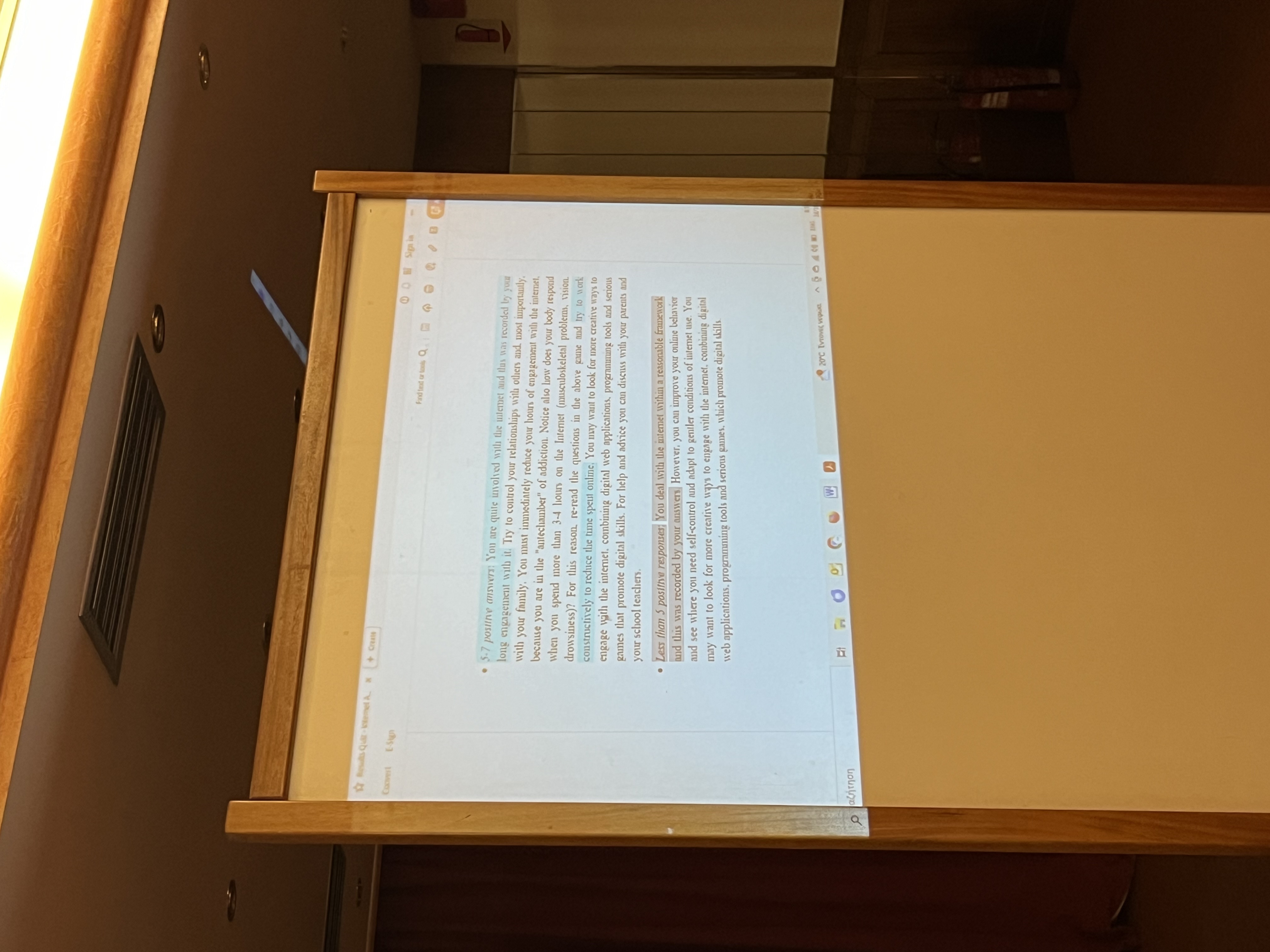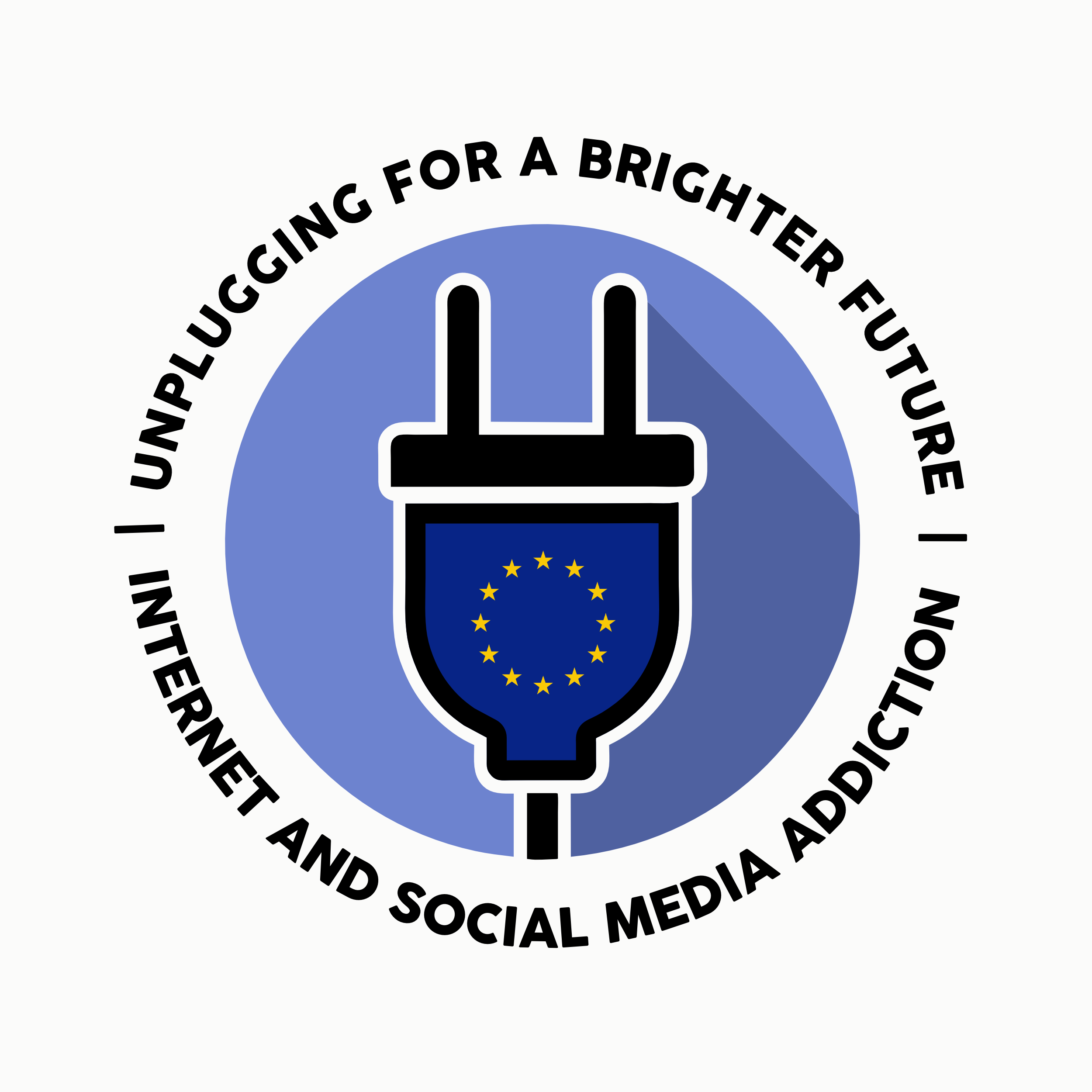Local Activities
3rd Series of Workshops
28/12/2025 - STEP: Puppet Theater Addressing Digital Addiction
As the festive season was winding down, a different kind of story unfolded in Snina on December 28, 2025. Orchestrated by the STEP organization, this unique puppet theatre performance shifted the focus from public life to the private sanctuary of our homes, tackling the pressing issue of internet and social media addiction.
Through the expressive medium of puppetry, the audience was taken on a journey into the quiet struggles that often go unnoticed behind closed doors. The play vividly illustrated how the digital world intrudes upon family dynamics, stealing precious time and replacing shared intimacy with the cold glow of screens. It served as a powerful mirror to our modern reality, urging spectators to recognize how easily virtual habits can disrupt personal routines and emotional connections. Ultimately, the performance was a call to action, inspiring everyone to establish healthier boundaries and reclaim the authentic moments that truly shape our well-being.
27/12/2025 - STEP: Digital Addiction in the Context of Social Media & Animation Theater Addressing Social Media Addiction
Later that same day, December 27, 2025, the student team from Gymnázium sv. Cyrila a Metoda convened the second workshop of the project's third series, shifting the focus toward a deeper analysis of the root causes of digital dependency. In this session, the group engaged in intensive brainstorming exercises designed to categorize the risk factors of digital addiction into distinct individual, community, and societal domains. By breaking down these complex influences, the participants were able to analyze real-life scenarios and identify the specific underlying drivers—ranging from personal self-esteem issues to broader social pressure—that make individuals vulnerable to excessive online engagement.
The workshop then moved to a practical examination of the often-blurred line between enthusiastic internet use and actual addiction. Using visual aids and a set of detailed case studies, the peer trainers guided the group through common forms of digital dependency that can easily be mistaken for casual online activity. Working with these concrete examples allowed the students to pinpoint specific warning signs and discuss effective prevention strategies. The day concluded with a powerful session dedicated to social-emotional learning, where the participants shared personal experiences and supported one another, reinforcing the idea that combating internet and social media addiction requires a collaborative, empathetic, and community-driven approach.
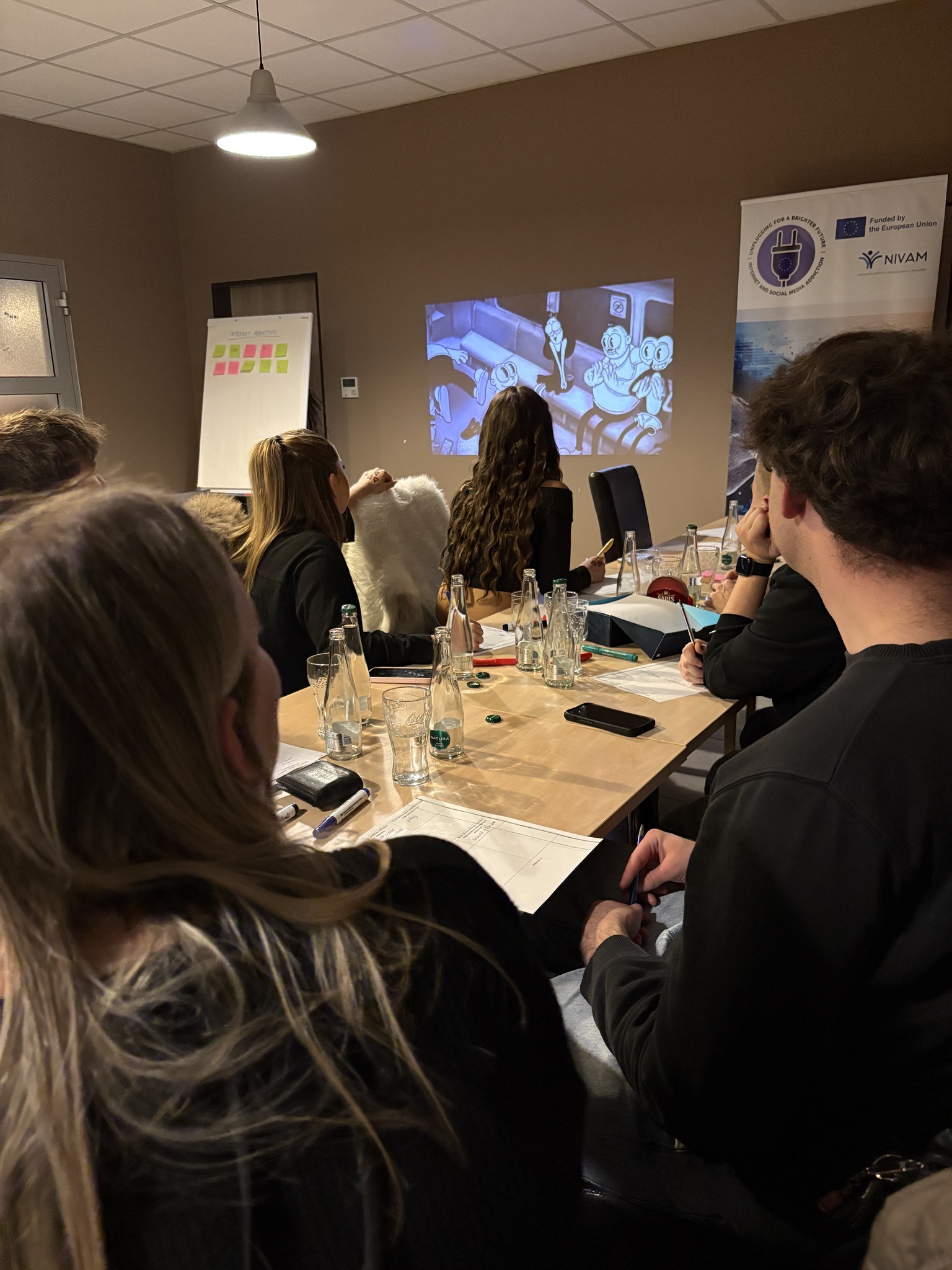
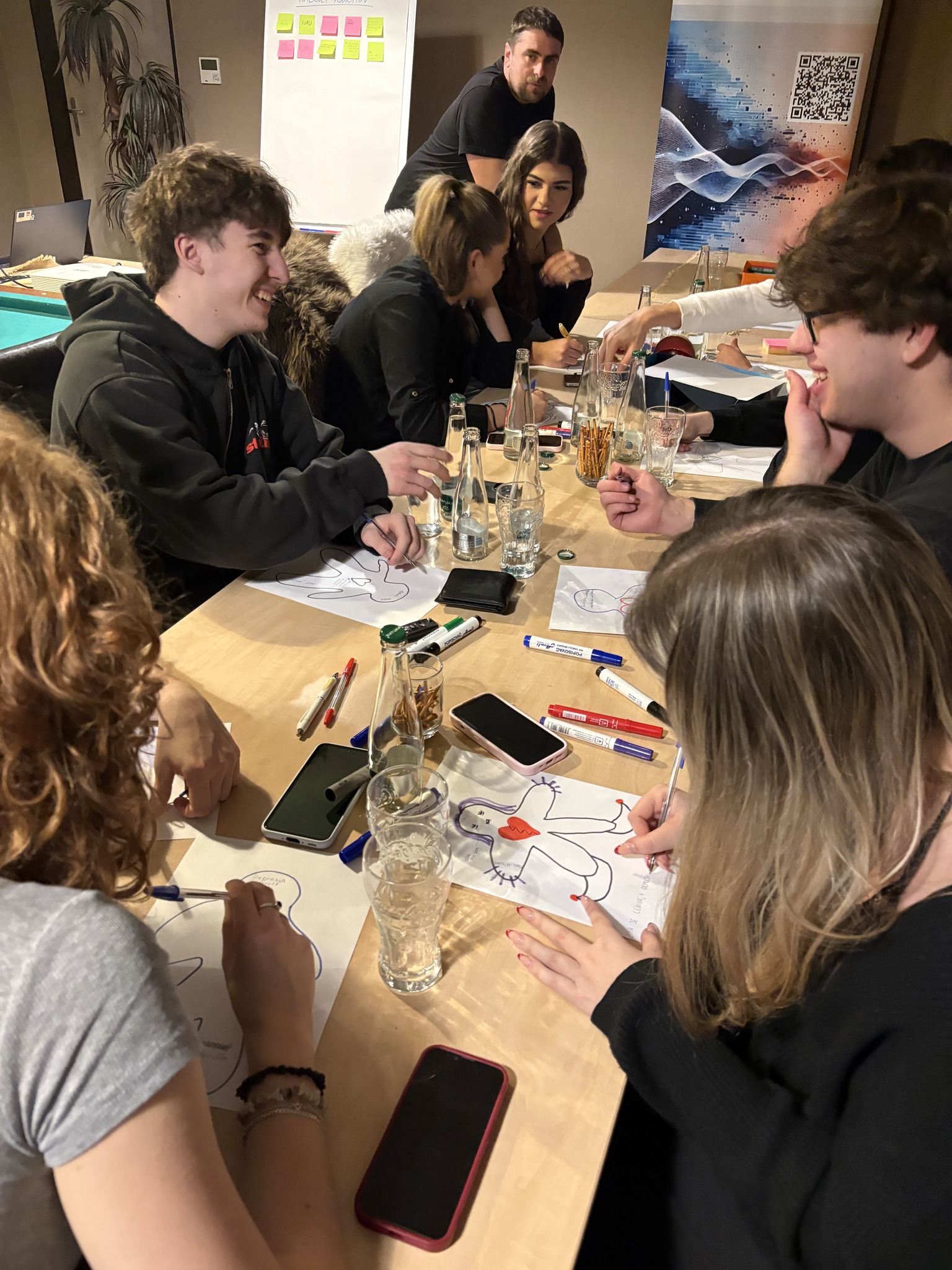
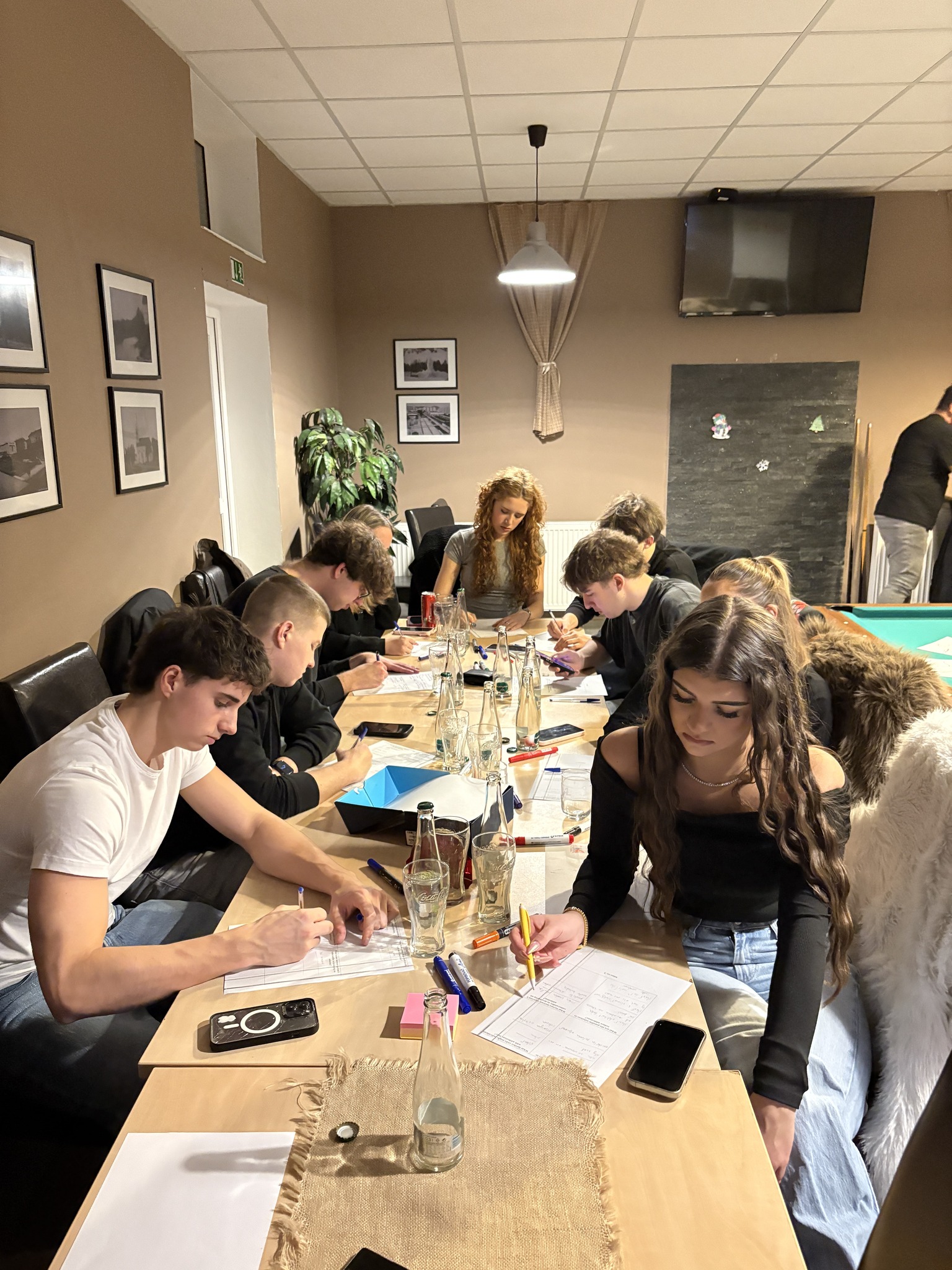
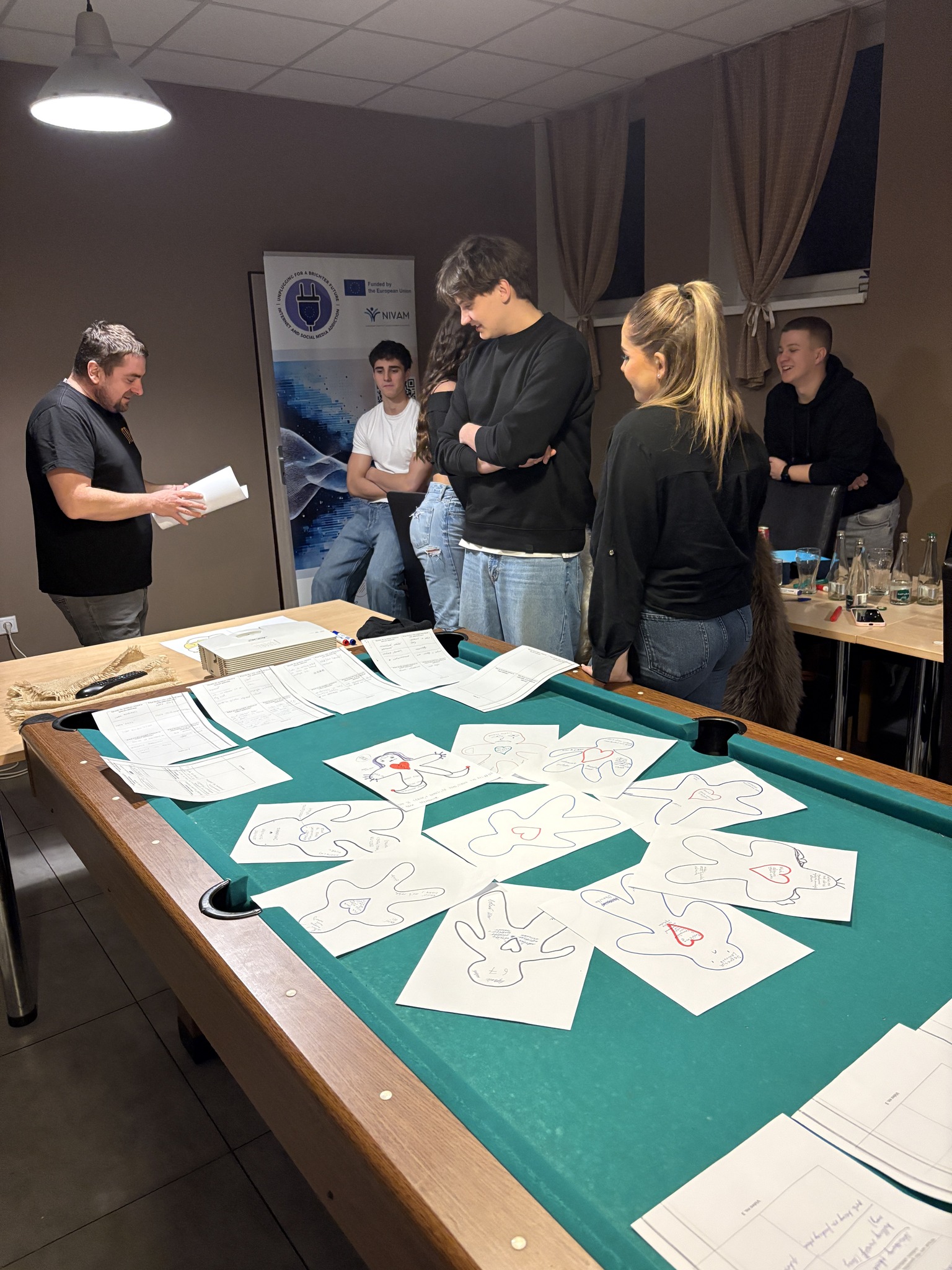
27/12/2025 - STEP: Factors Contributing to Digital Addiction and Risk Factors & Common Forms of Digital Addiction and Their Similarities with Casual Online Usage
Students from Gymnázium sv. Cyrila a Metoda in Snina gathered to launch the first workshop of the third series within the Erasmus+ KA210 project, "Unplugging for a brighter future: Internet and Social media addiction." Amidst the quiet of the post-Christmas holidays, when screen time typically spikes, this event prioritized digital well-being by focusing on the crucial boundary between everyday technology use and the habits that can lead to addiction. Because the session was peer-led, it established a unique atmosphere of trust and openness, allowing participants to candidly discuss the pressures of social media and the impact of the digital world on their mental health without fear of judgment.
The workshop moved beyond a traditional lecture format, engaging participants in dynamic group activities designed to uncover the mechanics of Internet and Social Media Addiction (ISMA). Together, the group worked to identify subtle warning signs, such as the loss of time awareness, the neglect of real-world responsibilities, and the anxiety that often accompanies disconnecting. Through collaborative discussions, the students examined how online environments can distort one's perception of reality and self-image before shifting their focus toward empowerment. By brainstorming practical strategies for "digital detoxing" and exploring ways to cultivate a balanced lifestyle, the participants demonstrated that this new phase of the project is successfully motivating the younger generation to build a healthier, more controlled relationship with technology.
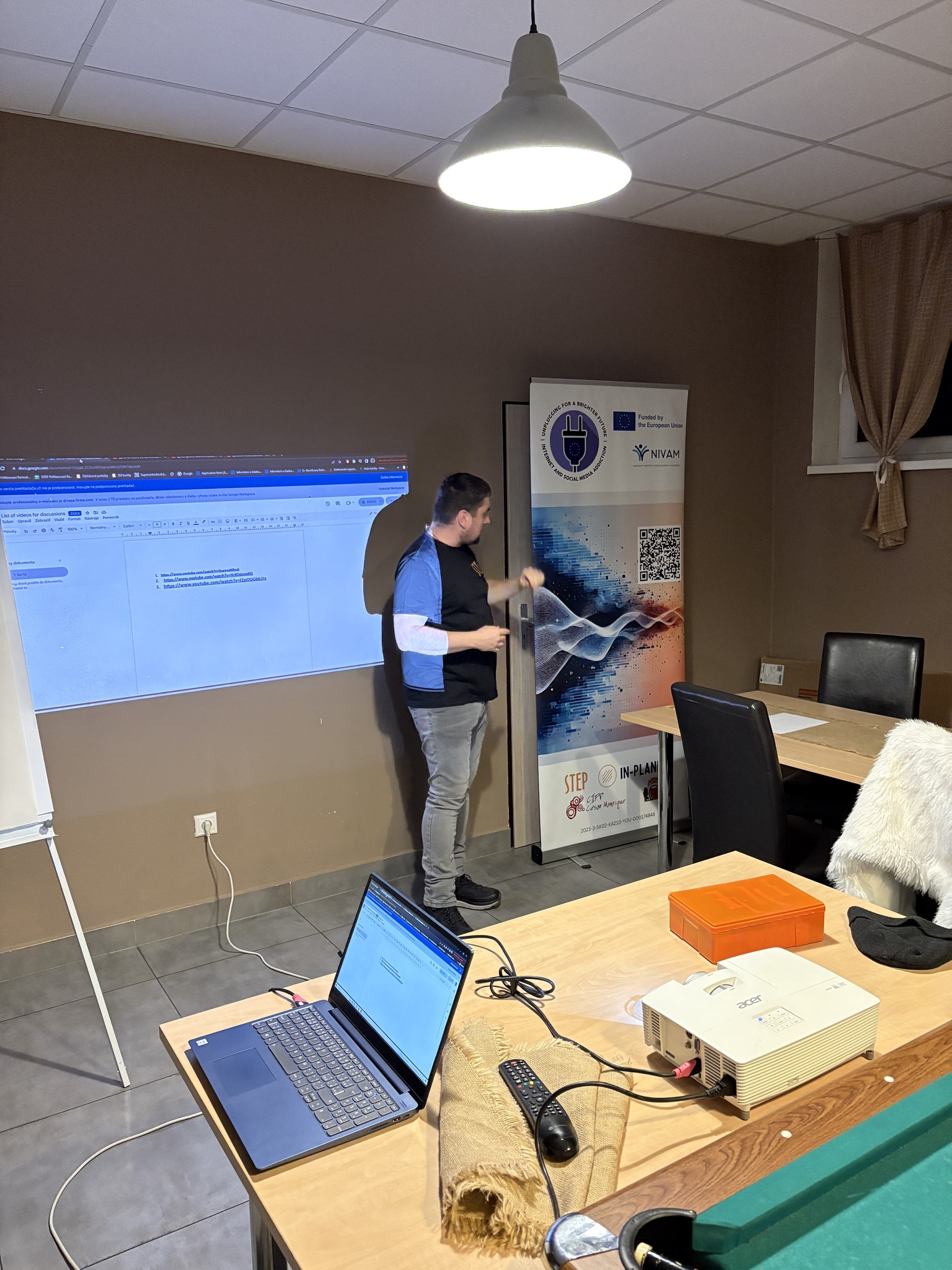
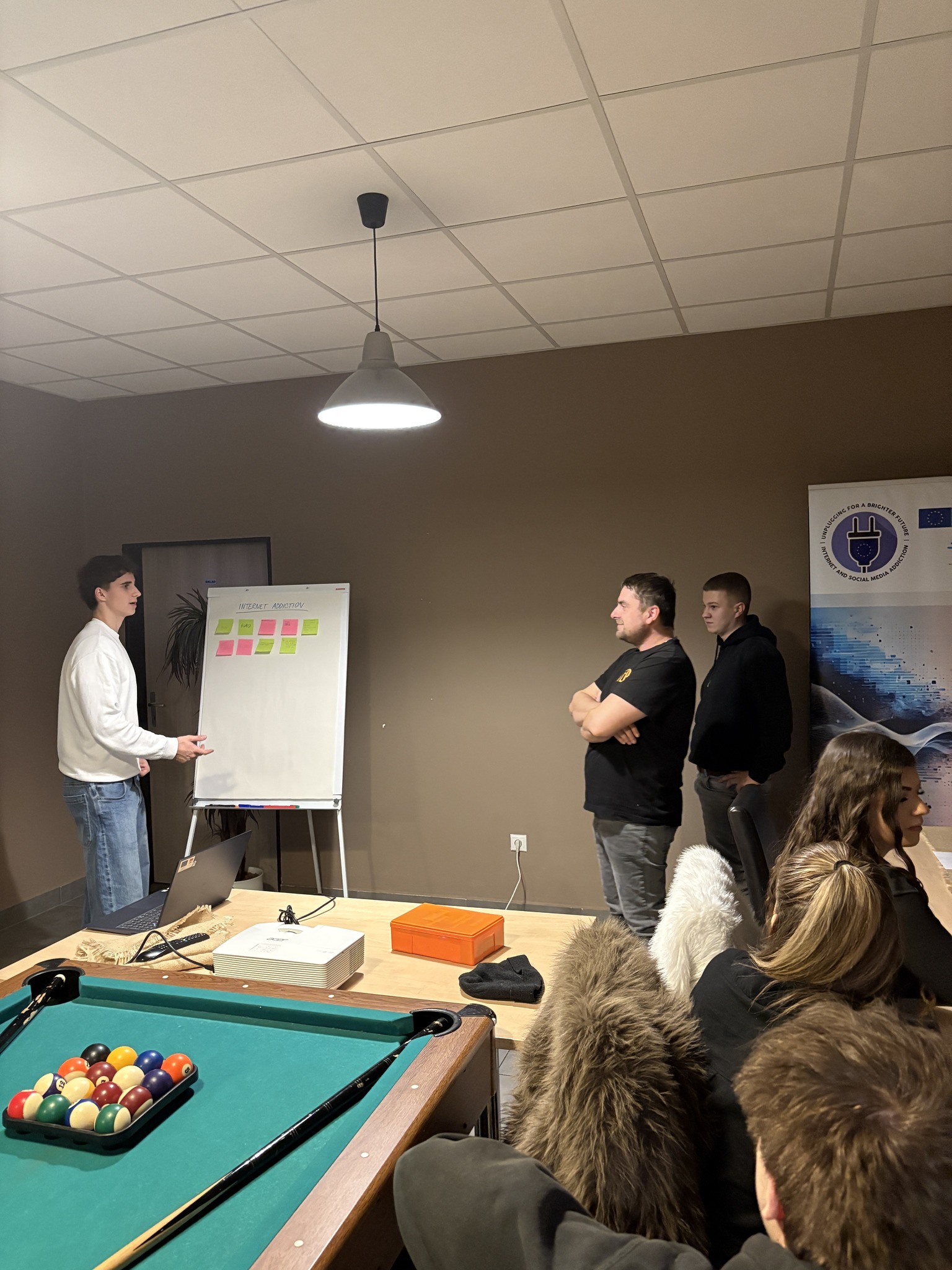
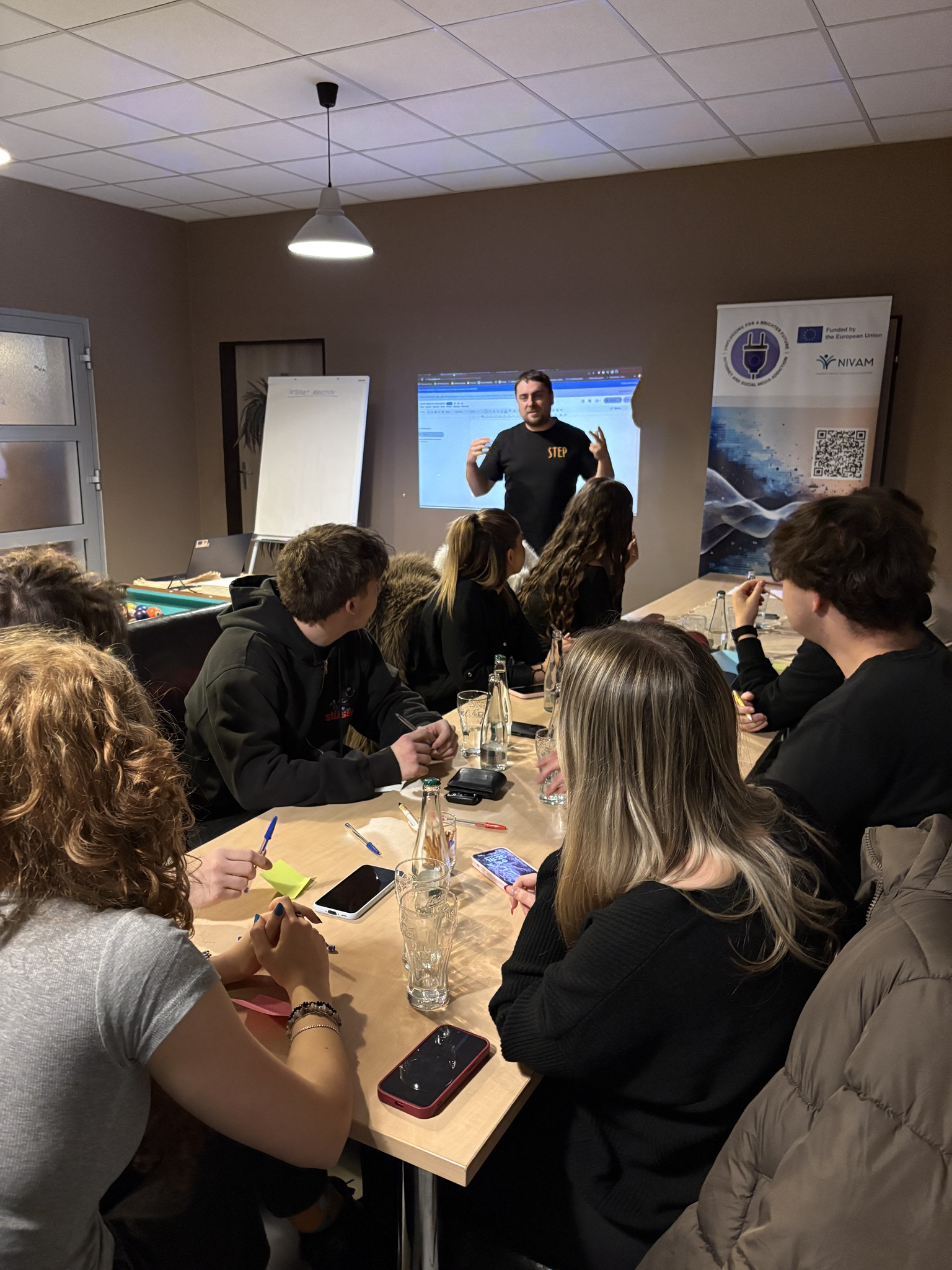
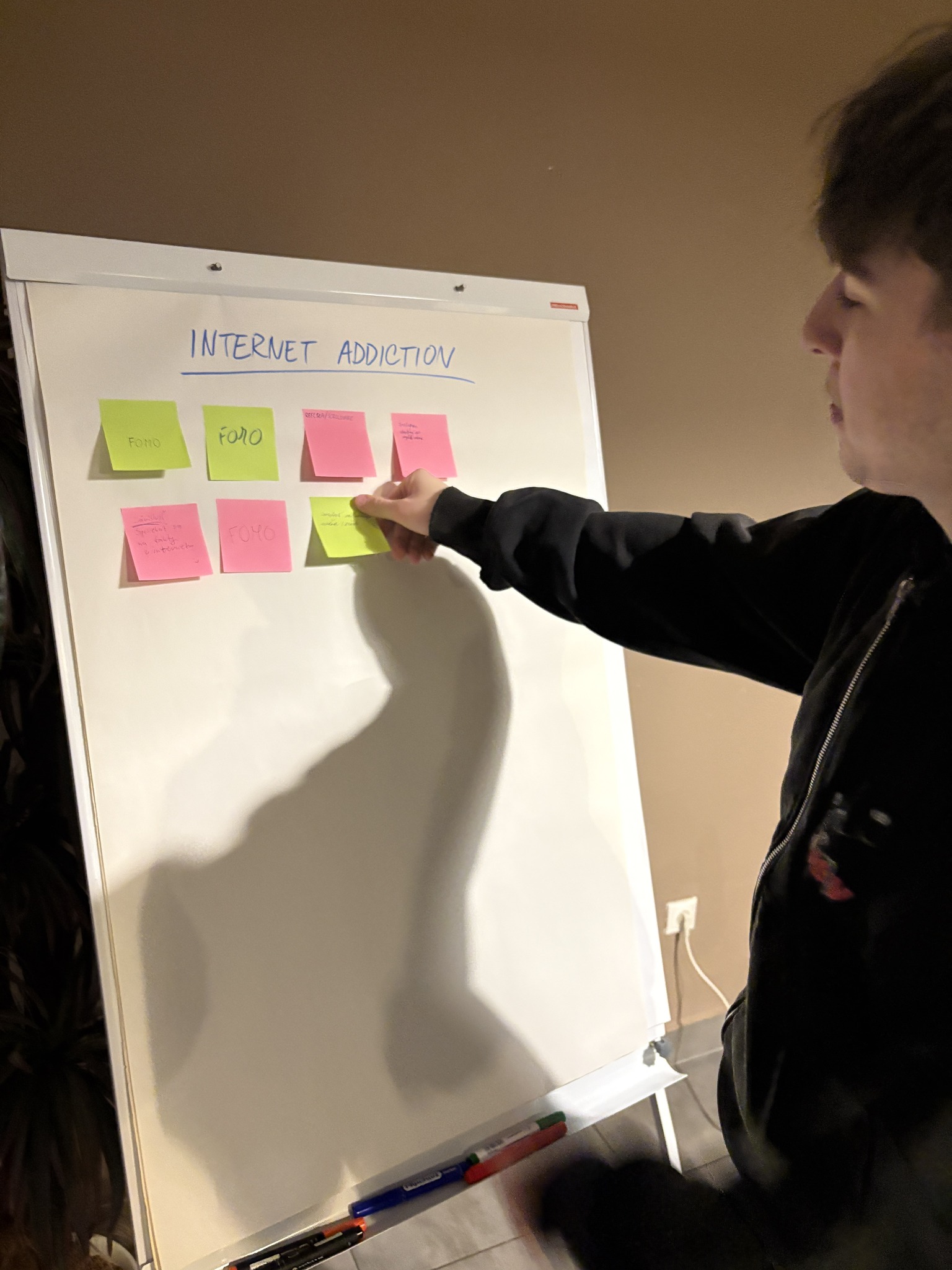
20/12/2025 - CIFP César Manrique: Puppet Theater Addressing Digital Addiction
A short recap video highlighting the key moments of our workshop at CIFP César Manrique, developed within the Erasmus+ KA210-YOU project Unplugging for a Brighter Future: Internet and Social Media Addiction. The video features the creative Puppet Theater activity.
19/12/2025 - CIFP César Manrique: Digital Addiction in the Context of Social Media & Animation Theater Addressing Social Media Addiction
A short recap video featuring highlights from our student-led workshop at CIFP César Manrique, developed within the Erasmus+ KA210-YOU project Unplugging for a Brighter Future: Internet and Social Media Addiction. The video captures key moments from the activities “Digital Addiciton in the Context of Social Media” and “Animation Theater Addressing Social Media Addiction”, showcasing teamwork, creative reflection, and open dialogue on healthier digital habits.
18/12/2025 - CIFP César Manrique: Factors Contributing to Digital Addiction and Risk Factors & Common Forms of Digital Addiction and Their Similarities with Casual Online Usage
A short recap video capturing highlights from our student-led workshop at CIFP César Manrique, developed within the Erasmus+ KA210-YOU project Unplugging for a Brighter Future: Internet and Social Media Addiction. The video features key moments from “Factors Contributing to Digital Addiction and Risk Factors – Teamwork” and “Common Forms of Digital Addiction and Their Similarities with Casual Online Usage”, showing collaborative work, reflection, and open dialogue to promote healthier digital habits.
17/12/2025 - MTEC: Puppet Theater Addressing Digital Addiction
Gymnasium department students of MTEC took part in a creative public performance activity using puppets (toys) to represent real-life situations. Through these performances, students explored how digital addiction can destroy relationships, friendships, and even academic success.
Working in groups, students wrote their own scenarios, discussed real-life problems related to excessive screen time, and prepared short puppet shows. Each group was responsible for developing a clear storyline, assigning roles, and rehearsing their performance. The activity encouraged cooperation, creativity, and critical thinking.
The performances helped students better understand the negative impact of digital addiction while also improving their communication and language skills. By presenting their ideas in front of others, students gained confidence and learned how to express important social issues in an engaging way. Overall, the activity was both educational and meaningful, leaving a strong impression on both participants and the audience.
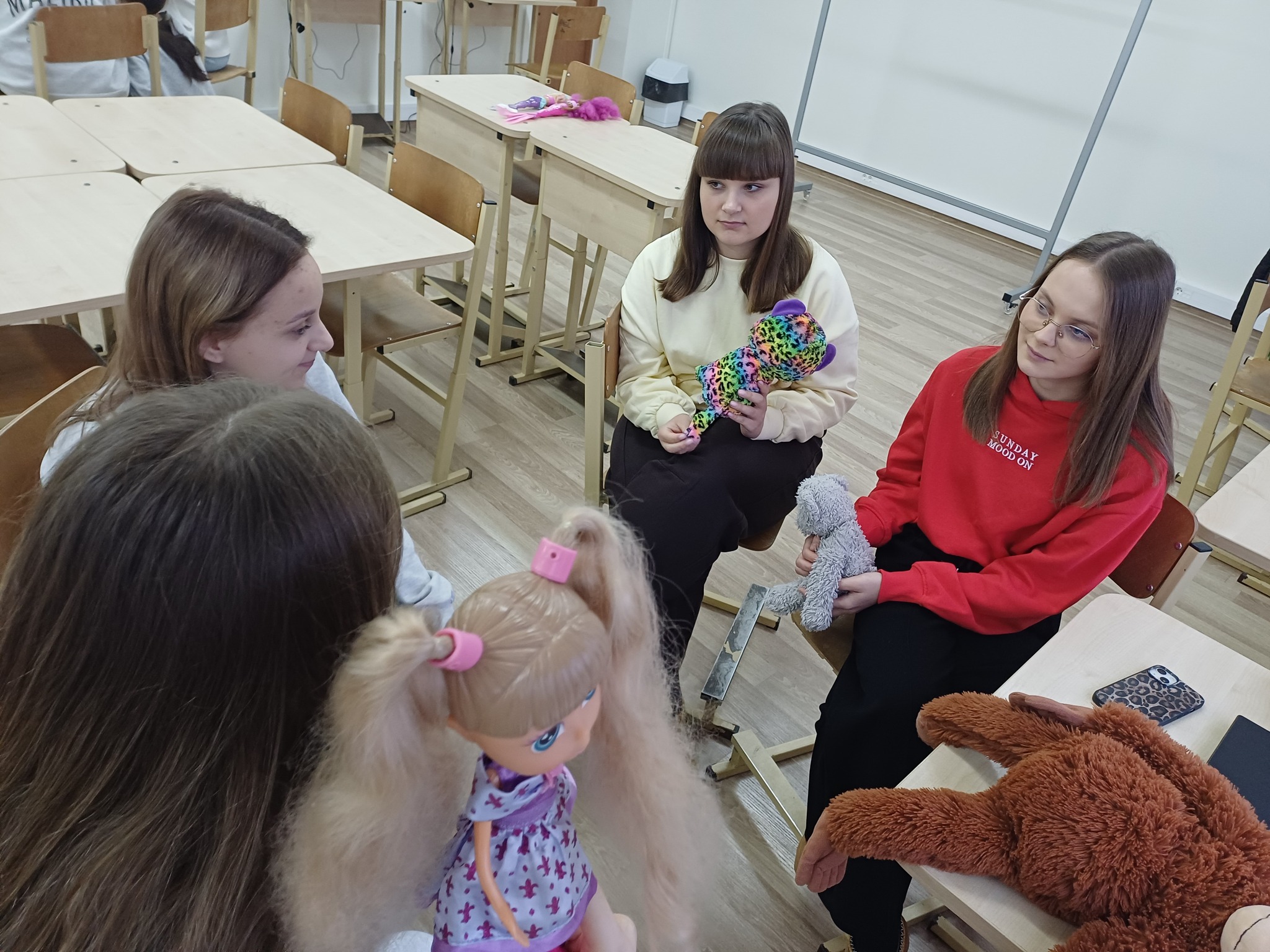
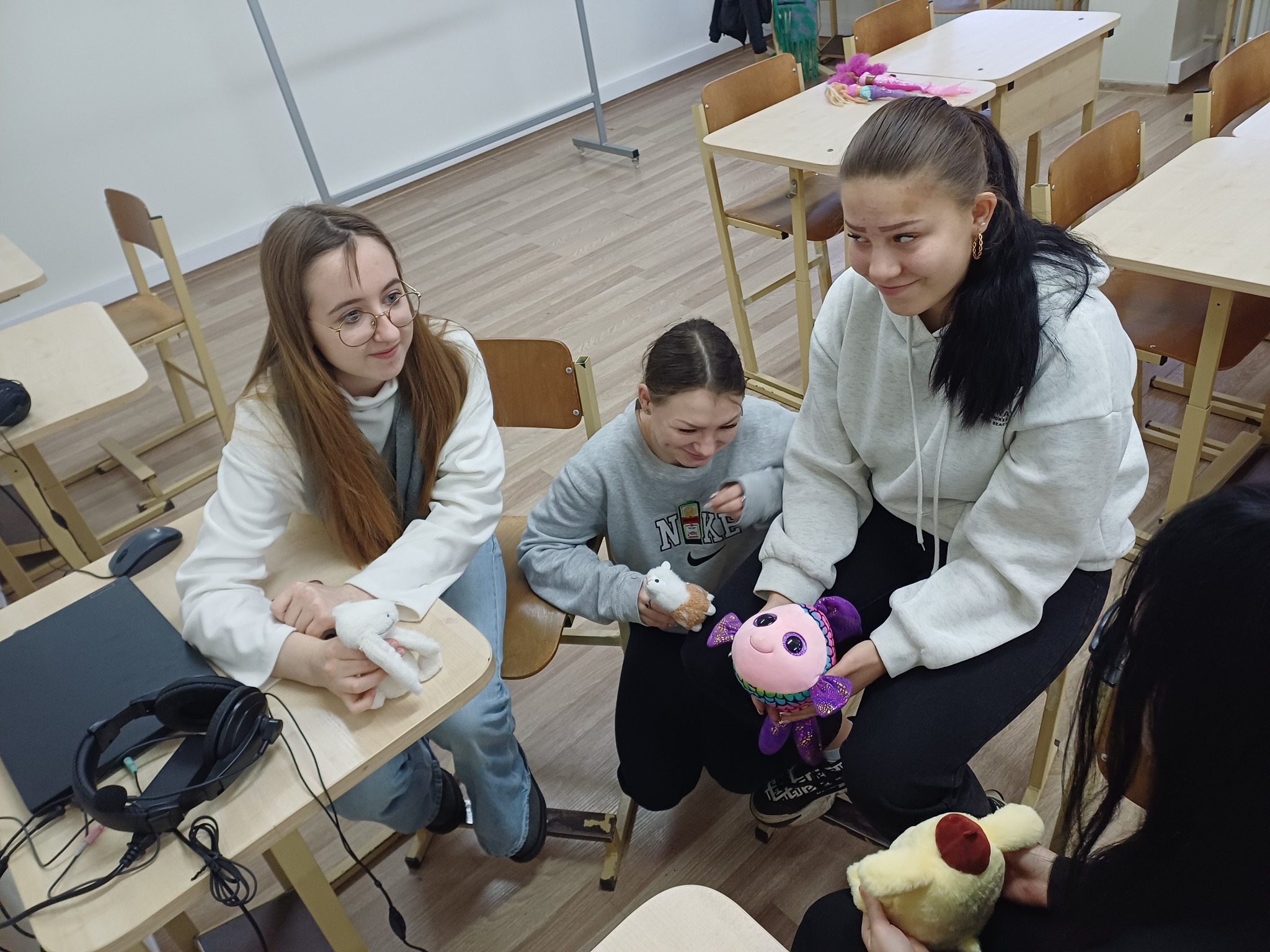
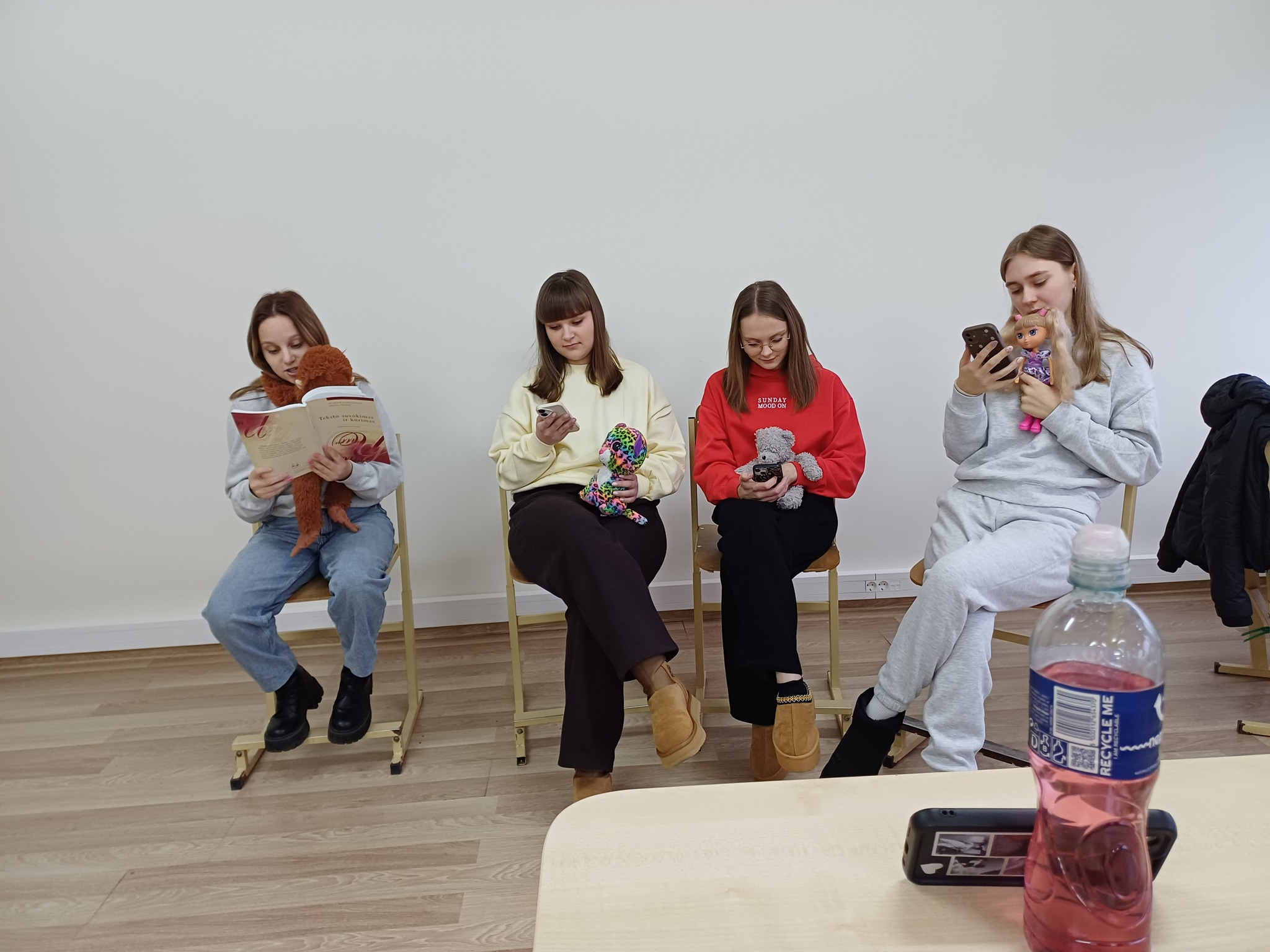
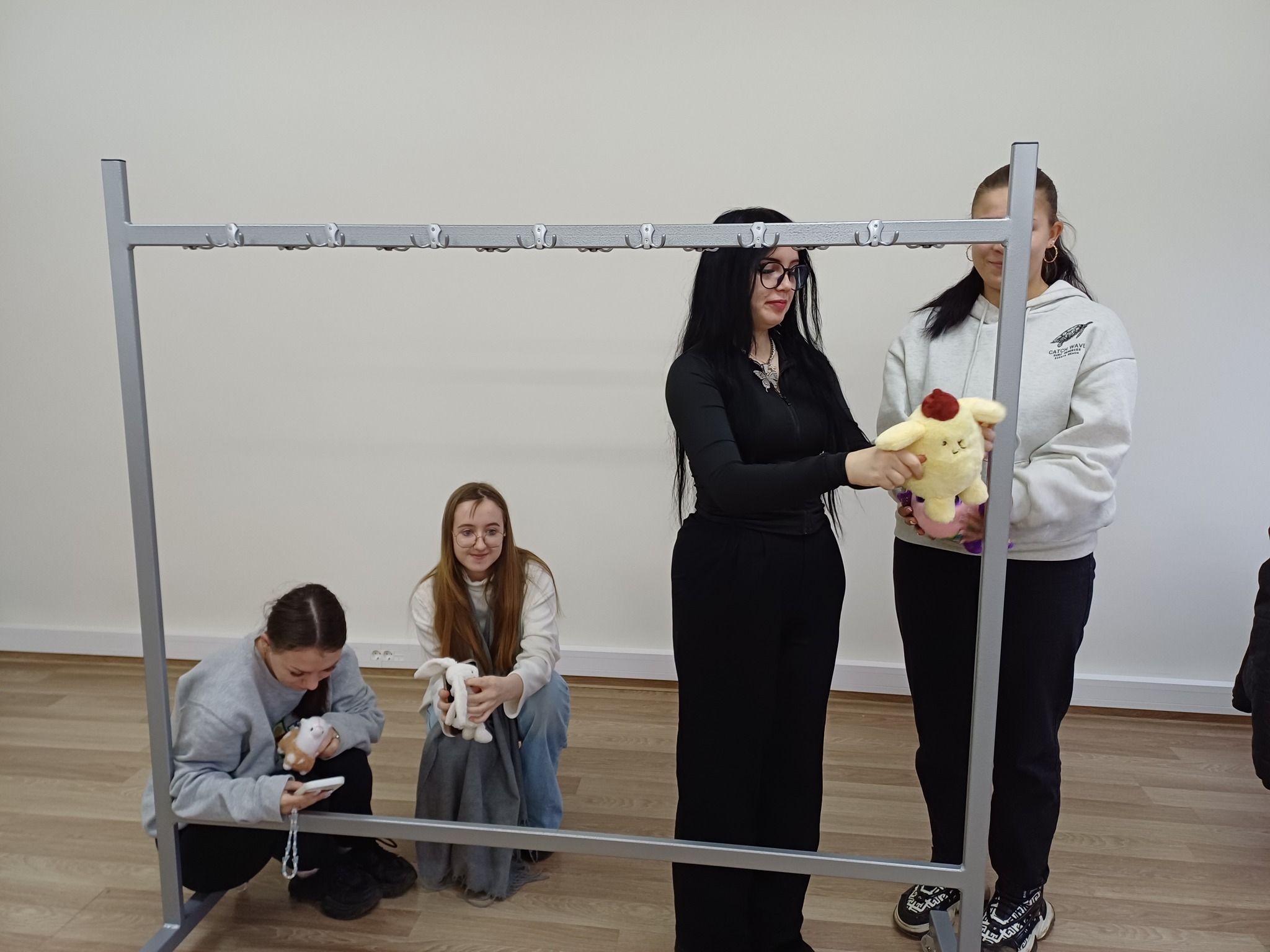
15/12/2025 - MTEC: Factors Contributing to Digital Addiction and Risk Factors & Common Forms of Digital Addiction and Their Similarities with Casual Online Usage
Through brainstorming exercises, students of MTEC categorised digital addiction factors into individual, community, and societal levels. Participants were asked to identify which individual, community, and societal factors may influence a person’s likelihood of developing an addiction.
Students were given colourful sticky notes representing different factors, and they had to write down at least three factors for each category. Working in groups, young people discussed their ideas, shared opinions, and negotiated to find common ground. This process encouraged cooperation, critical thinking, and respectful communication.
Individual factors included lack of self-control, low self-esteem, boredom, and poor time-management skills. Community-level factors focused on peer pressure, limited face-to-face social activities, and a lack of supportive environments. Societal factors highlighted the constant availability of digital technologies, social media algorithms, and cultural norms that promote constant online presence.
By organising and presenting their ideas, students developed a deeper understanding of how different levels of influence interact and contribute to digital addiction. The activity also helped them recognise that addiction is not only a personal issue but a broader social challenge.
In conclusion, the brainstorming exercise raised awareness of the complex nature of digital addiction and empowered students to reflect on their own behaviour. It encouraged them to take responsibility for their digital choices while also understanding the importance of supportive communities and responsible societal practices. Such activities contribute to building healthier digital habits and promoting long-term well-being.
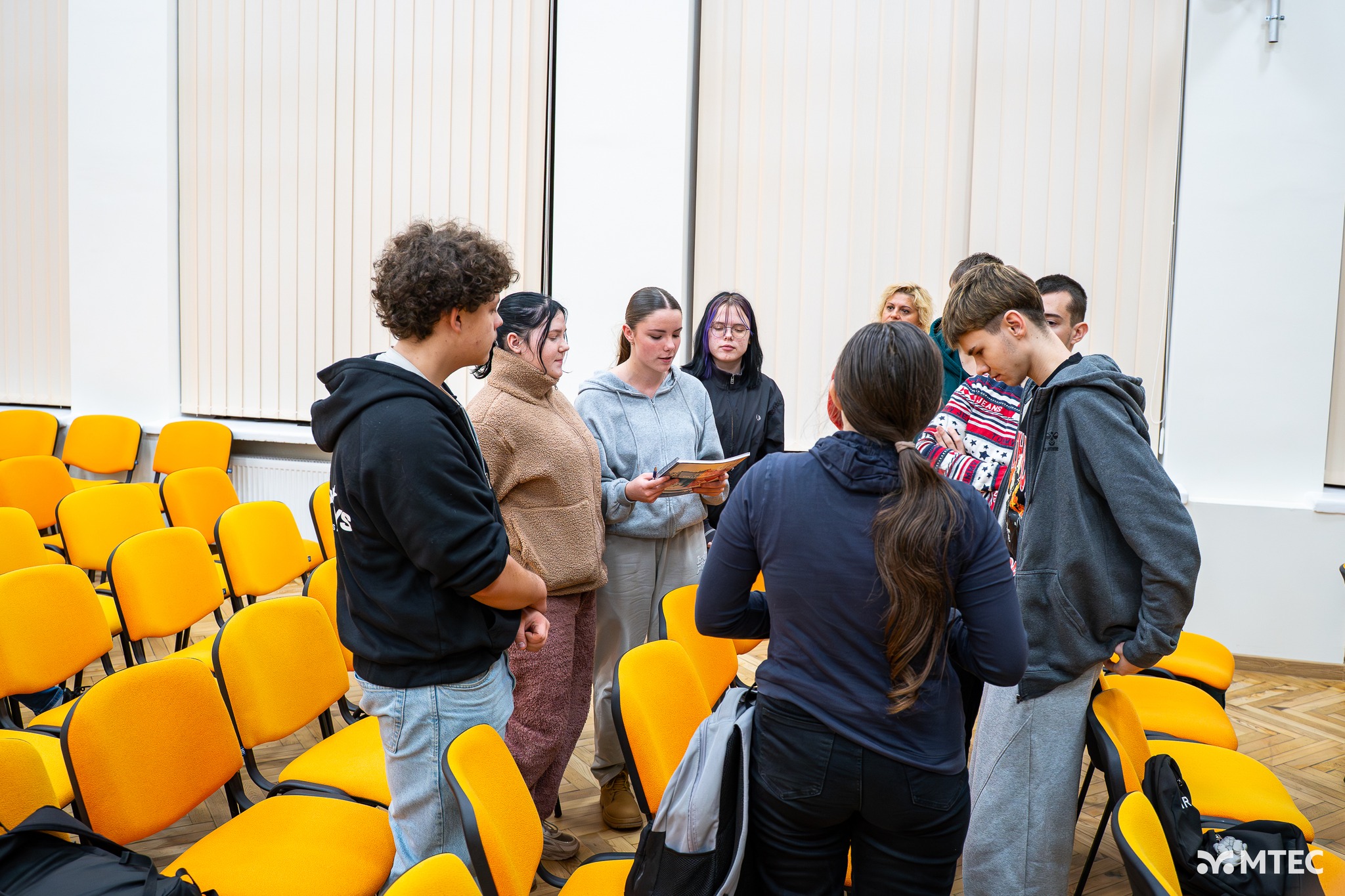
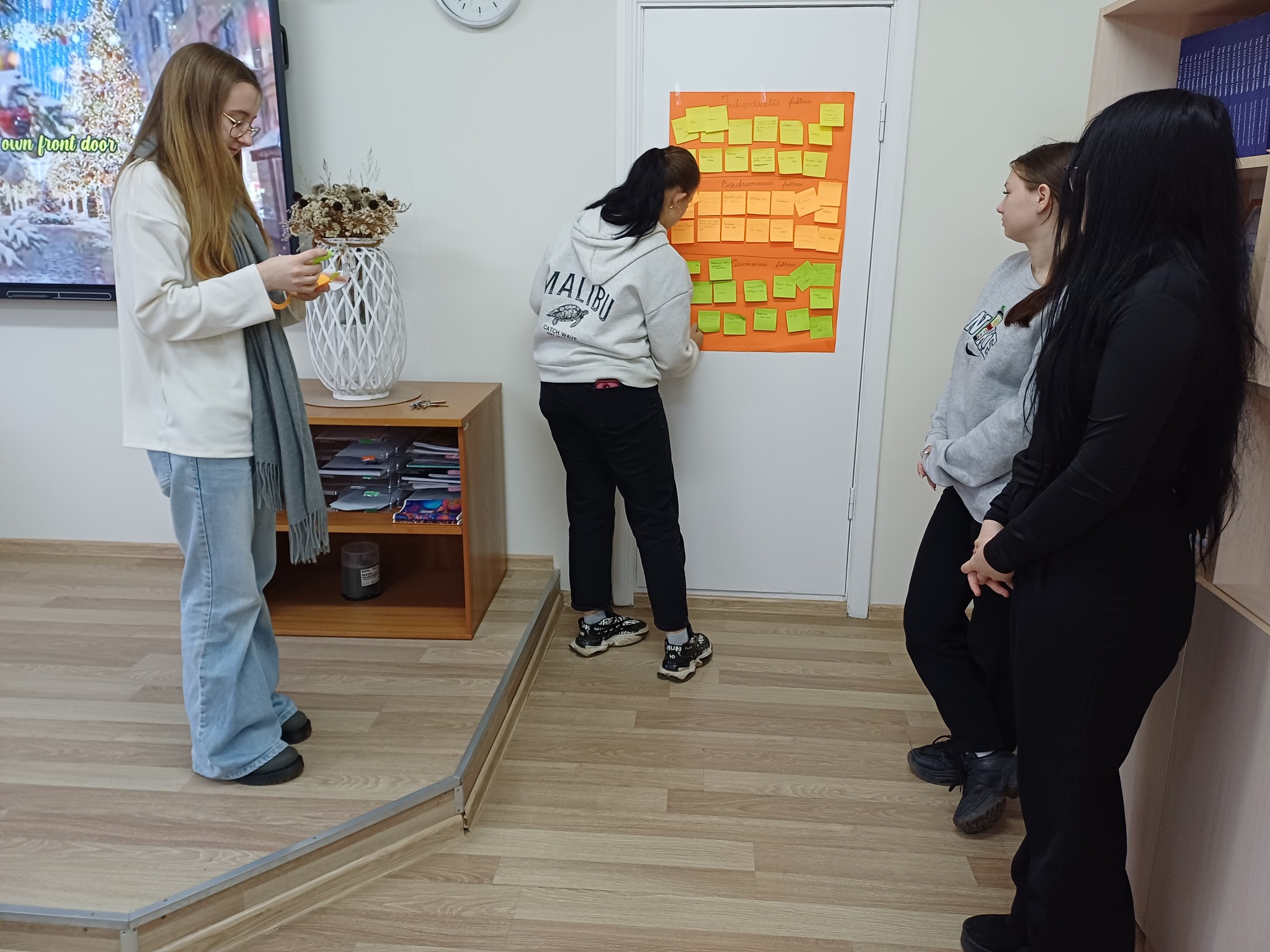
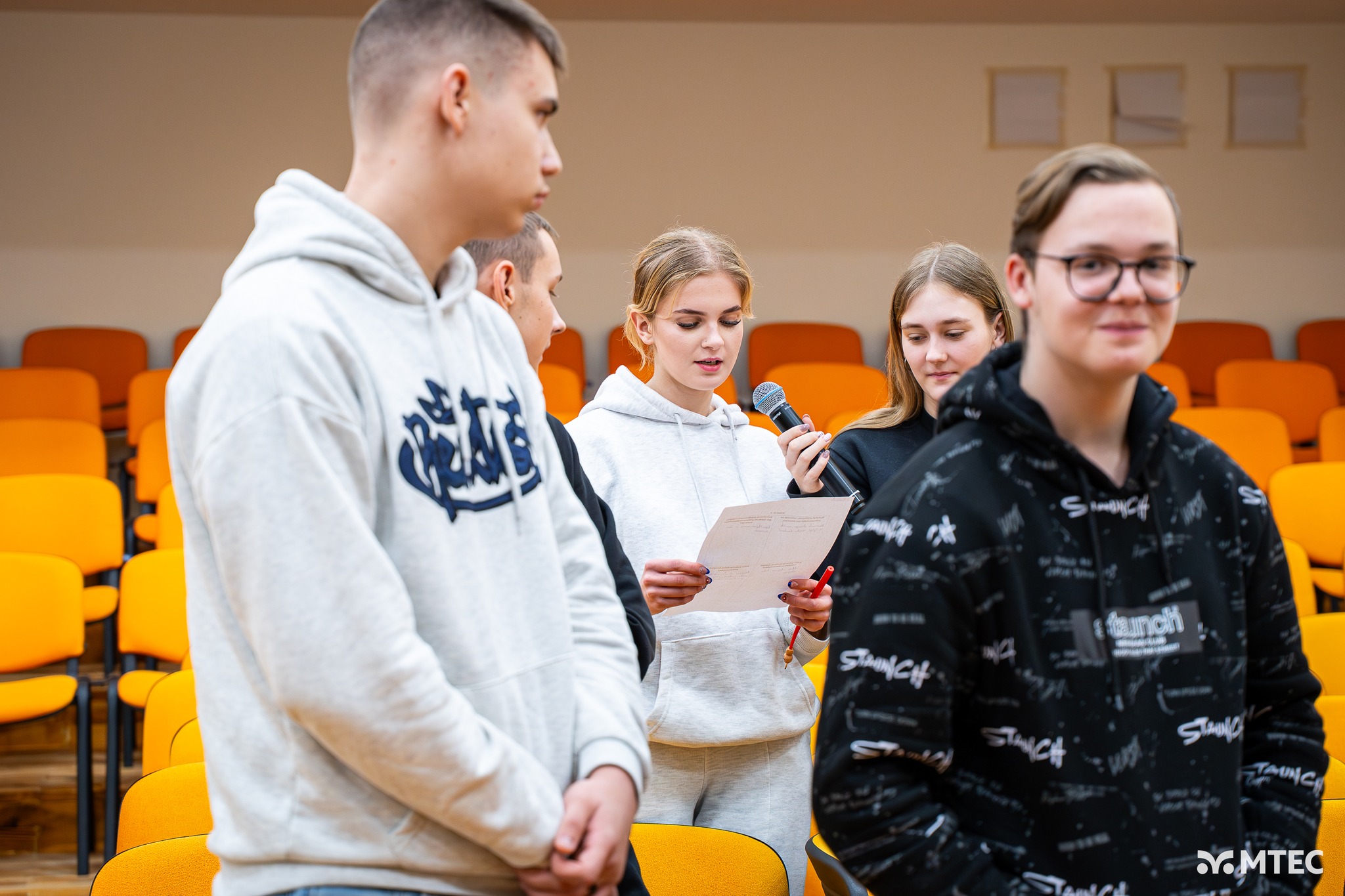
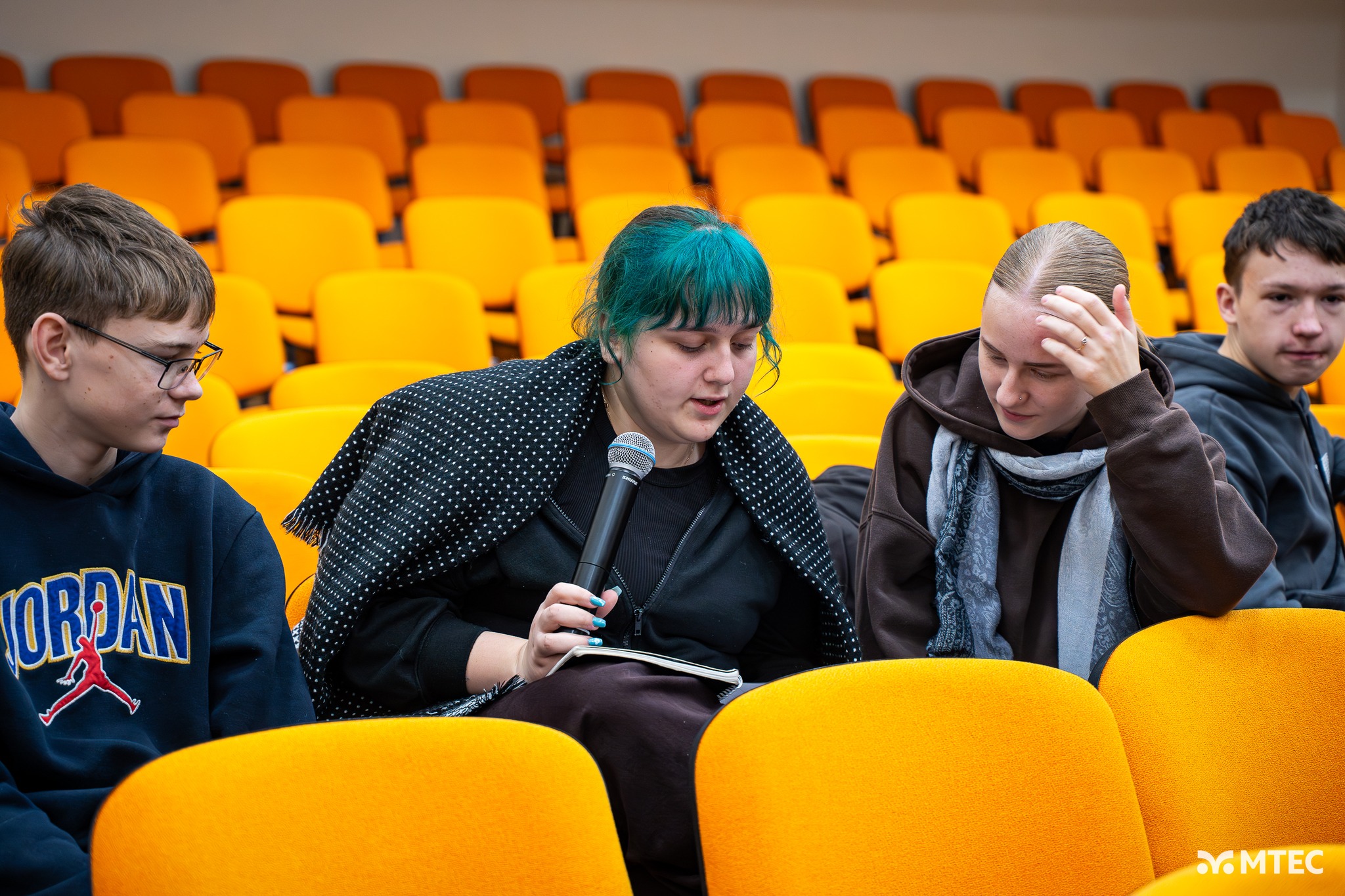
12/12/2025 - INPLANET: Factors Contributing to Digital Addiction and Risk Factors & Common Forms of Digital Addiction and Their Similarities with Casual Online Usage
Later on 12 December, IN‑PLANET continued its work with local youth through focusing on factors contributing to digital addiction and the risks that often go unnoticed.
Through collaborative brainstorming, participants explored how these factors appear at the individual, community, and societal levels, and they worked together to analyze real‑life situations where digital dependency becomes part of everyday routines.
Using visual aids and case studies, the trainer highlighted how common forms of digital addiction can easily resemble casual online behavior. Participants engaged with four detailed case studies, helping them recognize early signs of problematic use and reflect on strategies that support healthier digital habits.
The workshop concluded with an open space for sharing experiences, encouraging social‑emotional learning and strengthening the group’s collective understanding of how to combat internet and social media addiction. The honesty and connection among the young participants made this session especially meaningful, reinforcing the importance of community‑based learning in addressing modern digital challenges.
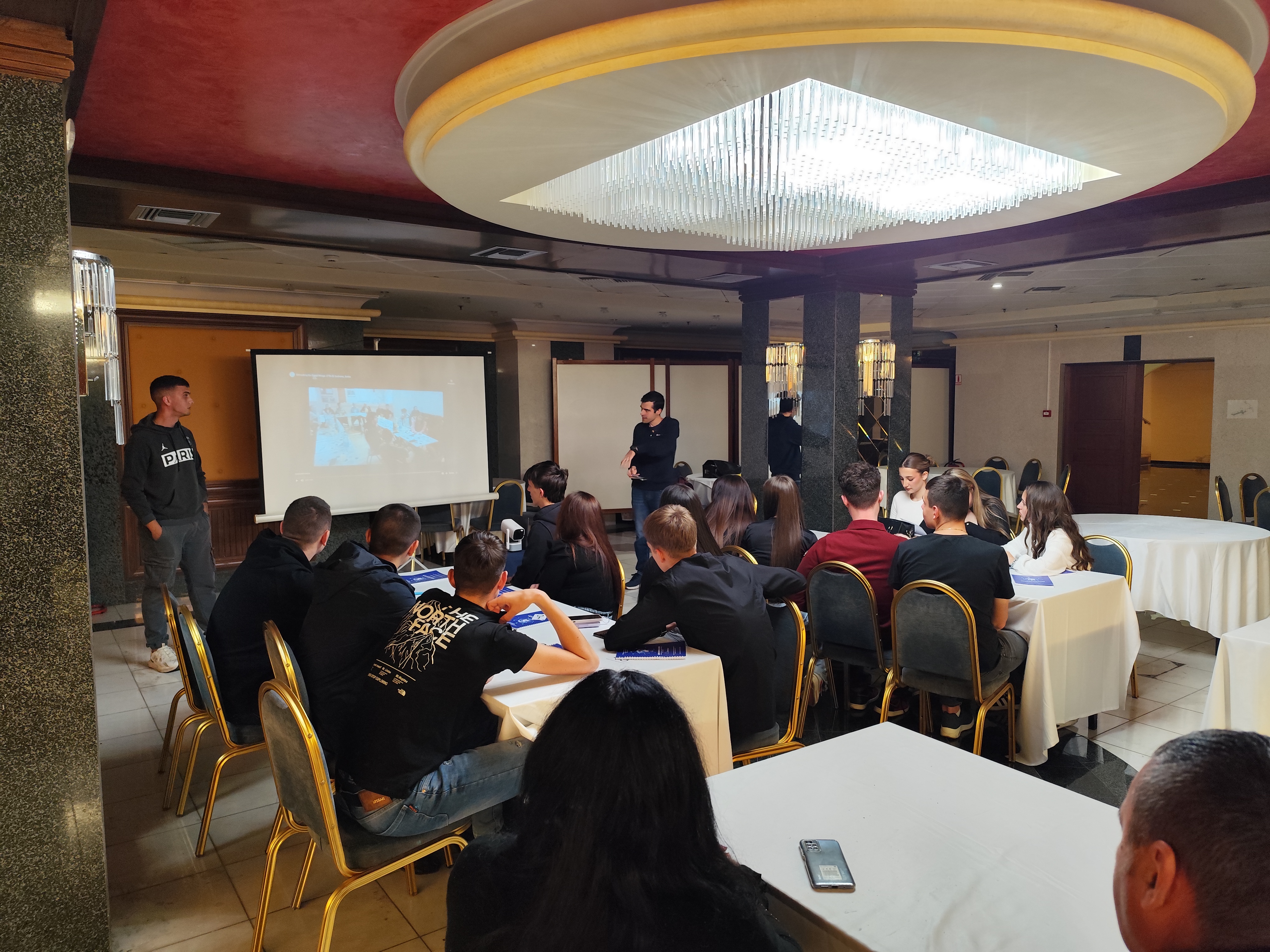
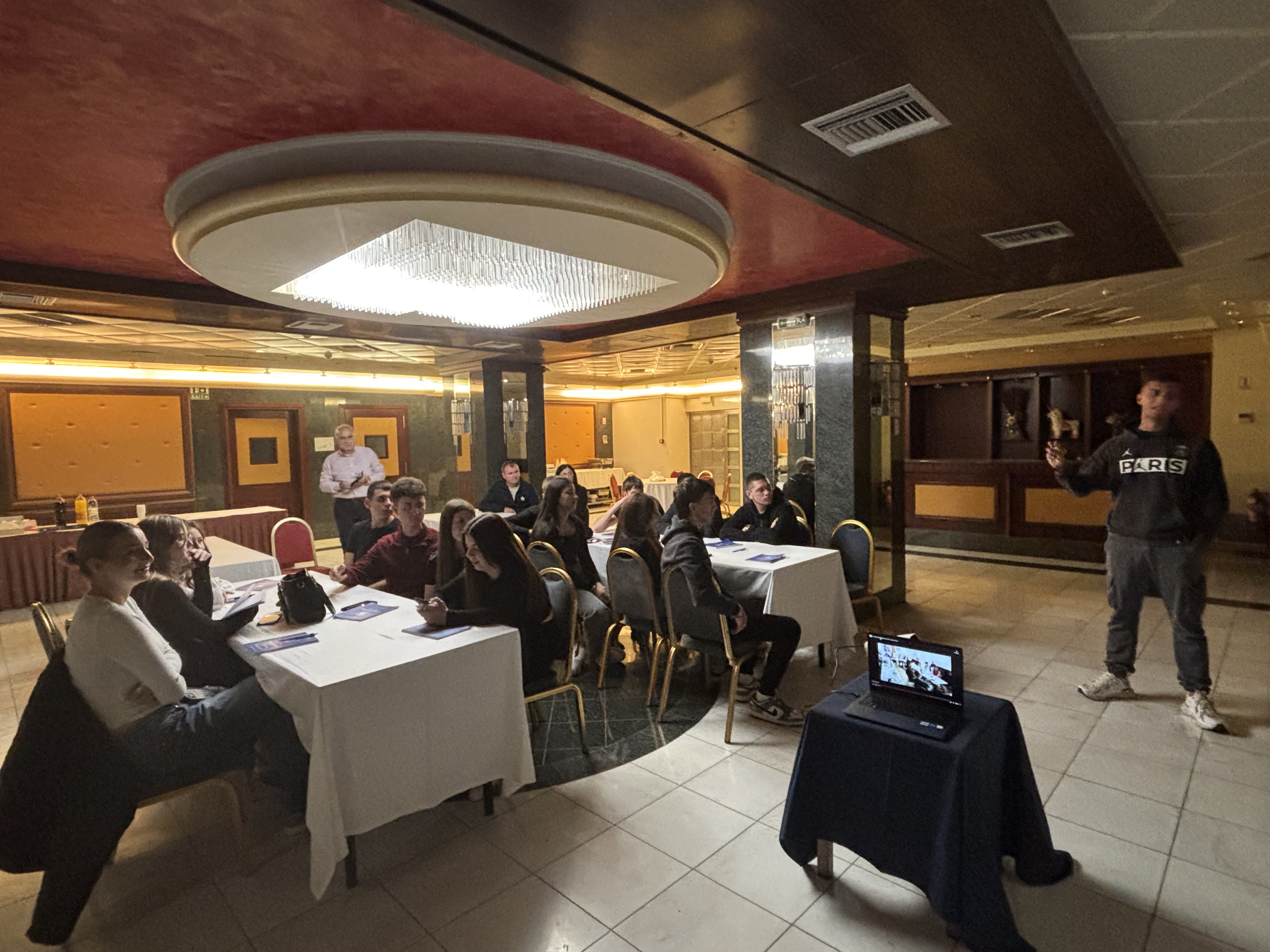
12/12/2025 - MTEC: Digital Addiction in the Context of Social Media & Animation Theater Addressing Social Media Addiction
Marijampolė VET Centre’s Gymnasium Department students had an opportunity to share experiences related to internet and social media addiction. While watching YouTube videos about digital device addiction and its negative effects, students were asked to identify problems caused by excessive internet use. They discussed further risks individuals might face, possible solutions to reduce addiction, and factors that increase a person’s vulnerability to developing addictive behaviour.
Participants actively engaged in discussions and presented real-life experiences, which provided deeper insight into how internet addiction affects everyday life, learning, and well-being. The activities encouraged critical thinking and raised awareness of responsible technology use.
In conclusion, the workshop helped students better understand the risks of internet and social media addiction and motivated them to reflect on their own digital habits. Such discussions are essential in promoting digital well-being, self-control, and healthier relationships with technology.
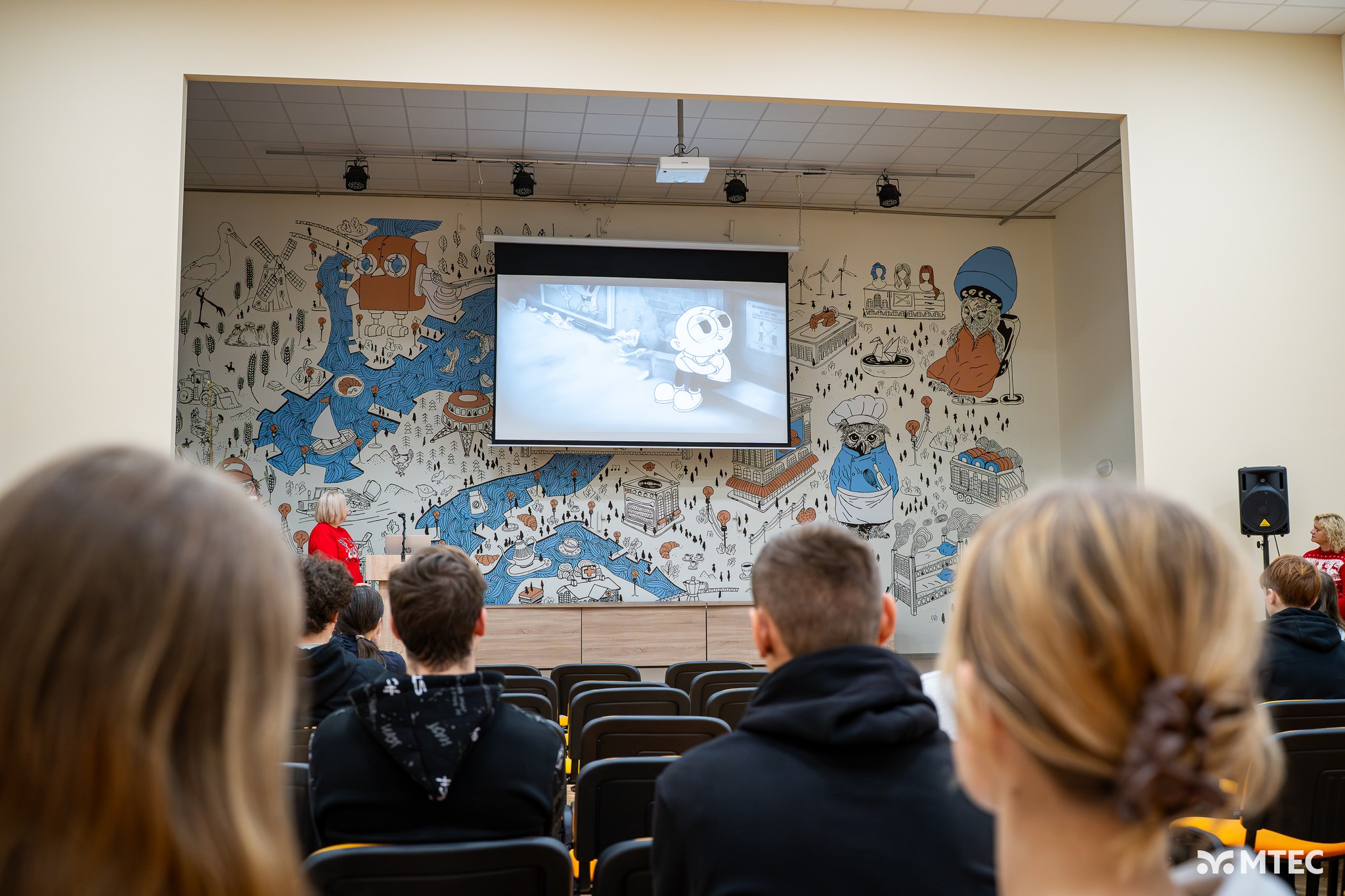
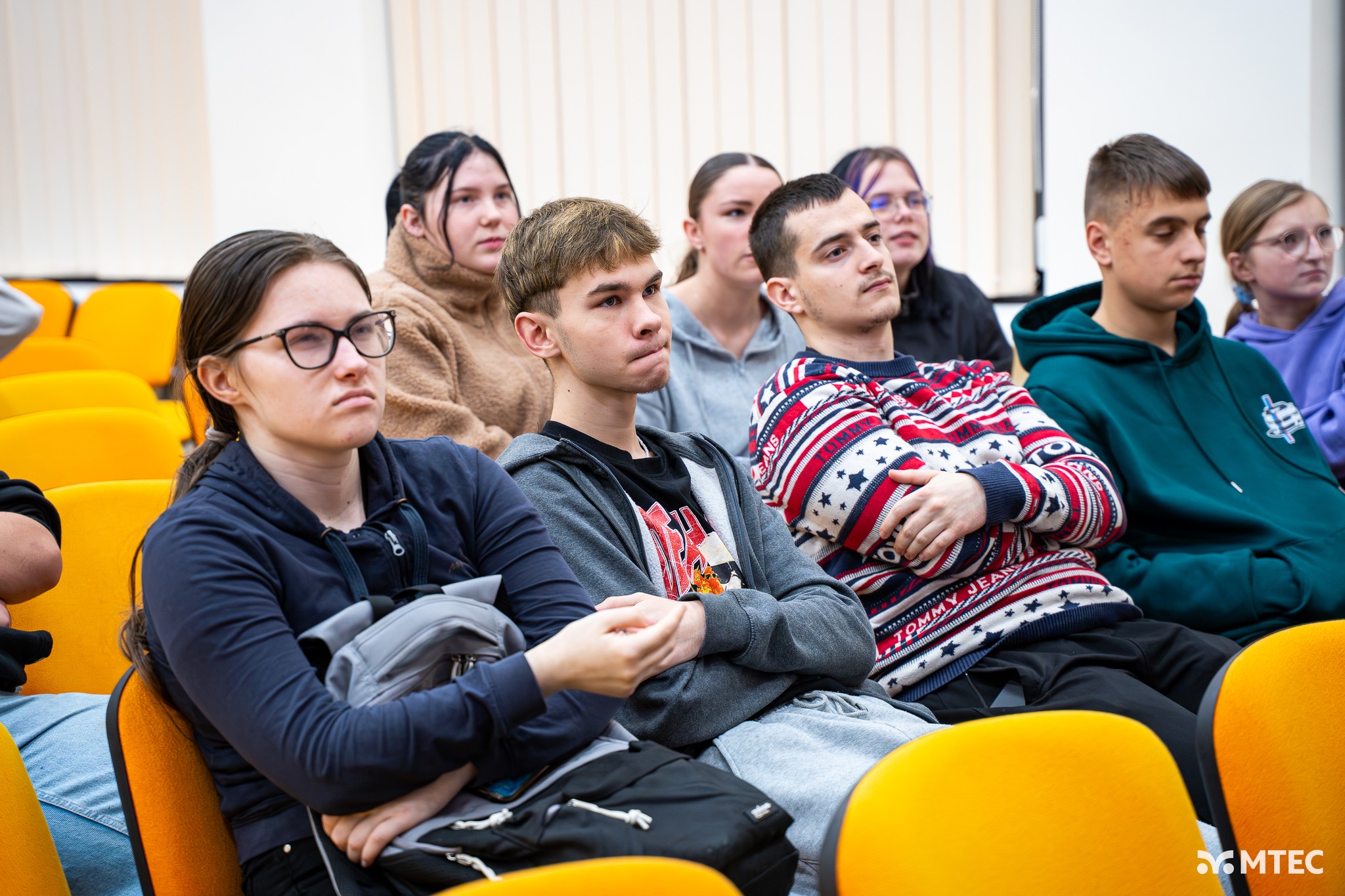
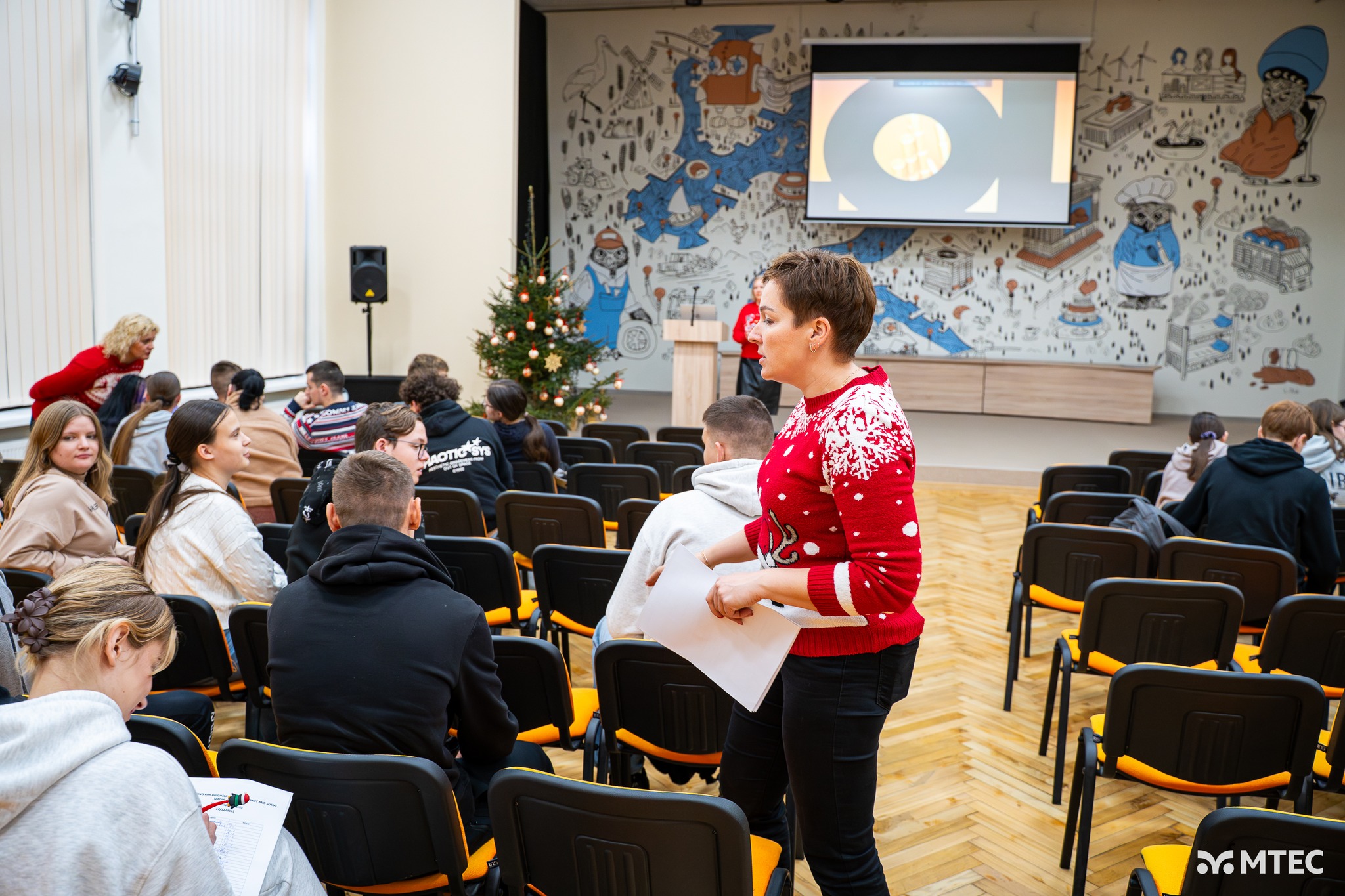
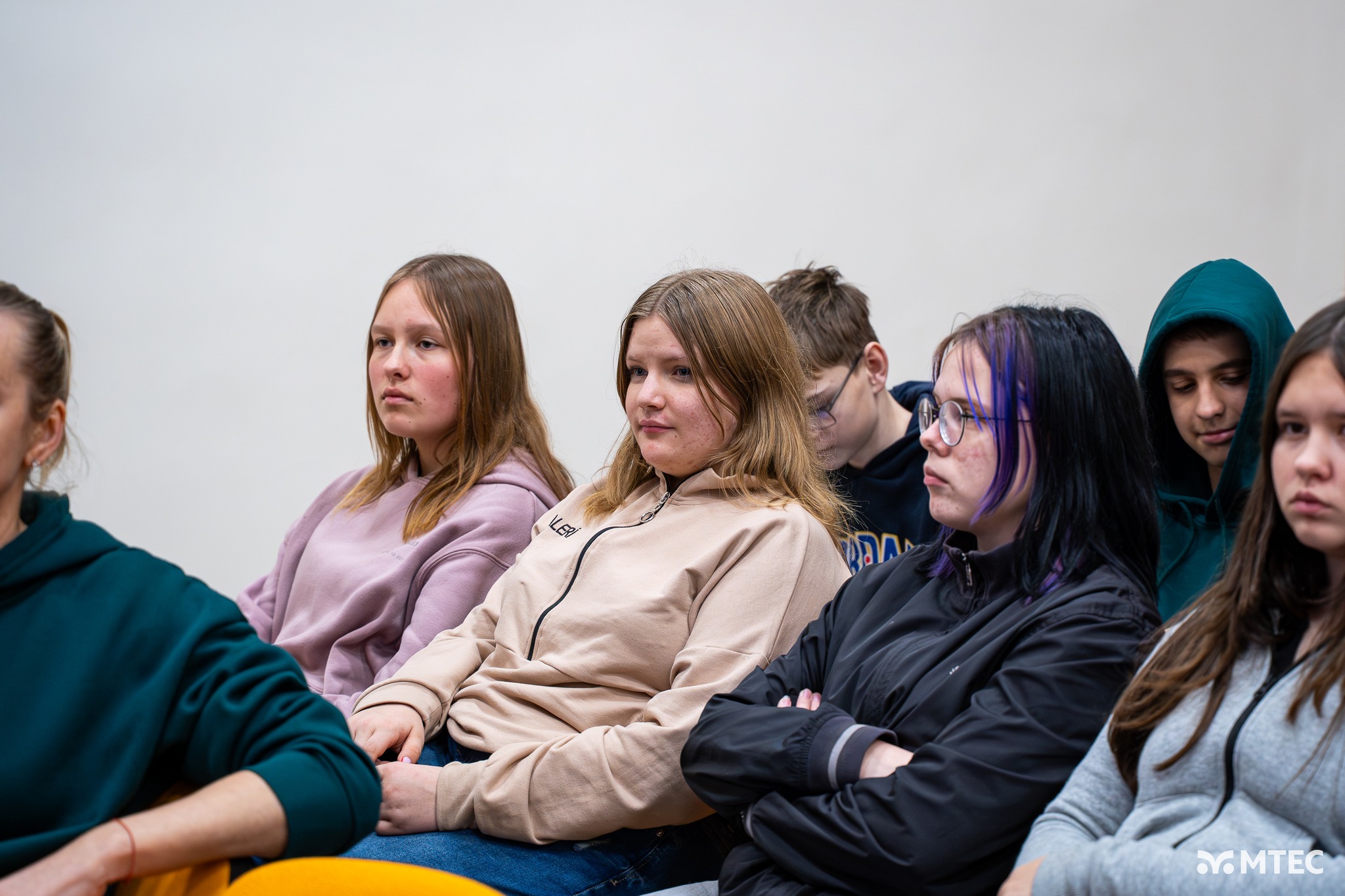
12/12/2025 - INPLANET: Digital Addiction in the Context of Social Media & Animation Theater Addressing Social Media Addiction
On 12 December, IN‑PLANET carried out another impactful local workshop. Through an interactive lecture, participants were introduced to the main aspects of ISMA and engaged in meaningful discussions about recognizing signs of addiction in their own environments. They also reflected on practical prevention methods and the importance of early awareness.
The workshop emphasized that digital addiction can affect anyone, regardless of age, gender, or background. By examining different forms of excessive online engagement and their consequences, the trainer helped participants see how easily everyday online habits can shift into patterns that impact well‑being.
In a collaborative setting, the group explored animation theater techniques as a creative tool for addressing social media addiction. Working together, participants developed short scenarios depicting real challenges young people face online and experimented with ways these techniques can be used in awareness‑raising campaigns.
This workshop added another layer to our ongoing effort to promote youth empowerment through artistic expression, showing how creativity and dialogue can spark meaningful change.
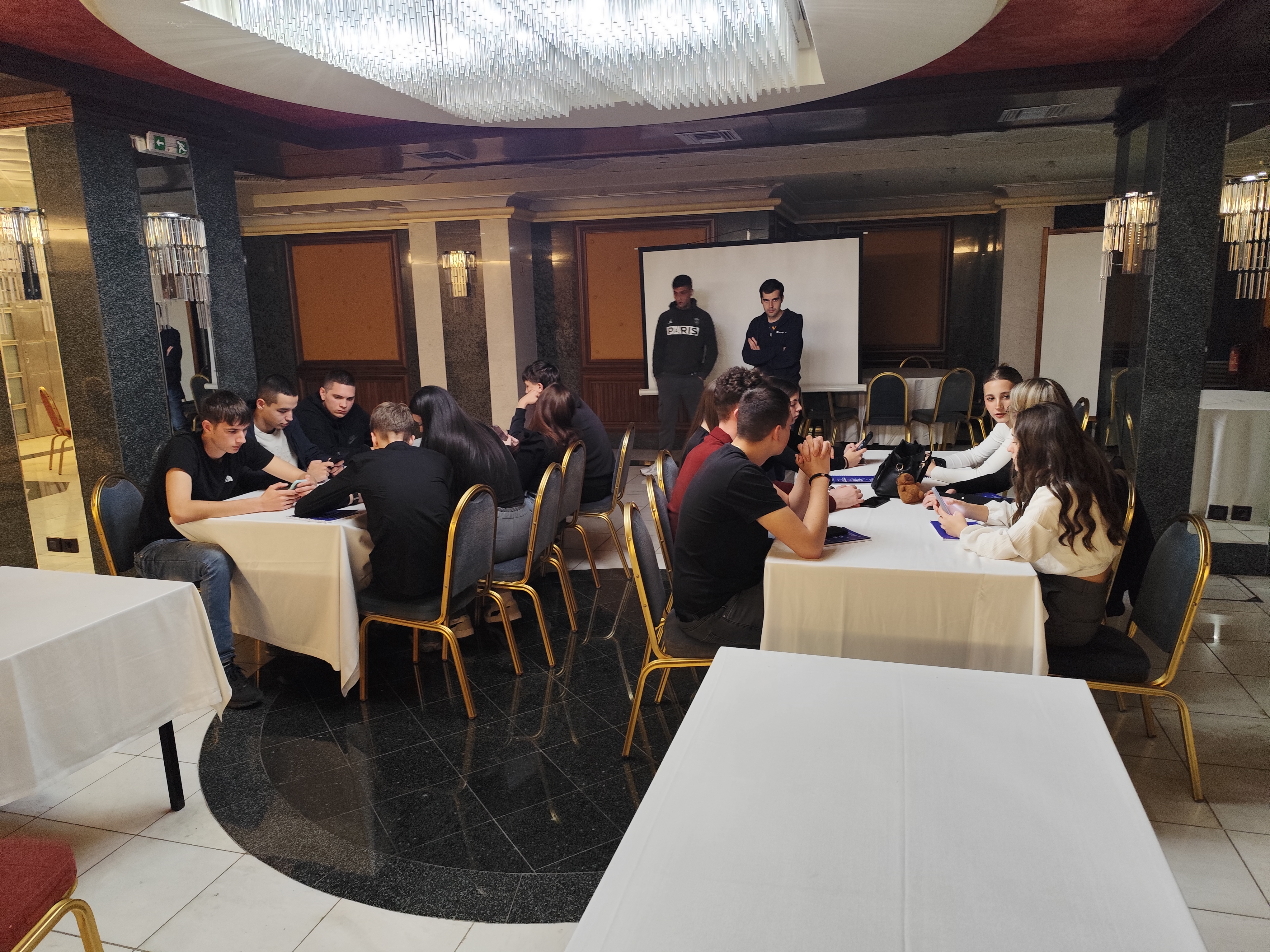
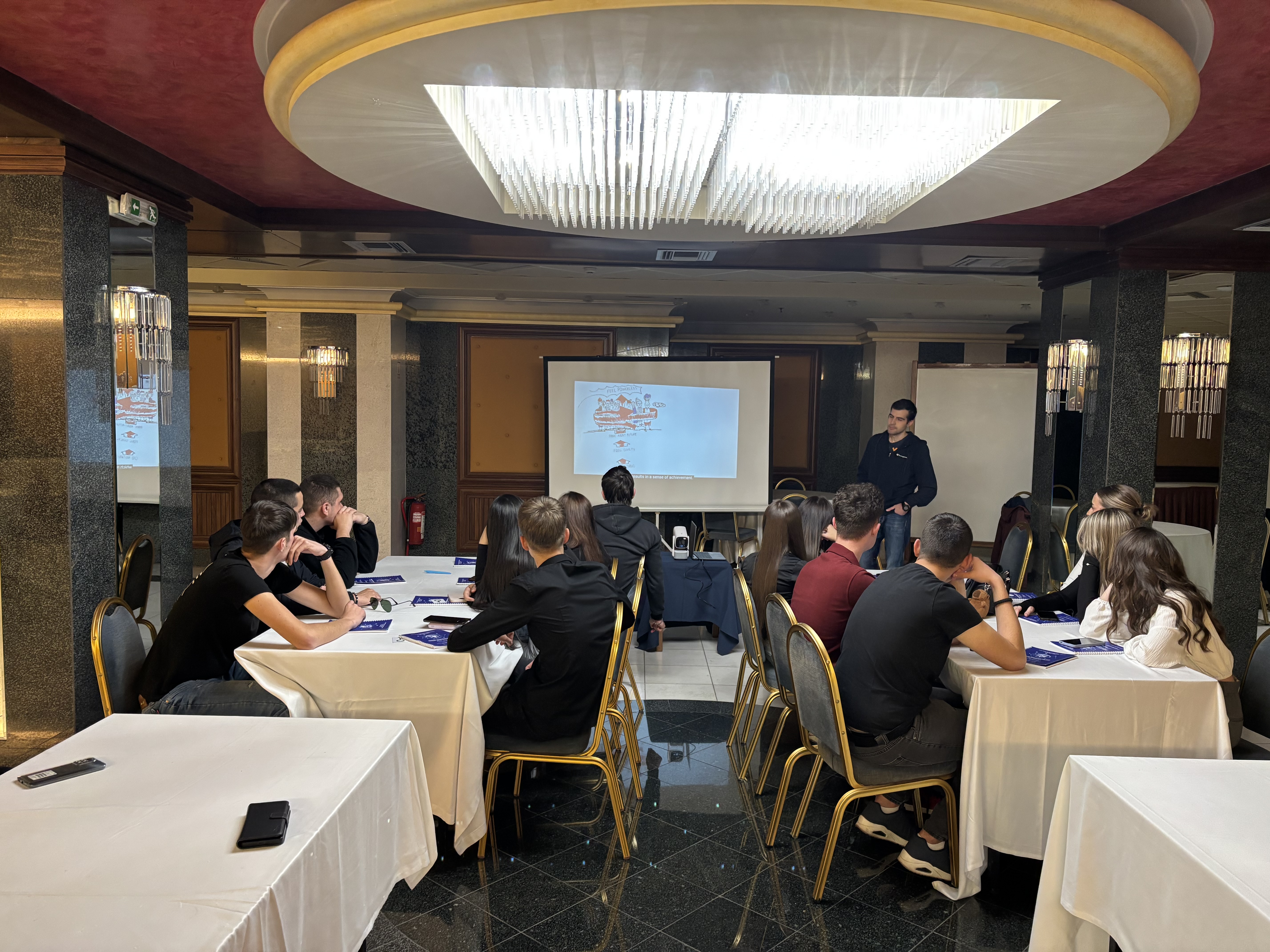
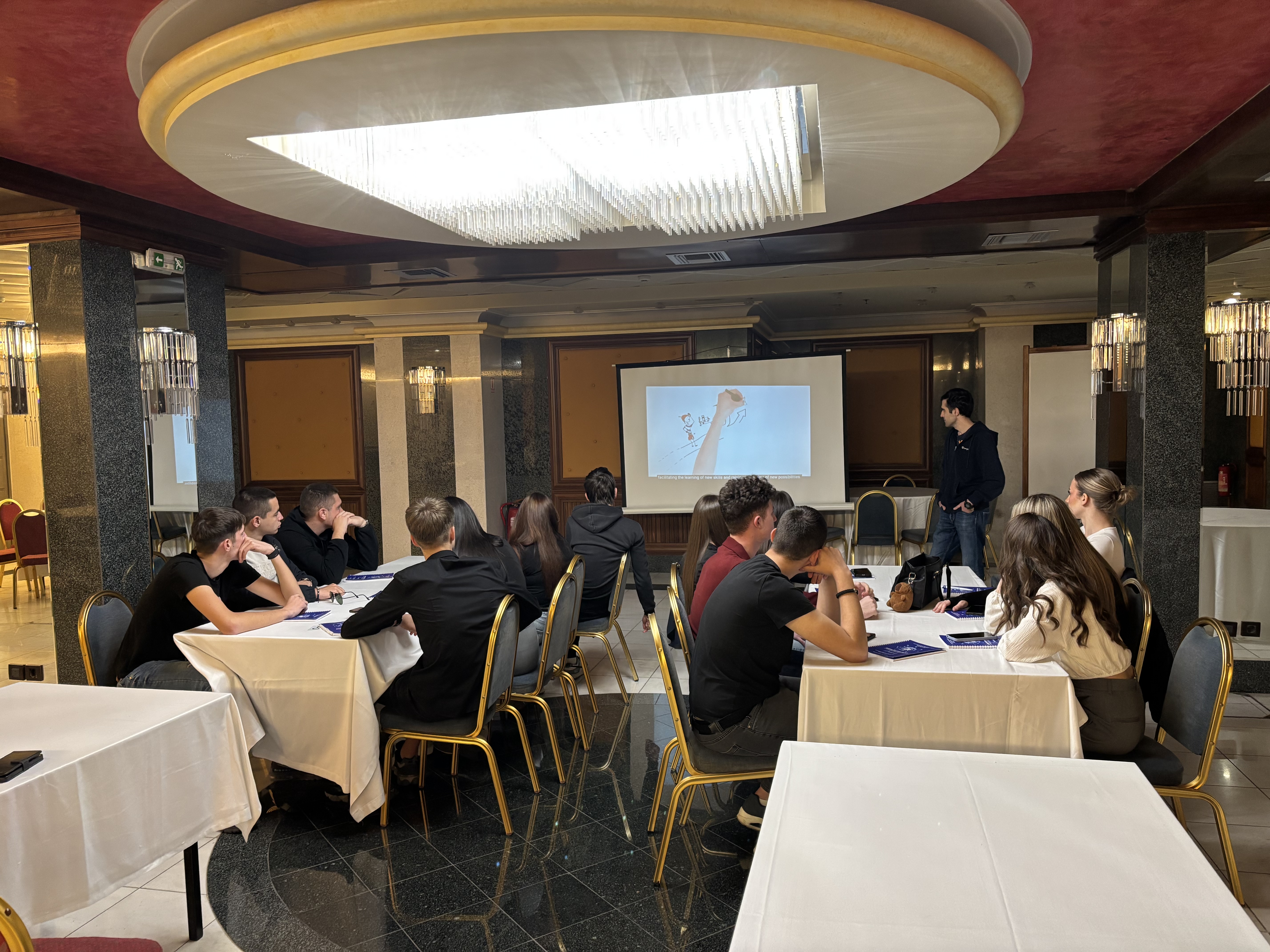
02/12/2025 - INPLANET: Puppet Theater Addressing Digital Addiction
On 2 December 2025, IN‑PLANET conducted a local workshop in Athens with the active participation of local youth, presenting the first part of our puppet‑theater performance titled “Combat Internet & Social Media Addiction at School”.
This scene explores how digital addiction affects young people’s daily life in the school environment — from concentration challenges to social interactions shaped by constant online presence.
Through expressive storytelling and character‑driven moments, the performance opened a meaningful conversation about digital well‑being in educational spaces and the pressures young people face when navigating both offline and online worlds.
The second part of our Athens workshop, conducted by IN‑PLANET with the participation of local youth, presented the continuation of the story through “Combat Internet & Social Media Addiction at home”.
This scene dives deeper into the emotional side of digital dependency, showing how screen time influences family dynamics, personal routines, and the quiet moments where young people often feel the strongest pull toward online platforms.
The performance encouraged viewers to reflect on healthy digital boundaries and the importance of balance in everyday life.
It was a powerful reminder that digital addiction doesn’t only appear in public spaces — it also affects the private, intimate moments that shape our well‑being.
2nd Series of Workshops
13/10/2025 - CIFP César Manrique: Empowering Change Through Digital Storytelling and Self-Care
At CIFP César Manrique, students participated in the workshop “Lost in the Net – A Digital Storytelling Journey”.
During this creative session, participants explored the topic of internet addiction through digital storytelling. Working in small teams, they:
Created short 1-minute digital stories showing the impact of online addiction.
Reflected on what a healthy vs. unhealthy digital life looks like.
Used their creativity and teamwork to find ways to reconnect with real life.
Using simple tools like smartphones, Canva, or CapCut, students produced inspiring mini-videos that showed how awareness and balance can lead to a healthier digital relationship.
26/09/2025 - CIFP César Manrique: Coping Strategies and Digital Wellness
At CIFP César Manrique, we hosted the workshop “Escape Room: Building Digital Resilience”. During this interactive session, our students became the Guardians of Digital Balance. Their mission? To escape the traps of “DigiTrap” by solving challenges that required:
Designing strategies for a healthy online–offline balance
Strengthening emotional resilience
Practicing critical thinking to face misinformation
Through teamwork, creativity, and problem-solving, participants discovered practical tools to take control of their digital lives rather than being controlled by screens. It was a fun and meaningful way to reflect on the importance of digital wellbeing.
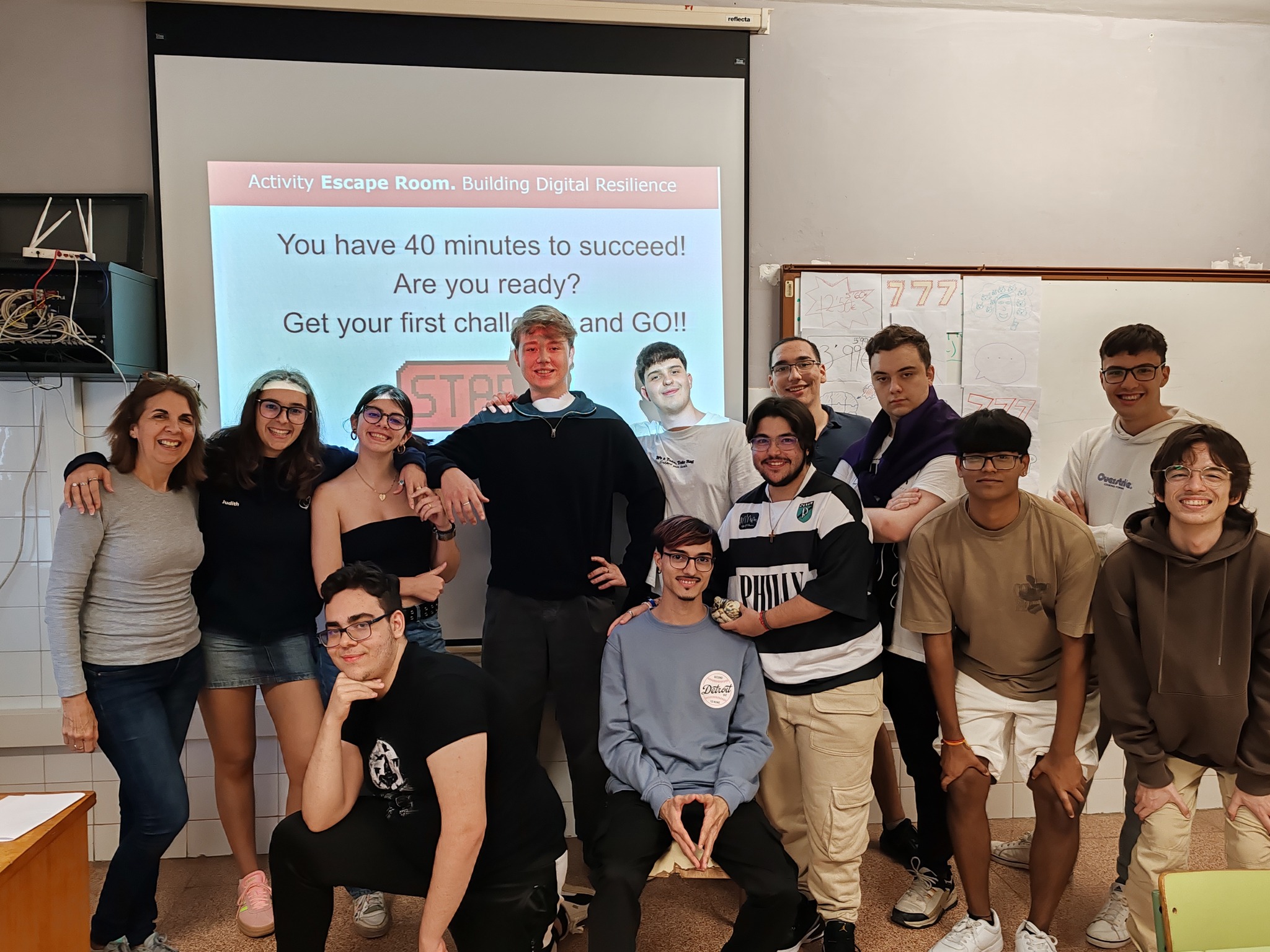
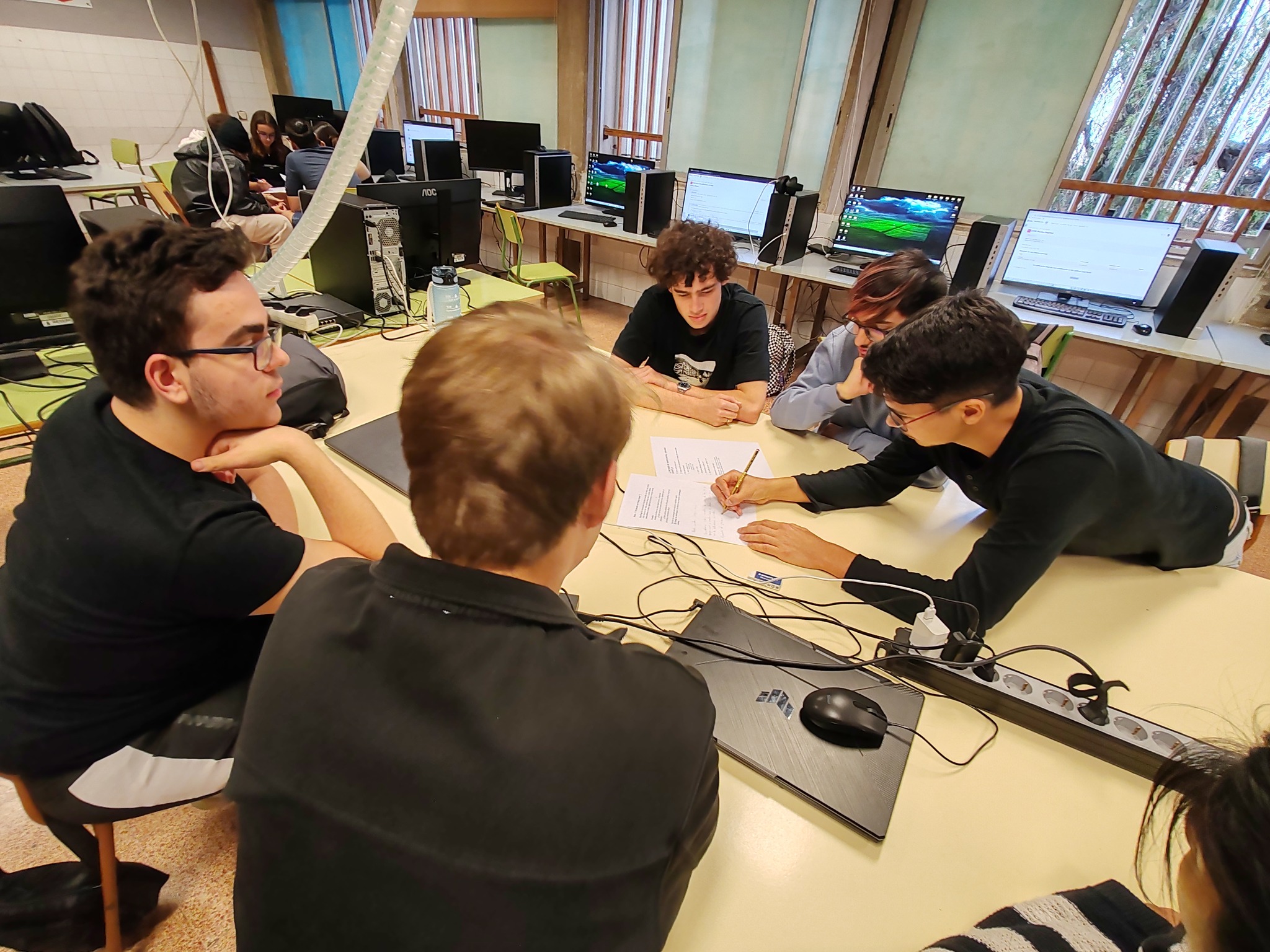
22/09/2025 - CIFP César Manrique: Undestanding Internet and Social Media Addiction
The students of CIFP César Manrique took part in the activity “Recognizing Addiction Triggers”, designed to:
Identify common triggers that lead to addictive behaviors online.
Reflect on the emotions these triggers provoke.
Encourage teamwork and creativity with minimal use of digital tools.
Divided into small groups, students created drawings to represent different online triggers and then recorded short videos (without words) to express the emotions linked to those triggers. The session concluded with a collective discussion, where all groups shared their work and reflected on the importance of recognizing these digital triggers in daily life. It was an inspiring activity that combined creativity, critical thinking, and collaboration.
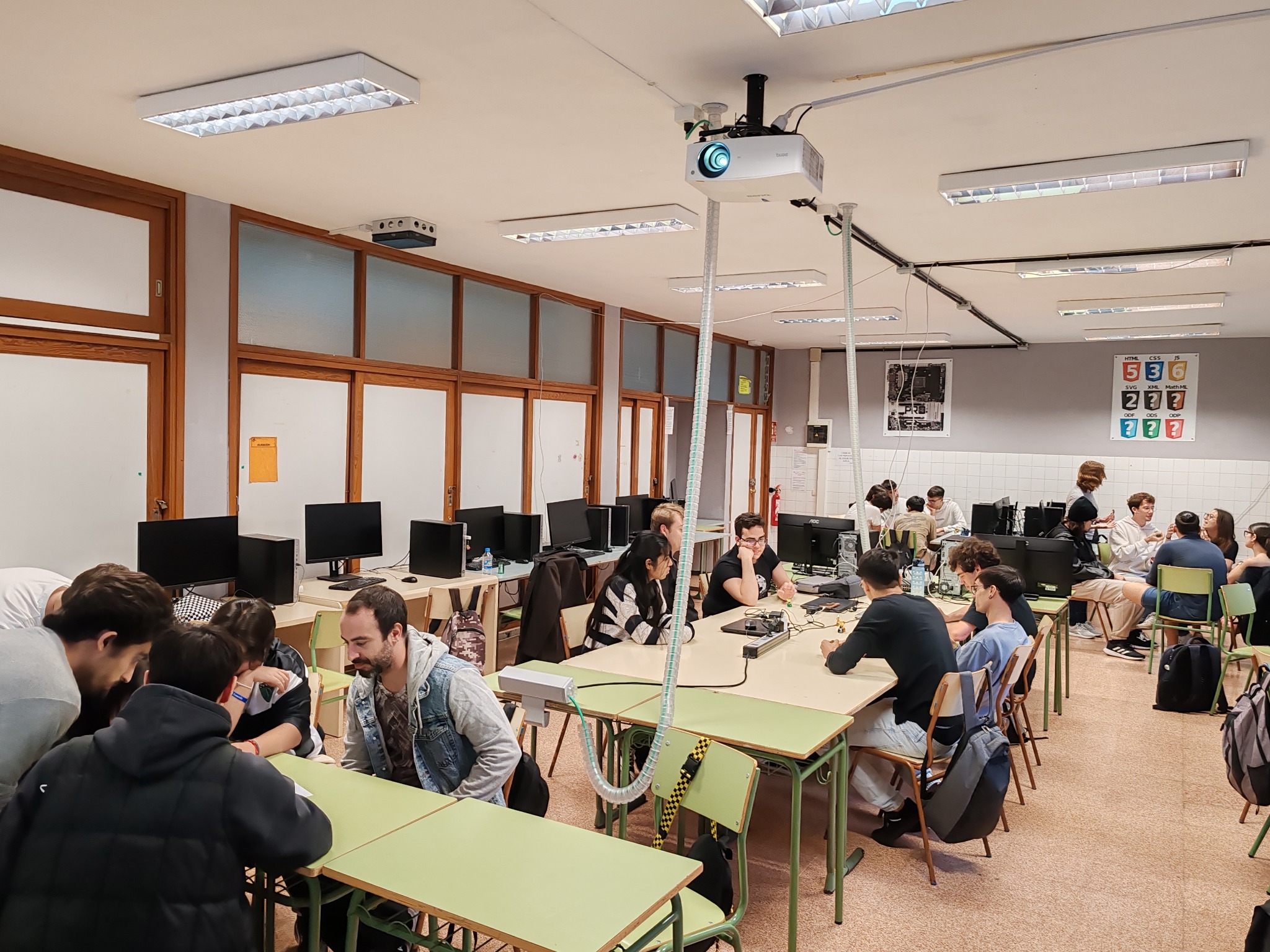
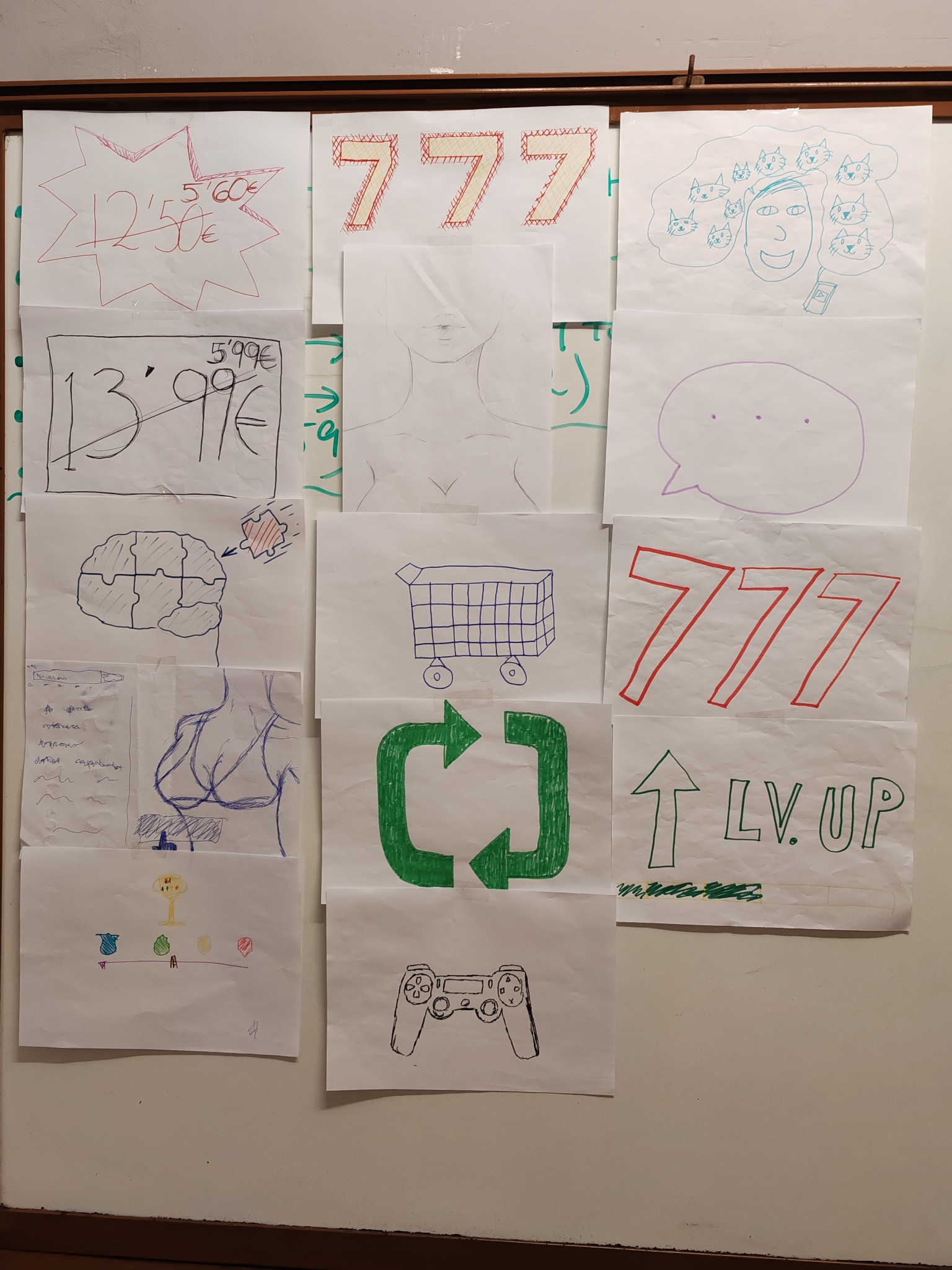
29/07/2025 - INPLANET: Empowering Change Through Digital Storytelling and Self-Care
IN-PLANET trainers held another local workshop, this time in Patra, Greece. Students and educators gathered to explore how digital storytelling can be a powerful tool for awareness, empathy, and change.
The workshop focused on using personal narratives and creative media to shed light on the emotional realities behind internet and social media addiction. Through collaborative activities, participants learned how to craft compelling digital stories, share lived experiences, and inspire others to reflect on their own online habits.
One of the most impactful moments of the day was the creation of a forum theatre play, developed and performed by the participants. The play addressed discrimination faced by a social media influencer, sparking dialogue around identity, vulnerability, and the pressures of online visibility. It was a vivid reminder that behind every screen is a human story—and that storytelling can be a bridge to understanding.
Alongside our digital storytelling workshop in Patra, we invited participants to slow down and reconnect with themselves through a hands-on session focused on Digital Detox and Self-Care.
Participants went to the beach where they collected stones and used crayons to express their emotions, thoughts, and personal reflections—each drawing a quiet story of self-awareness and inner balance. This simple yet powerful activity opened the door to conversations about mindfulness, emotional wellbeing, and the importance of creating space away from digital noise.
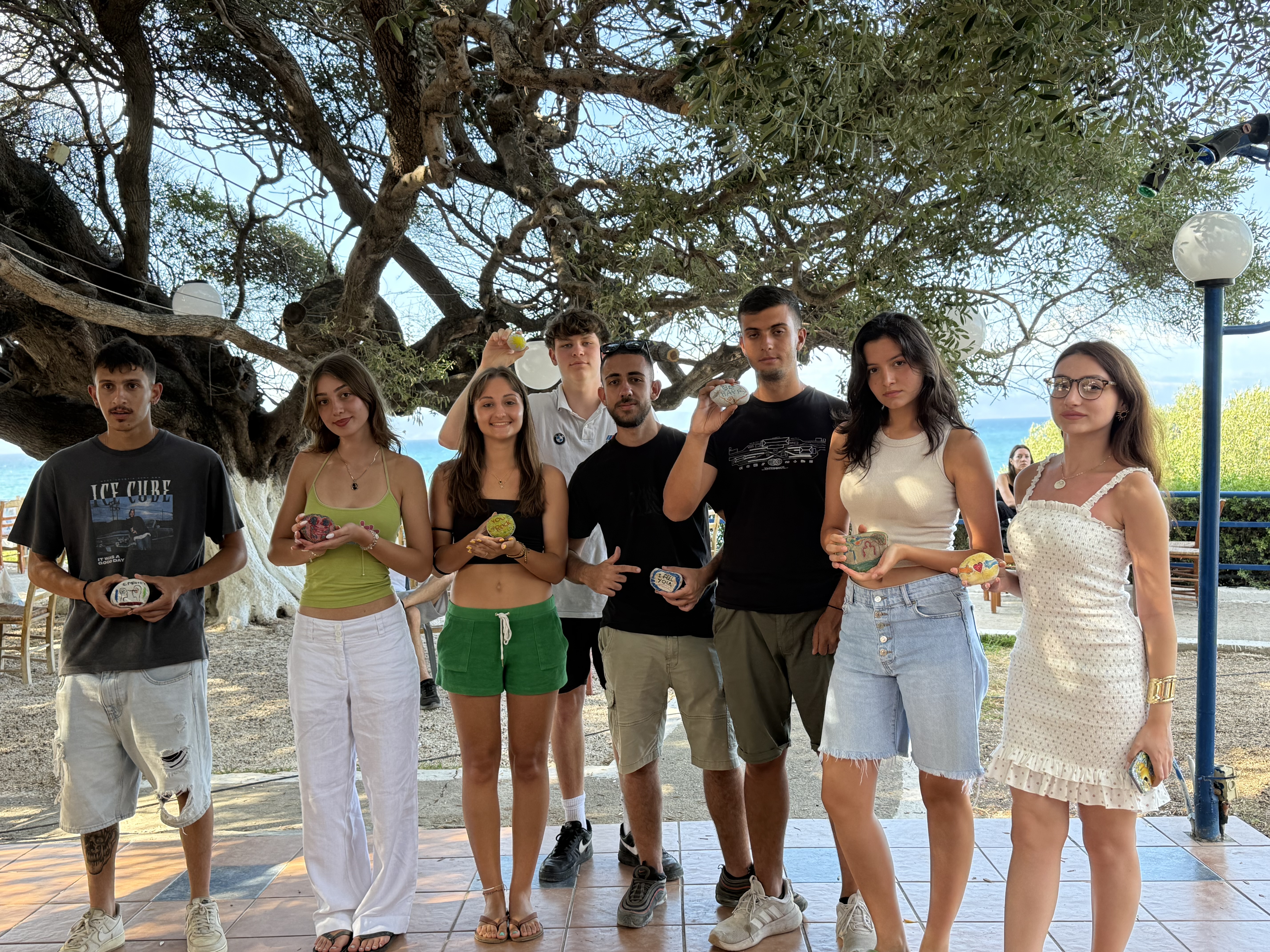
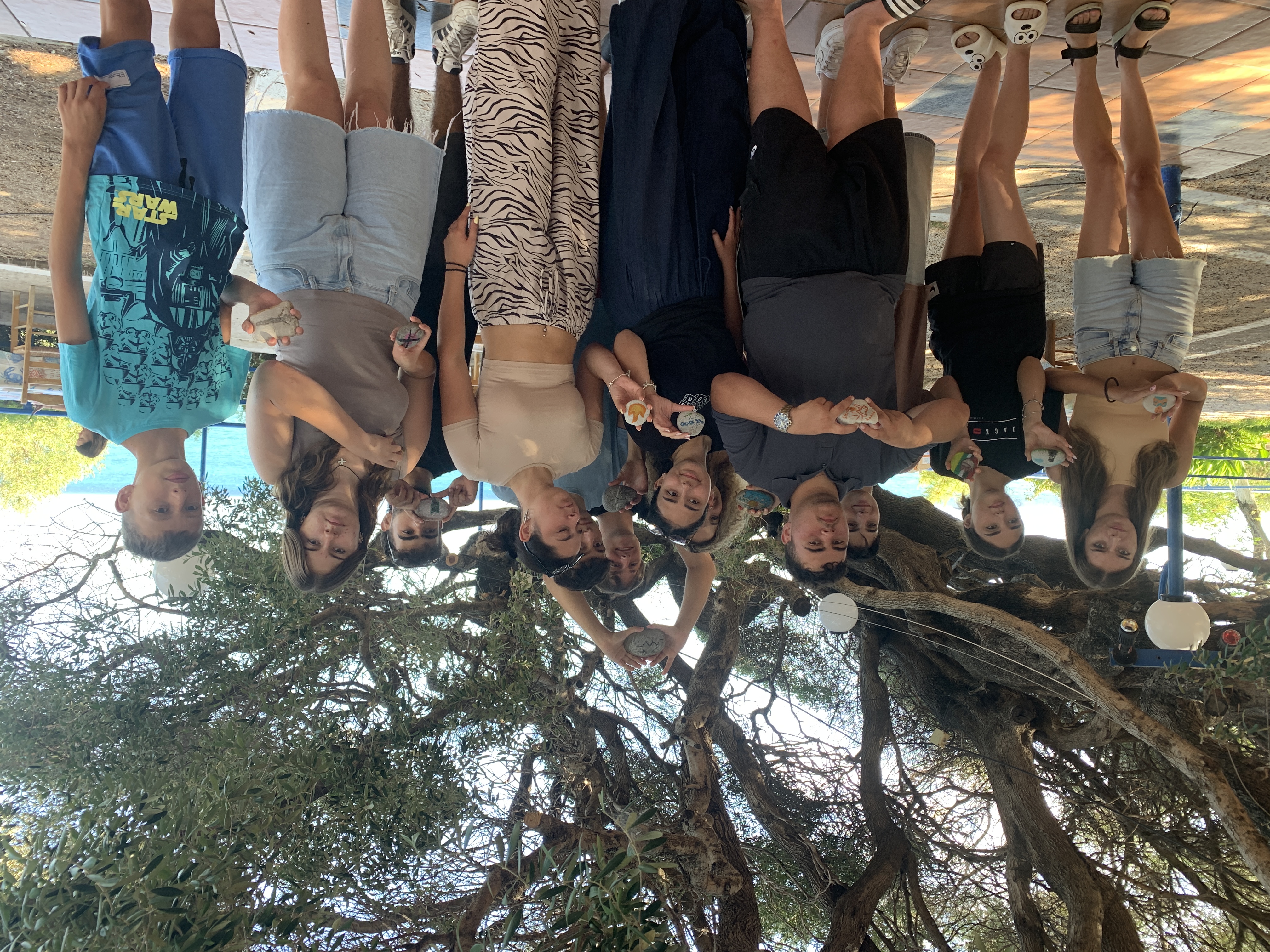
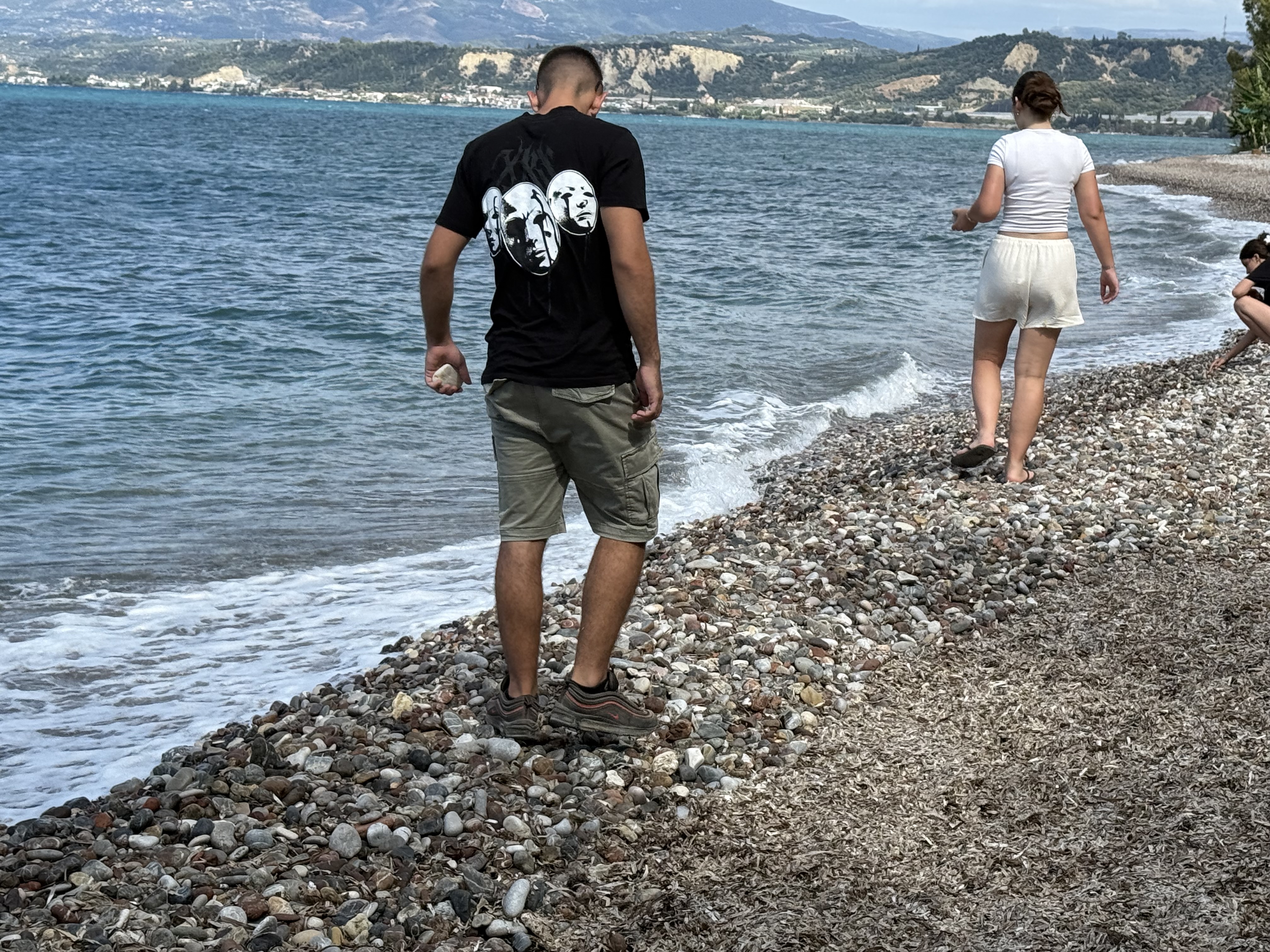
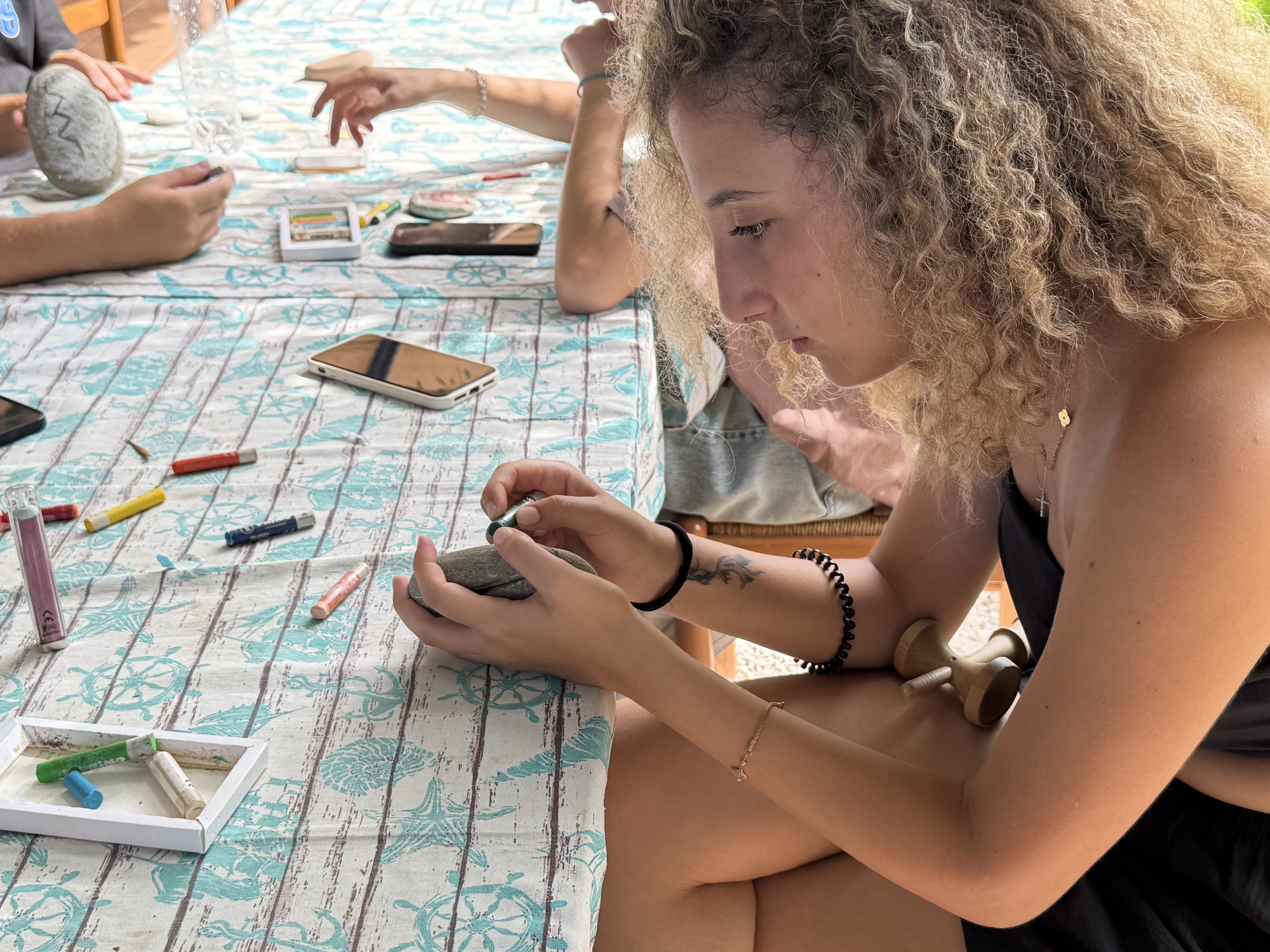
16/05/2025 - MPRC: Empowering Change Through Digital Storytelling and Self-Care
On May 16, the focus was on "Digital Detox" and self-development practices that help participants cultivate healthier digital habits.
Working in groups, students learned to recognize signs of social media addiction. After identifying them, they illustrated these issues and created short videos. This hands-on activity encouraged screen control, mindful technology use, and prioritizing mental well-being.
The students were also introduced to a game that promotes collaboration, empathy, and positive emotions – and most importantly – draws attention away from screens.
At the end of the session, a therapeutic method was used: accompanied by meditative music, participants closed their eyes, relaxed, and tuned into themselves, allowing their minds and bodies to rest.
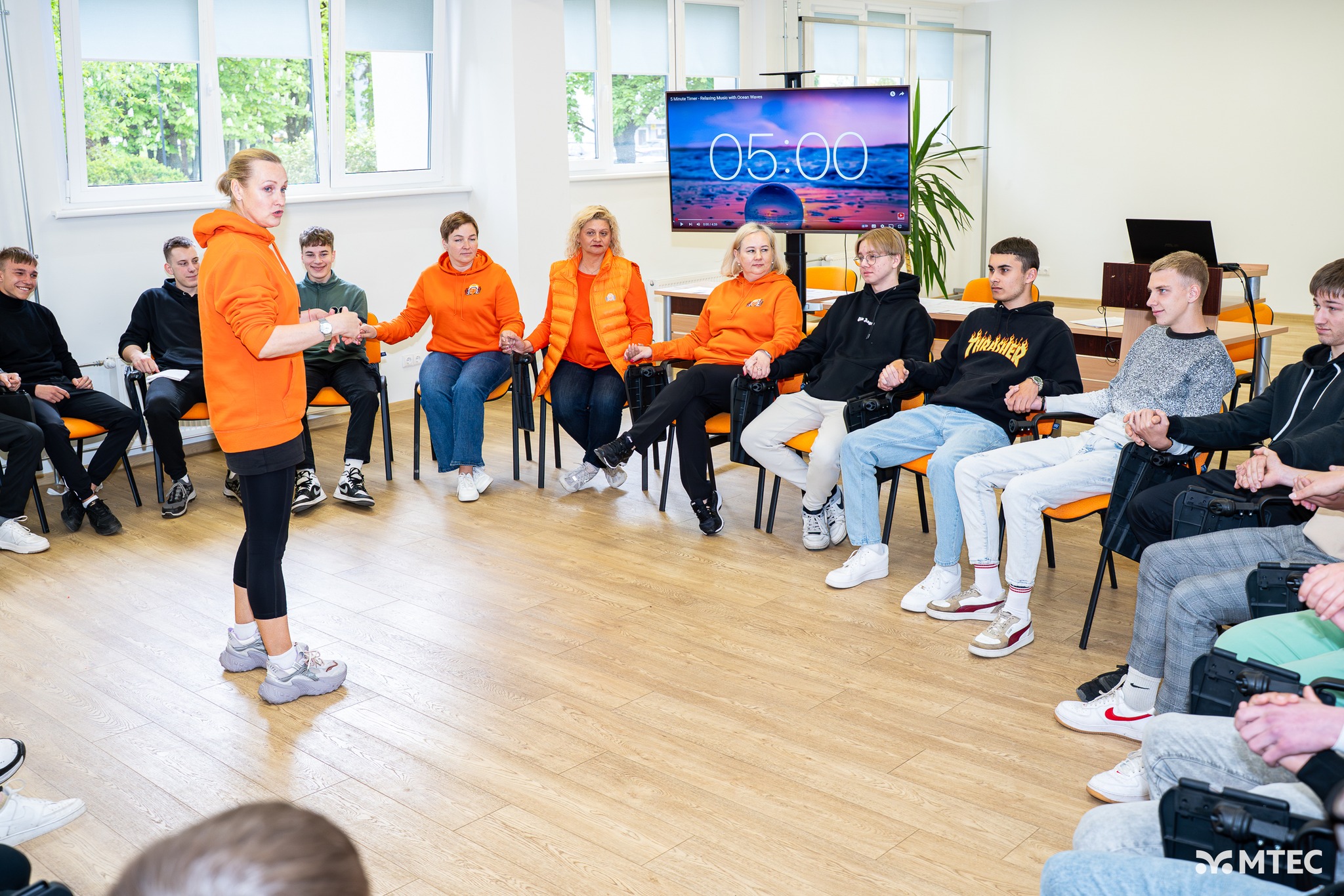
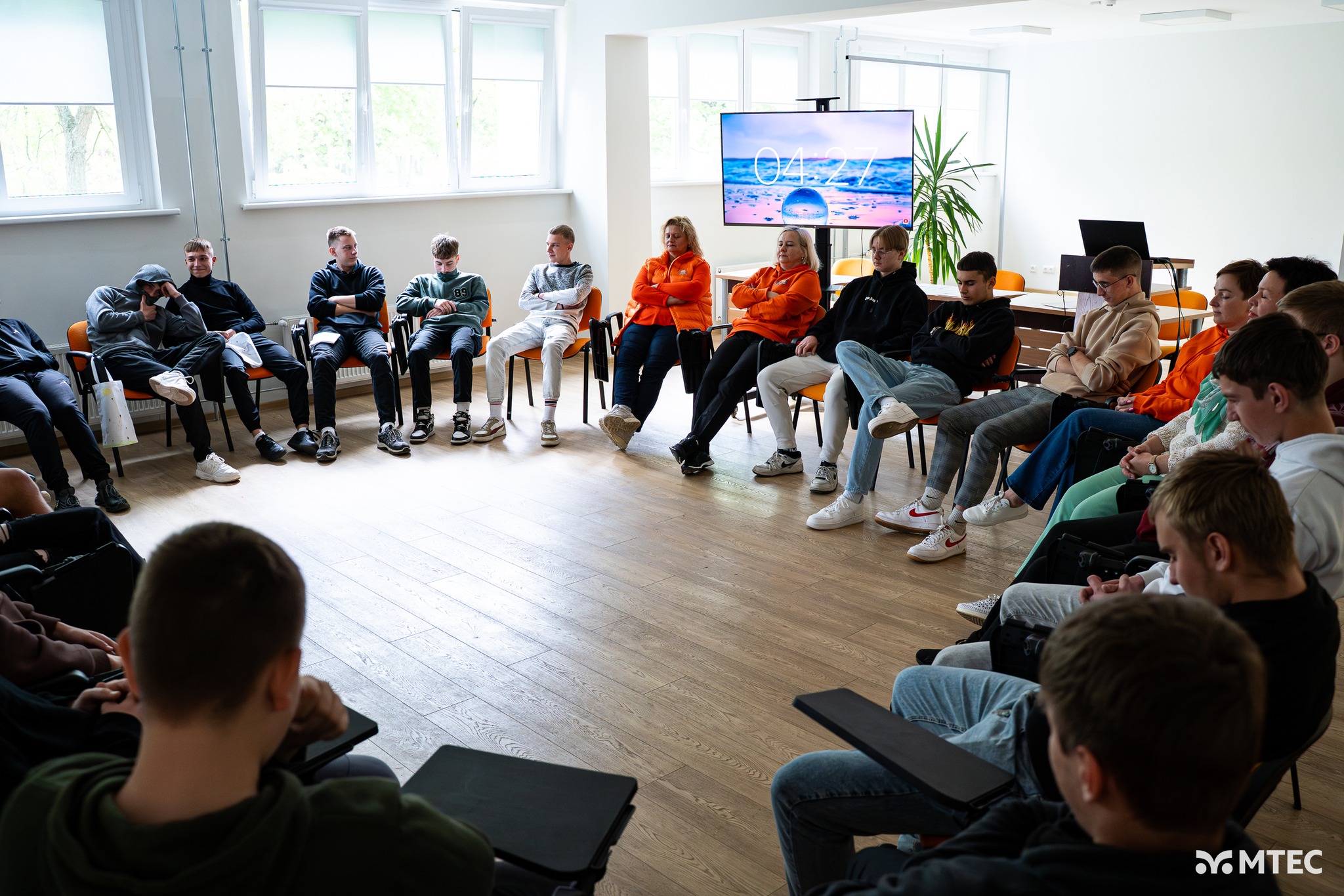
13/05/2025 - STEP: Empowering Change Through Digital Storytelling and Self-Care
Following an engaging theoretical introduction that set the stage for understanding various aspects of addiction, the students actively engaged in practical exercises. Working creatively and collaboratively, they developed their own compelling video narratives directly related to the project's theme. These student-produced videos, which powerfully convey their insights and messages, were subsequently compiled as a key output of the project and are accessible as part of our documented materials. This hands-on approach fostered a deep sense of ownership and allowed participants to harness digital media for meaningful advocacy.
13/05/2025 - STEP: Coping Strategies and Digital Wellness
In a collaborative group setting, participants of workshops honed their skills in identifying the subtle and overt indicators of social media dependency. Following this insightful recognition phase, they visually depicted these challenges, culminating in the creation first by word and then of concise, impactful video presentations. This highly interactive and practical exercise was instrumental in empowering them to exert greater control over their screen time, cultivate a more deliberate approach to technology use, and steadfastly prioritize their mental well-being.
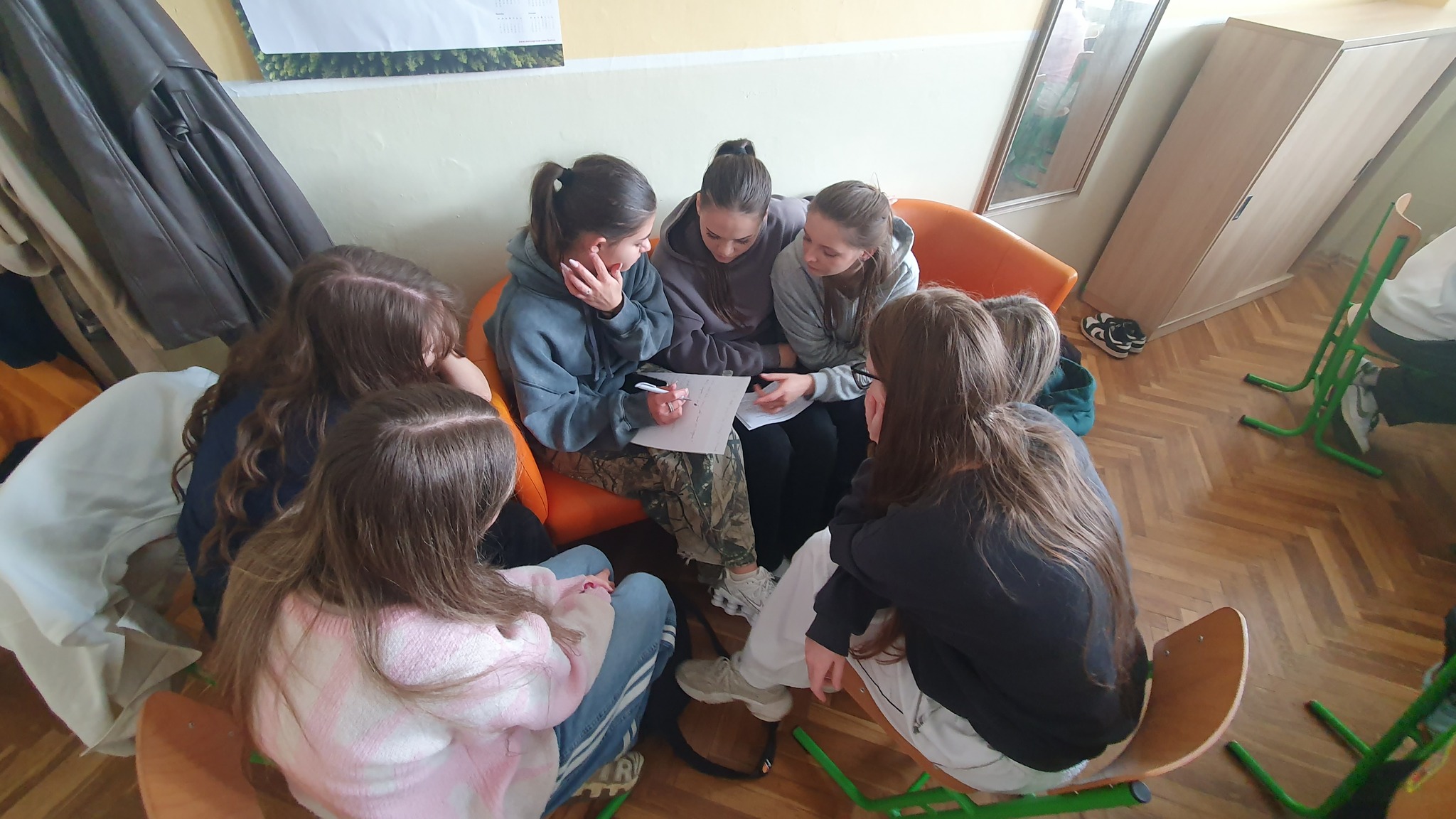
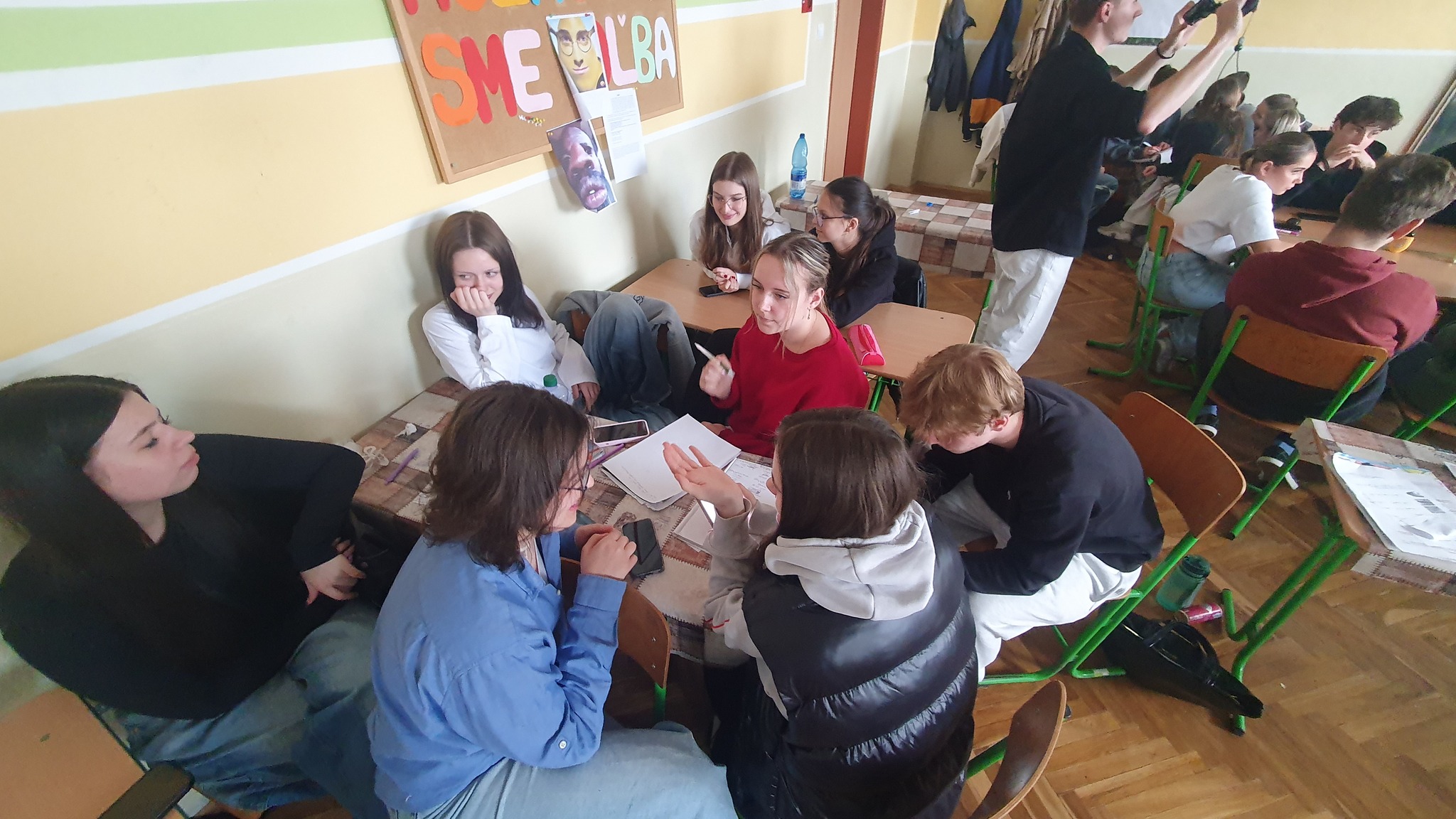
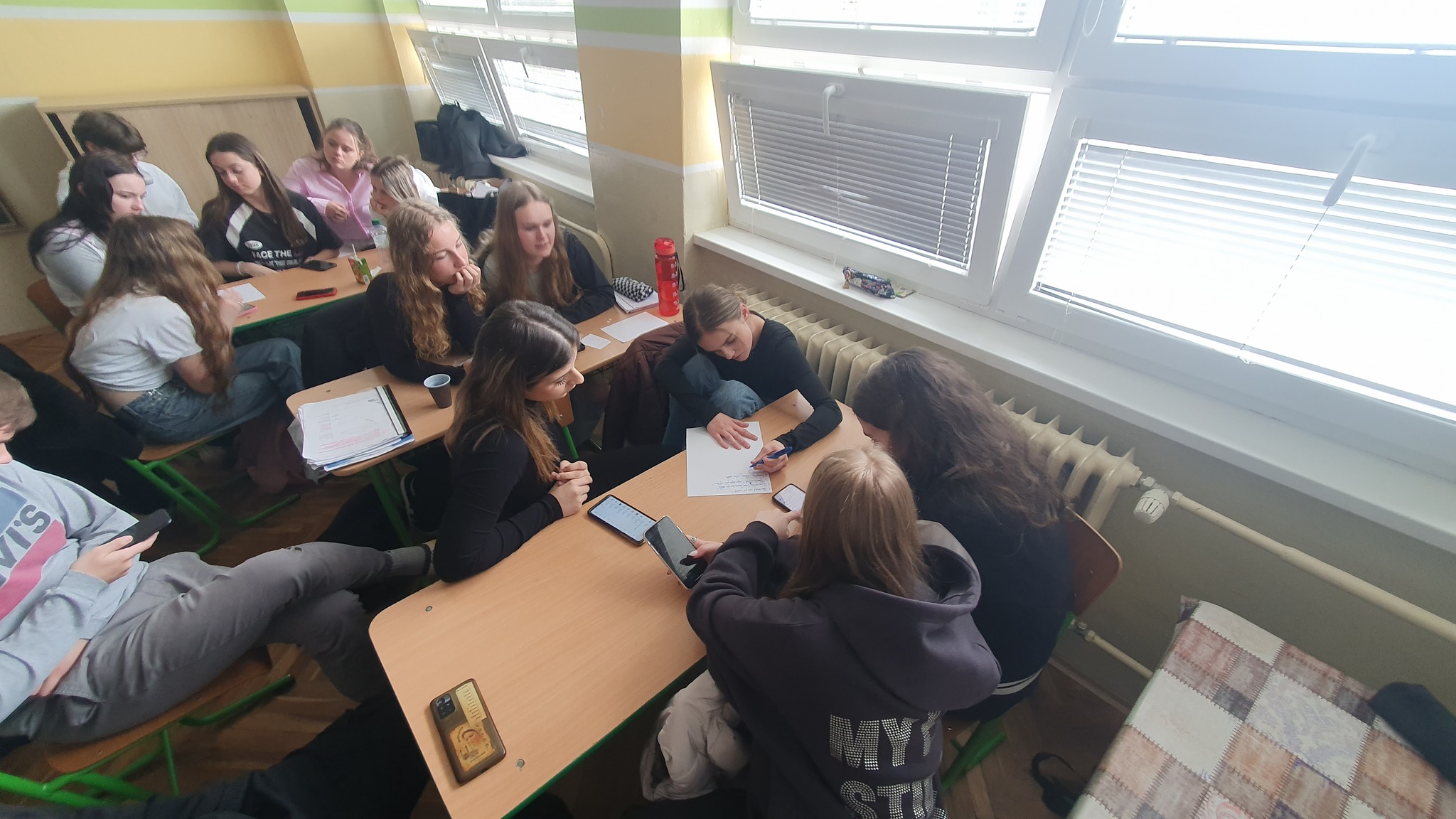
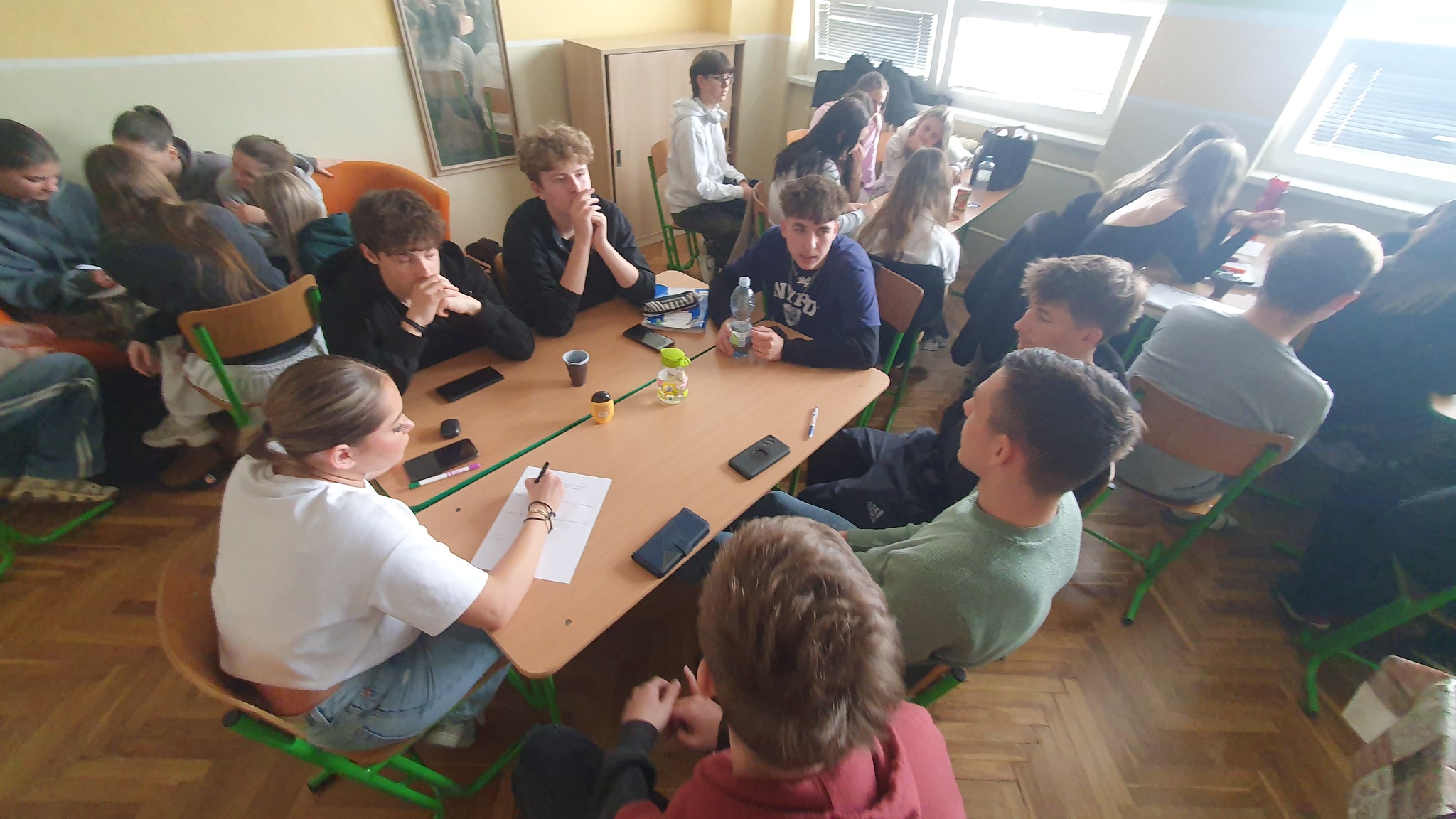
13/05/2025 - STEP: Undestanding Internet and Social Media Addiction
STEP, in collaboration with students from St. Cyril and Methodius Gymnasium in Snina, conducted impactful workshops focusing on "Understanding Internet and Social Media Addiction" and "The Impact of Addiction on Mental Health." During these project sessions, we shared the various methodologies and approaches that were explored at the international training course held in Athens a few weeks prior. The primary objective of that intensive international training had been to gain a more profound insight into internet and social media dependency, as well as to investigate effective strategies for fostering mindful and balanced engagement with digital tools.
Students participated in an enlightening presentation that shed light on the nature of social media addiction and its profound effects on mental well-being. This was succeeded by a dynamic discussion and a thorough examination of common addiction indicators and their underlying factors. Through these interactions, students acquired valuable knowledge regarding the widespread occurrence, causative elements, and significant ramifications associated with overly pervasive online activities.
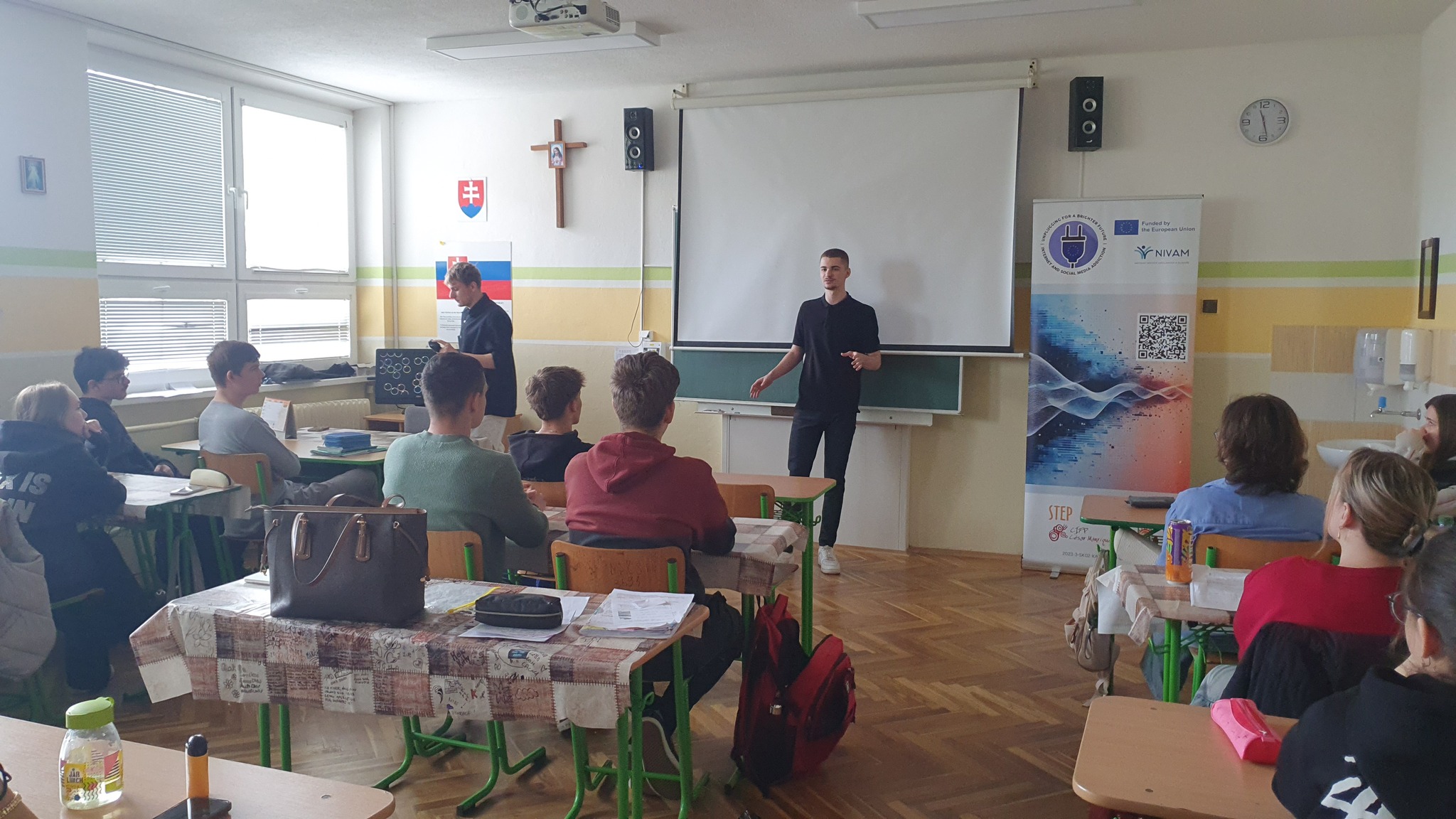
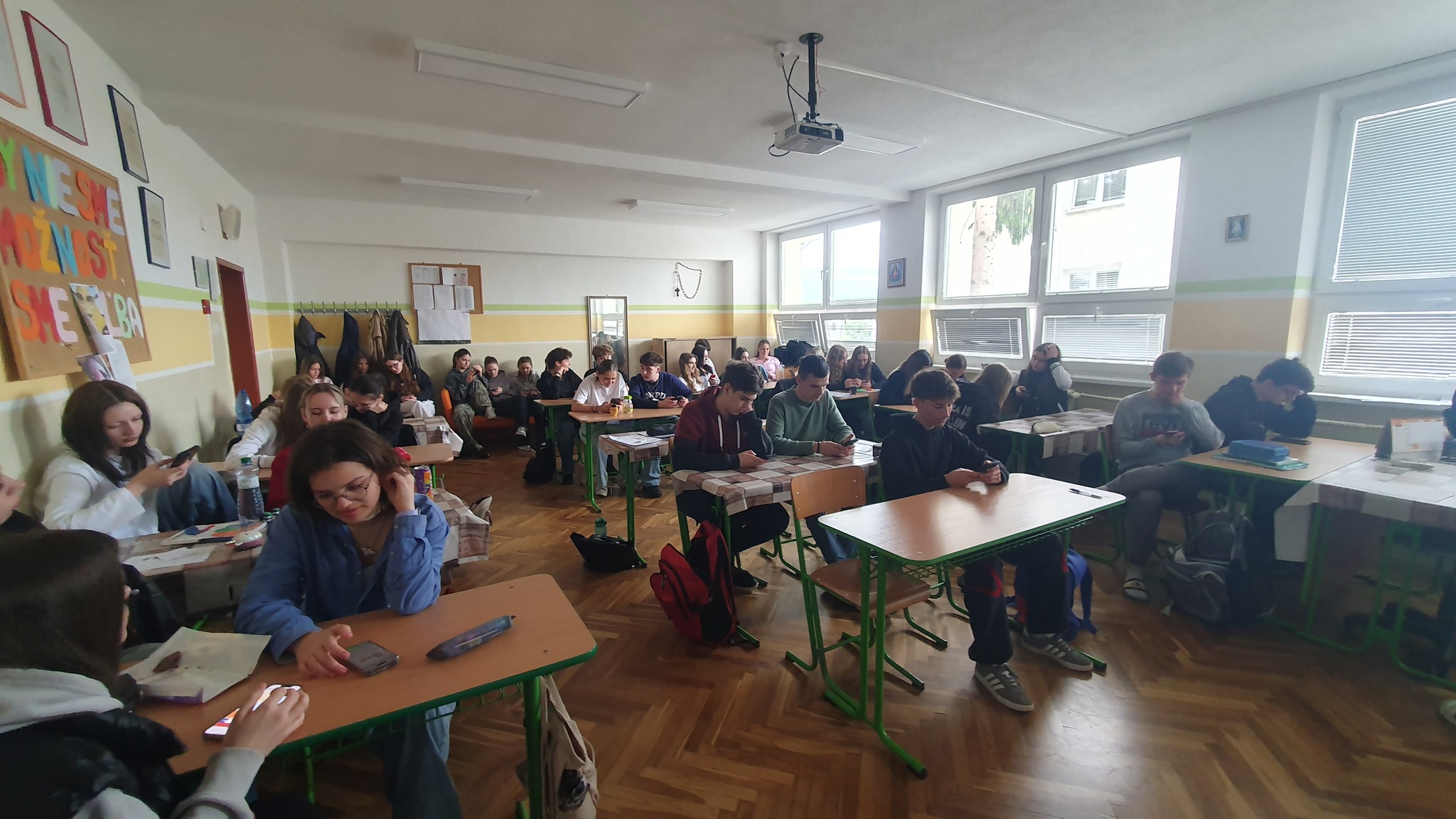
09/05/2025 - MPRC: Coping Strategies and Digital Wellness
On May 9, various creative, physical, and therapeutic methods were applied to foster digital resilience and encourage practical tasks aimed at reducing screen time and improving emotional well-being. One creative method involved decorating fabric tote bags with illustrations of the most important positive emotion the student was currently experiencing, which they also had to name. It was a pleasure to witness the students’ creativity and their ability to express themselves through art. Their openness and imagination truly brought the session to life!
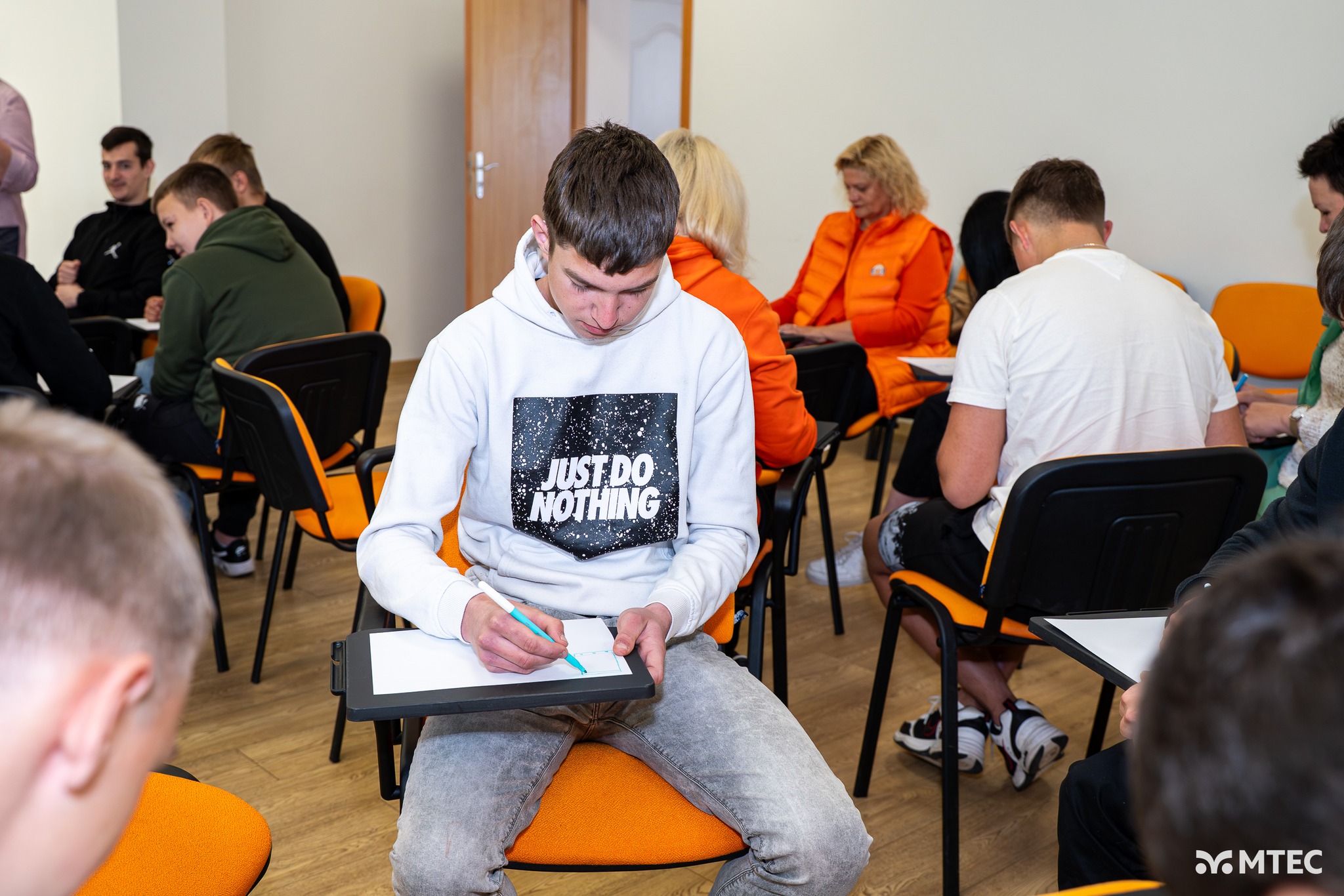
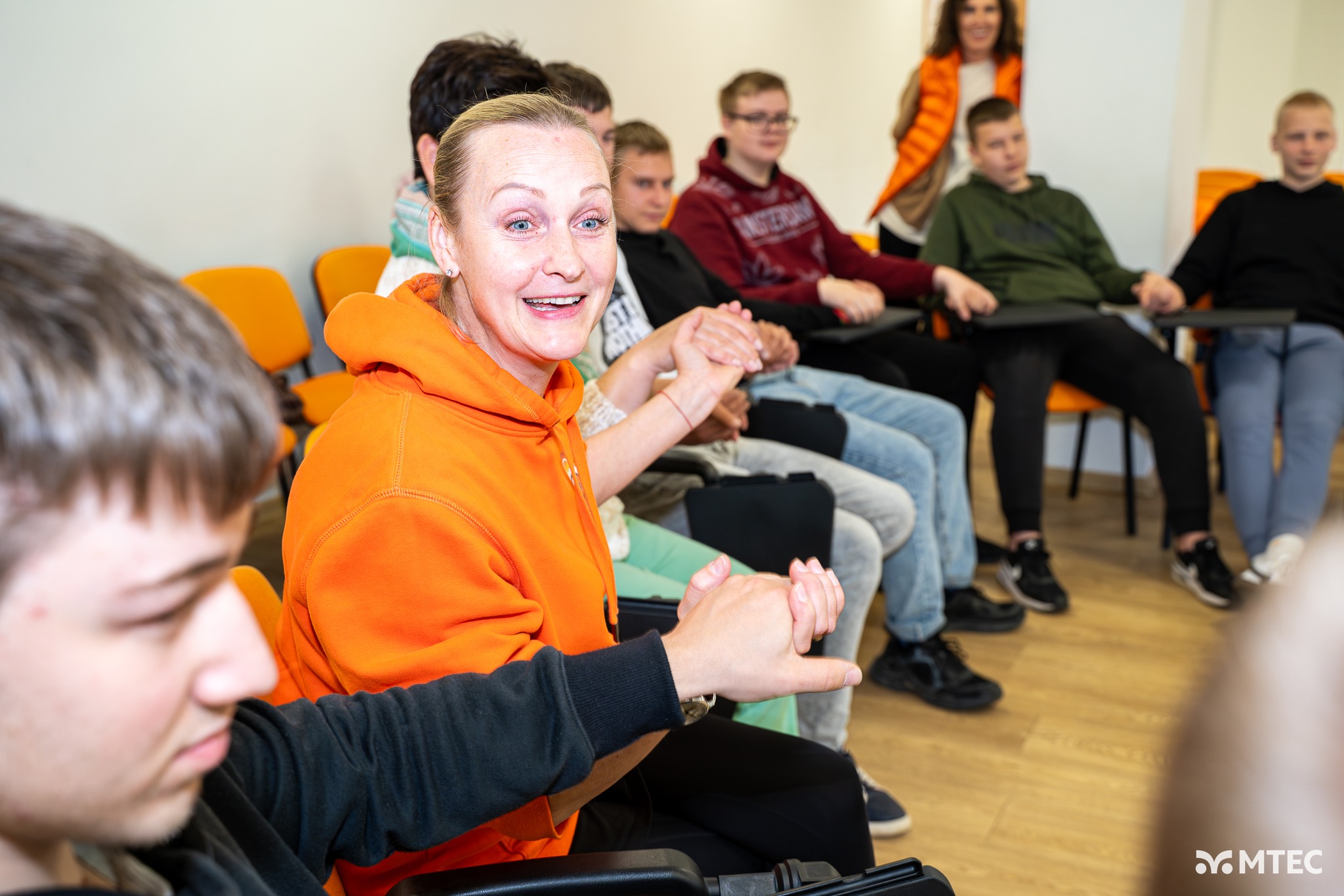
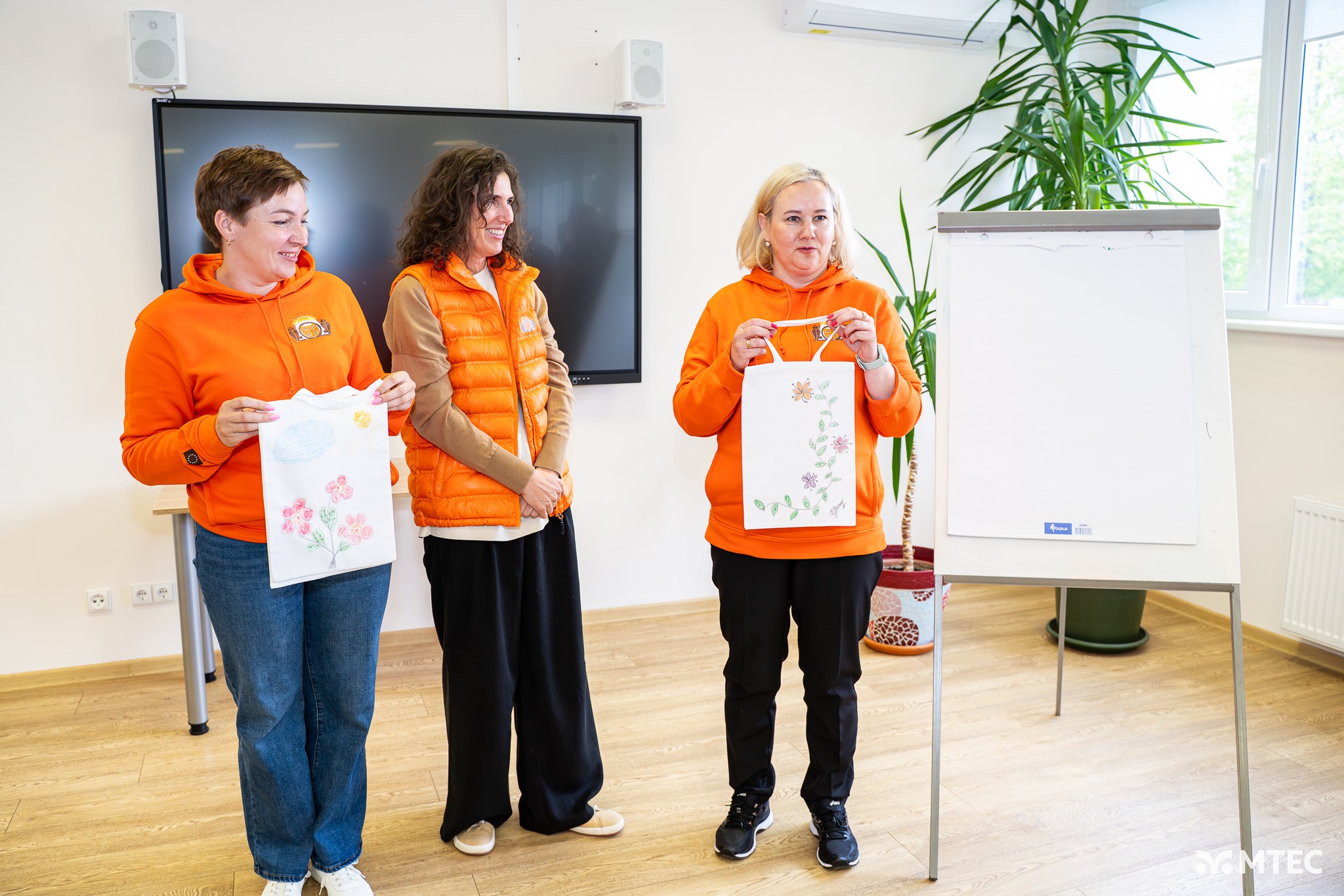
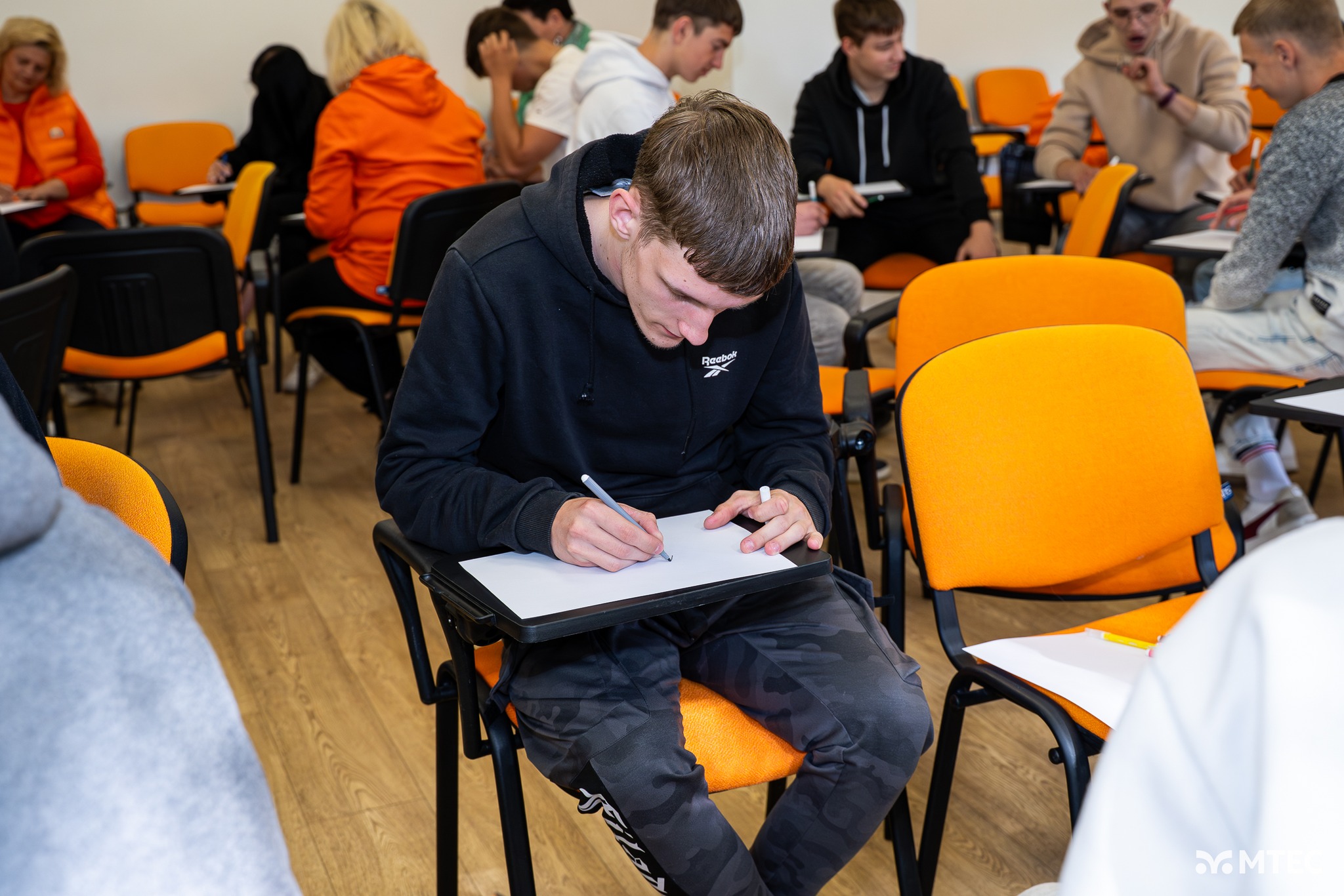
02/05/2025 - MPRC: Undestanding Internet and Social Media Addiction
On May 2, 9, and 16, a group of teachers from Marijampolė VET Centre’s Gymnasium Department organized training sessions for students, during which they presented the activities of the “Erasmus+” project "Unplugging for a Brighter Future: Internet and Social Media Addiction".
The training shared insights from the international session held in Athens. The main goal of this international training was to deepen the understanding of internet and social media addiction and to explore effective ways to promote conscious and healthy use of digital technologies.
On May 2, students listened to a presentation and watched a short film about social media addiction and its impact on mental health. This was followed by a discussion and analysis of addiction symptoms and their underlying causes. Students gained insights into the prevalence, causes, and consequences of excessive online engagement.
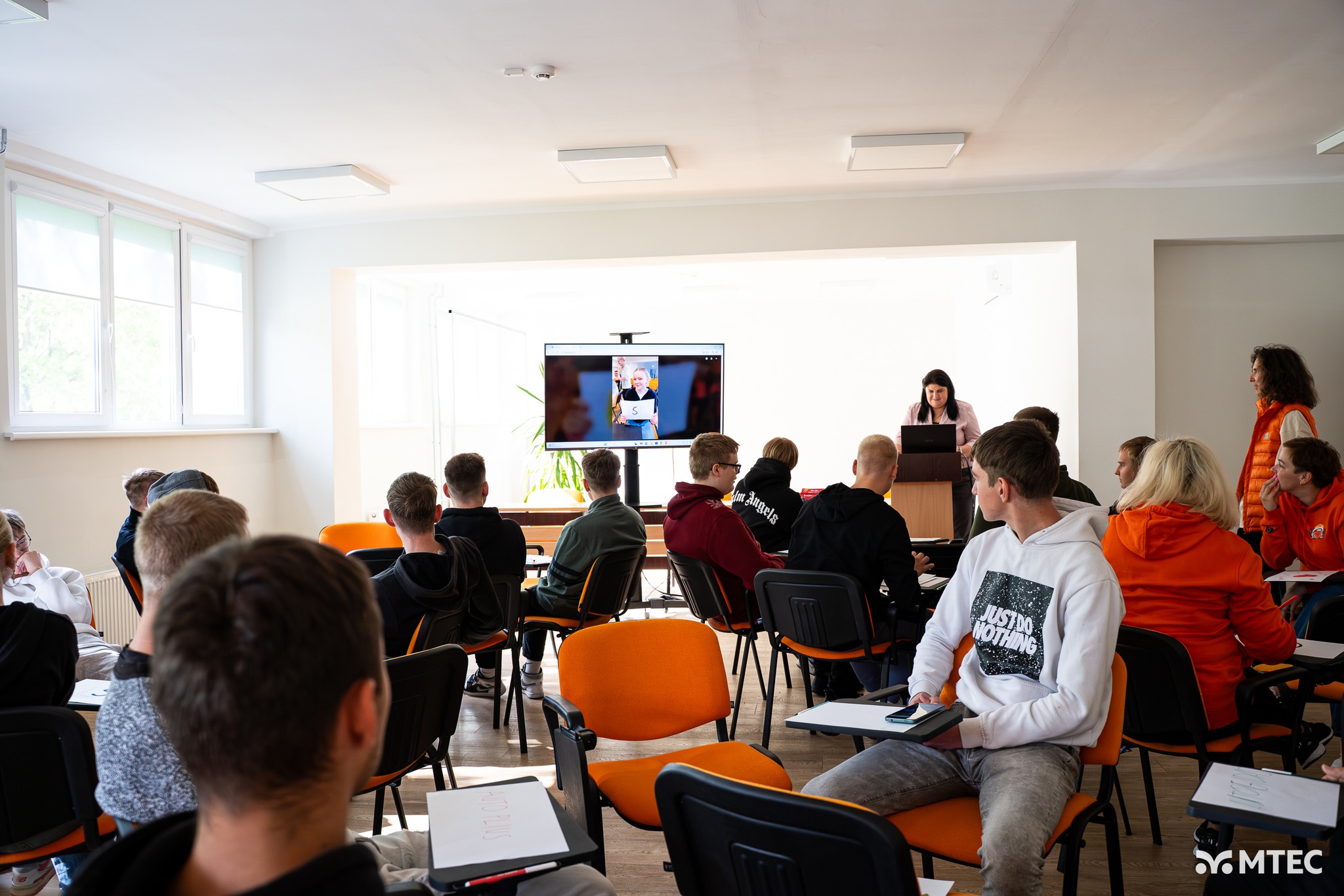
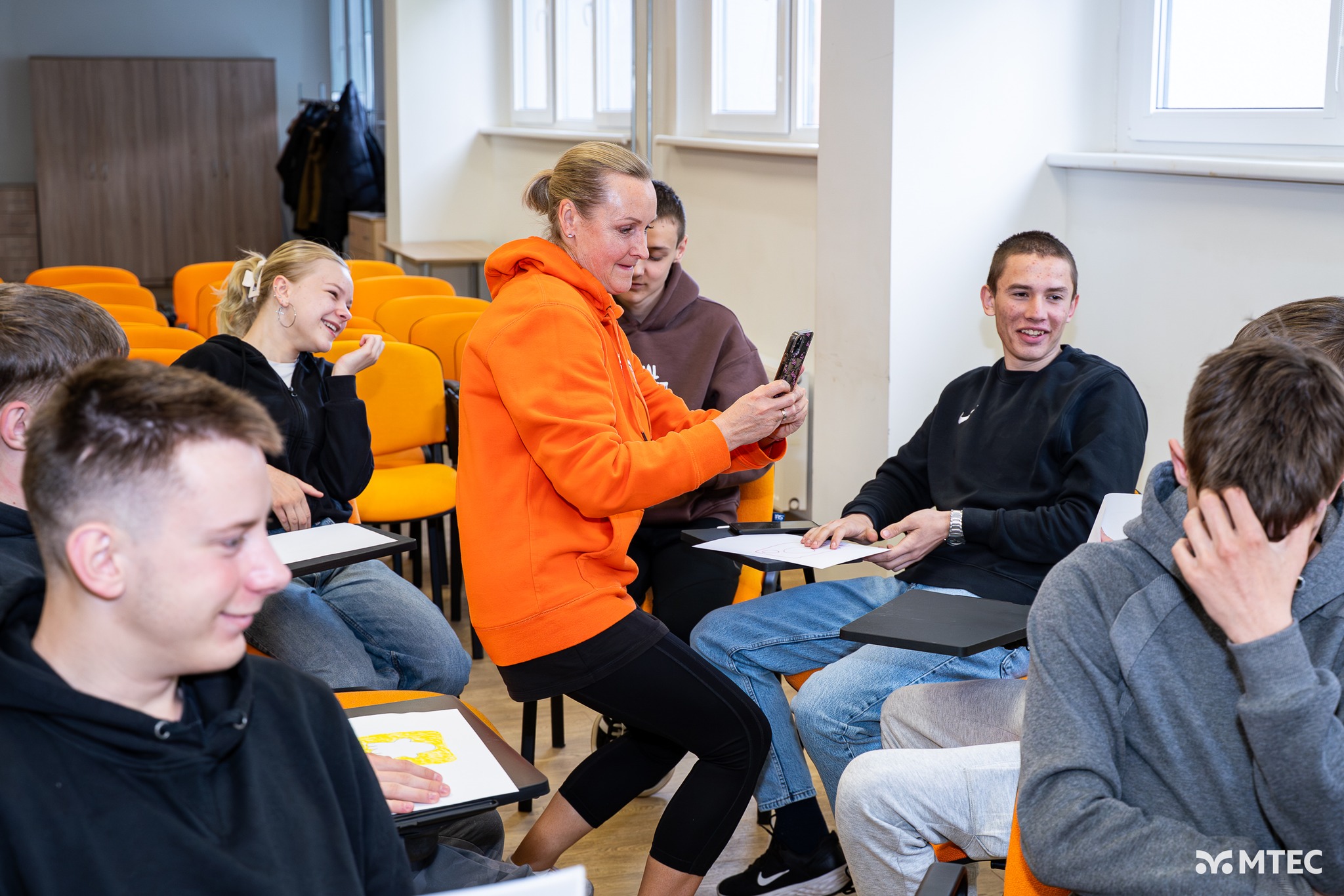
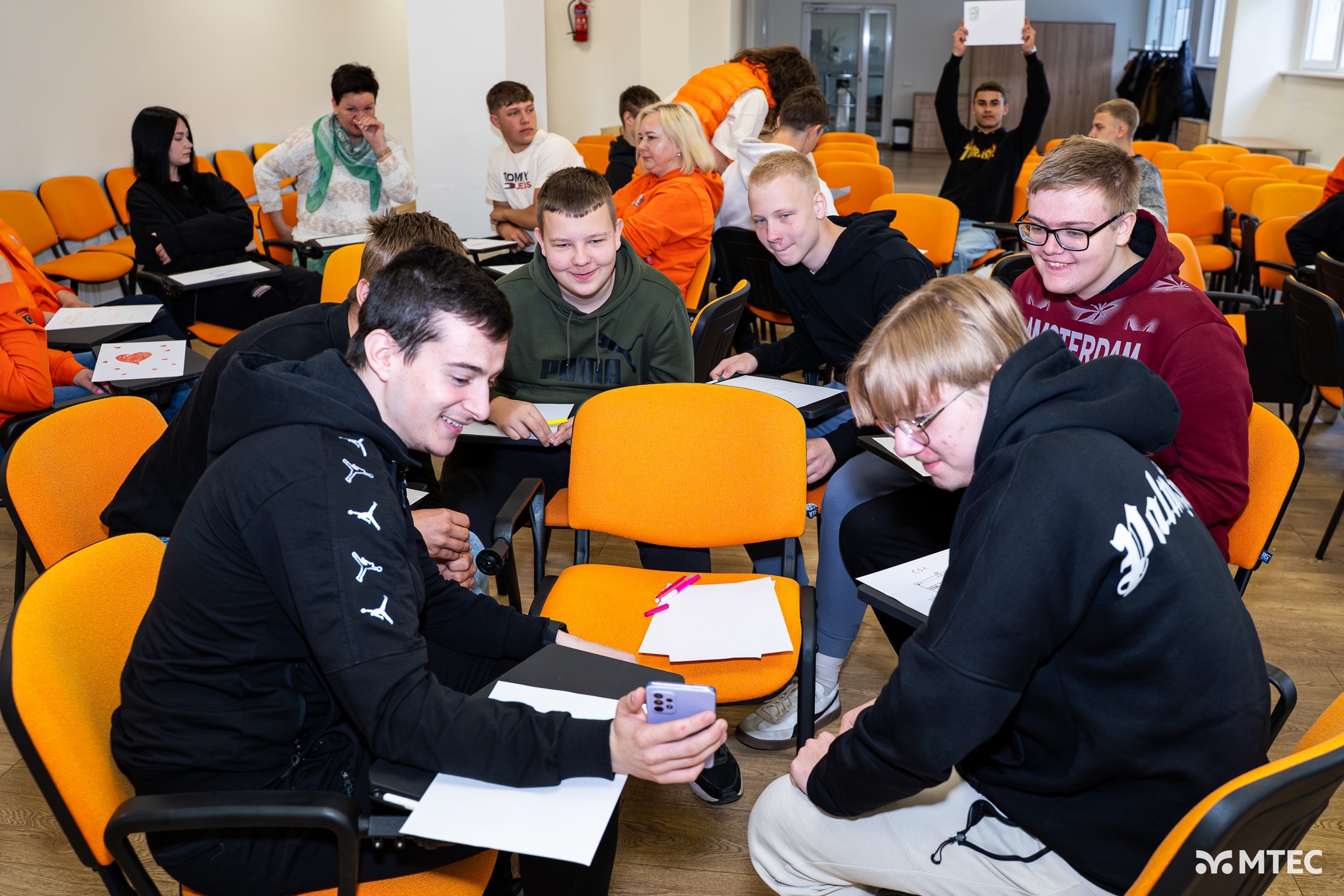
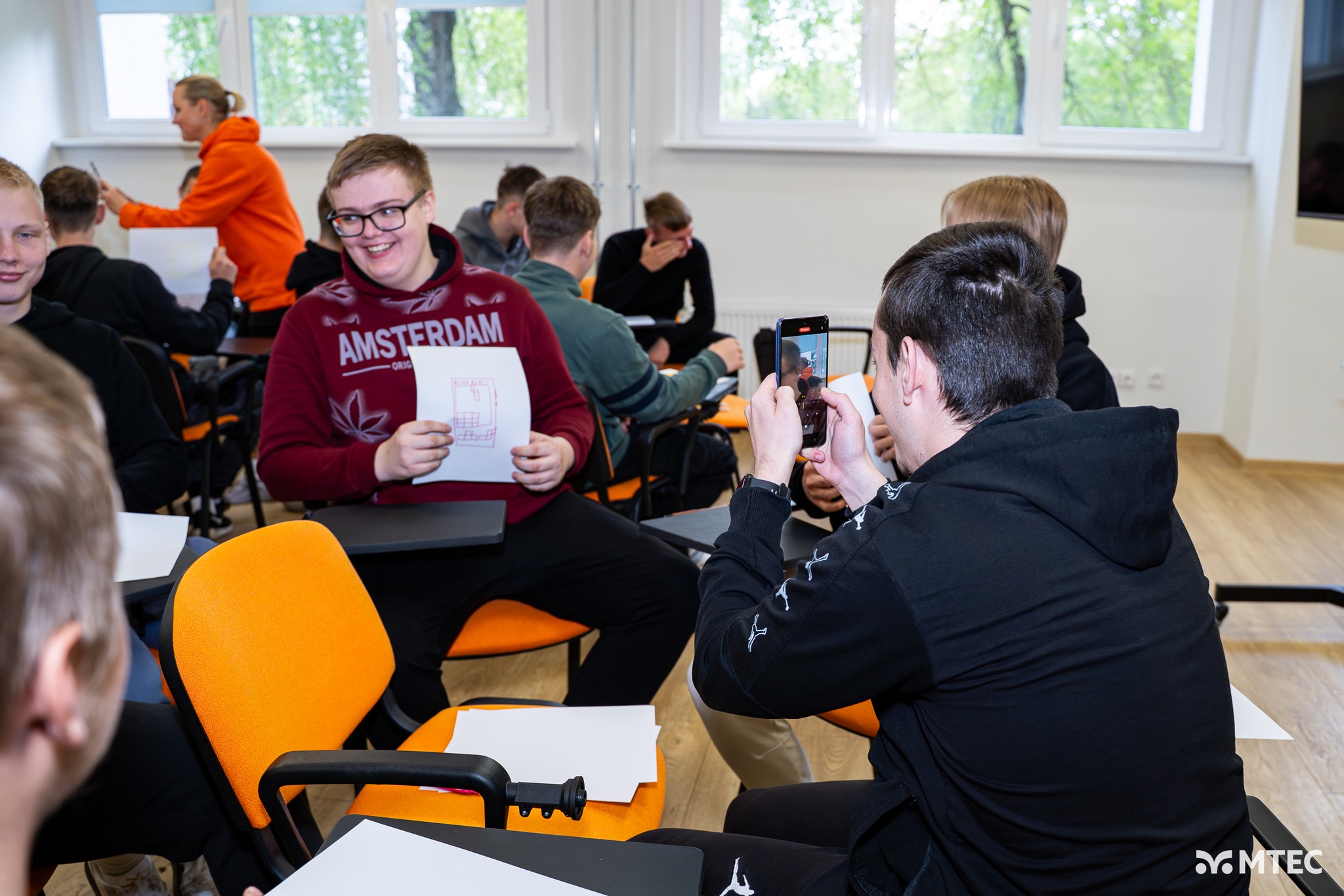
14/04/2025 - INPLANET: Coping Strategies and Digital Wellness
This session shifted the focus from understanding addiction to building the tools needed to face it with confidence.
Participants engaged in hands-on activities, group mapping exercises, and scenario-based discussions designed to uncover common triggers behind addictive online behaviors. Together, they explored strategies for maintaining a healthy online-offline balance, strengthening emotional resilience, and sharpening critical thinking in the digital age.
The workshop encouraged active participation and personal reflection, equipping everyone with practical approaches to navigate the digital world more mindfully.
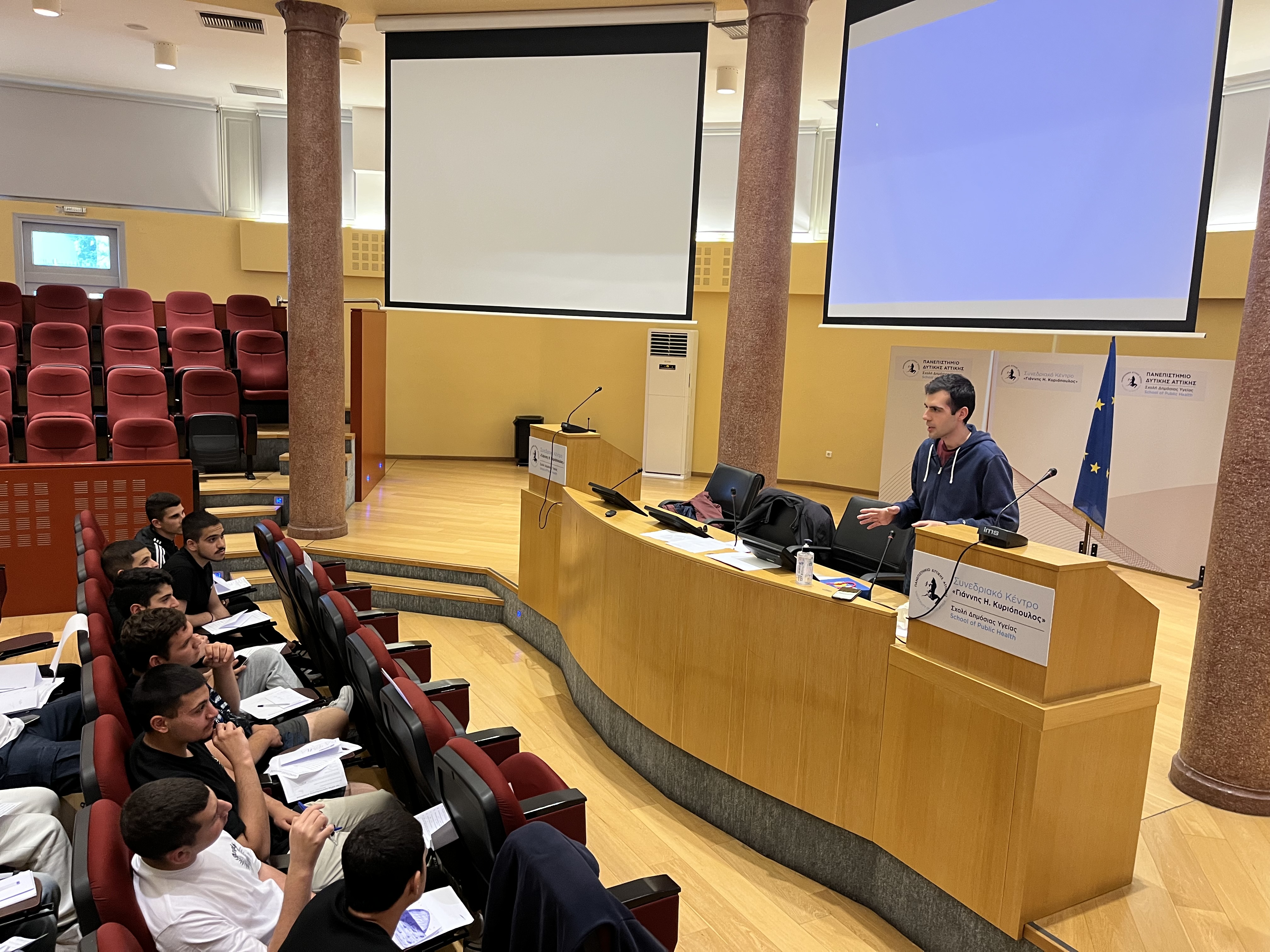
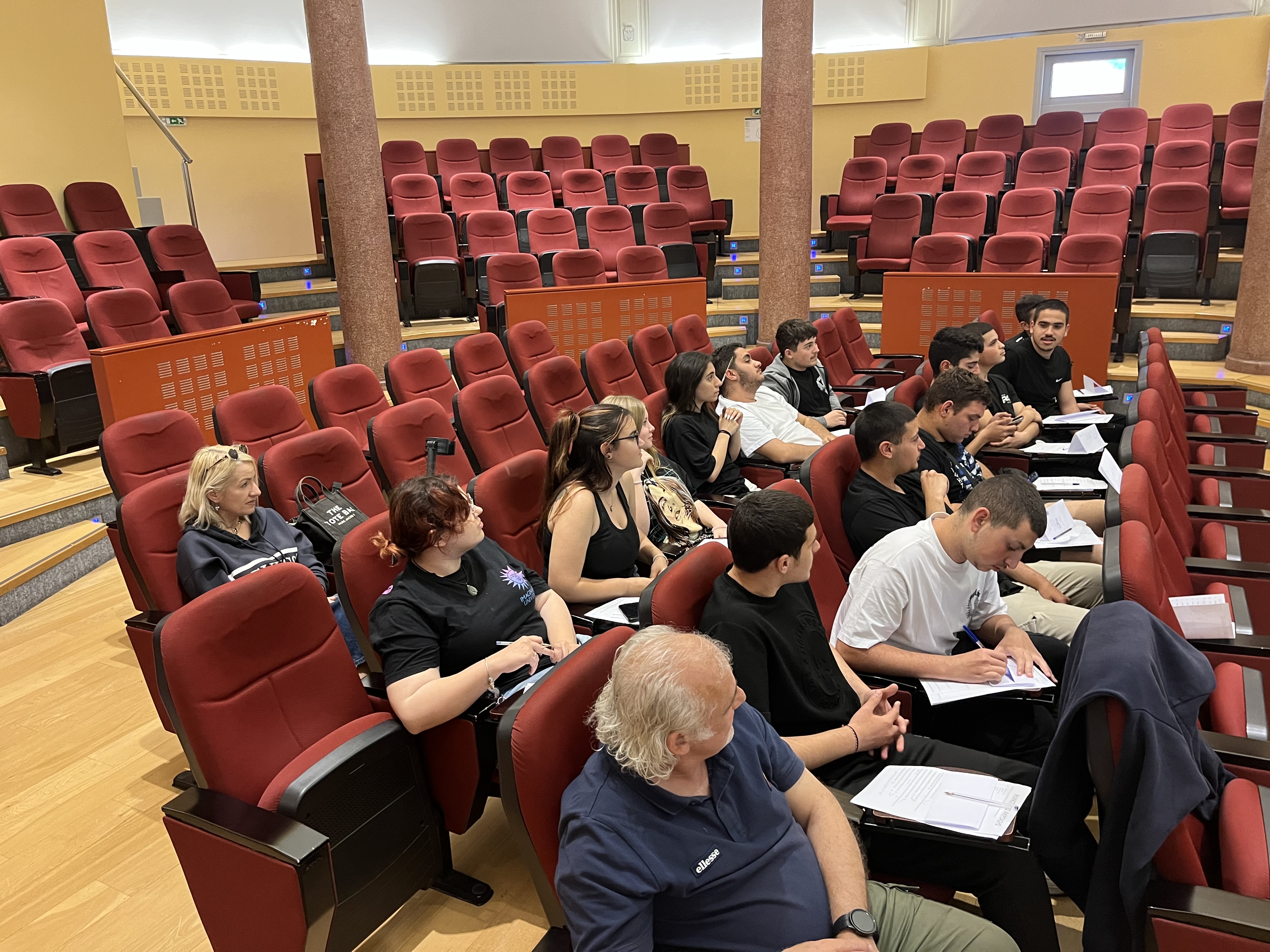
14/04/2025 - INPLANET: Undestanding Internet and Social Media Addiction
IN-PLANET trainers marked the launch of our second series of local workshops, bringing together students and teachers from Greece and Cyprus. The session focused on understanding the concept and growing prevalence of internet and social media addiction, especially among young people.
Participants explored how excessive use of digital platforms can lead to social isolation, reinforce harmful stereotypes, and affect mental health. Through guided discussions and shared reflections, we examined the psychological consequences of online overuse and the subtle ways it shapes our daily lives.
The workshop created space for honest dialogue, thoughtful exchange, and a collective step toward healthier digital habits.
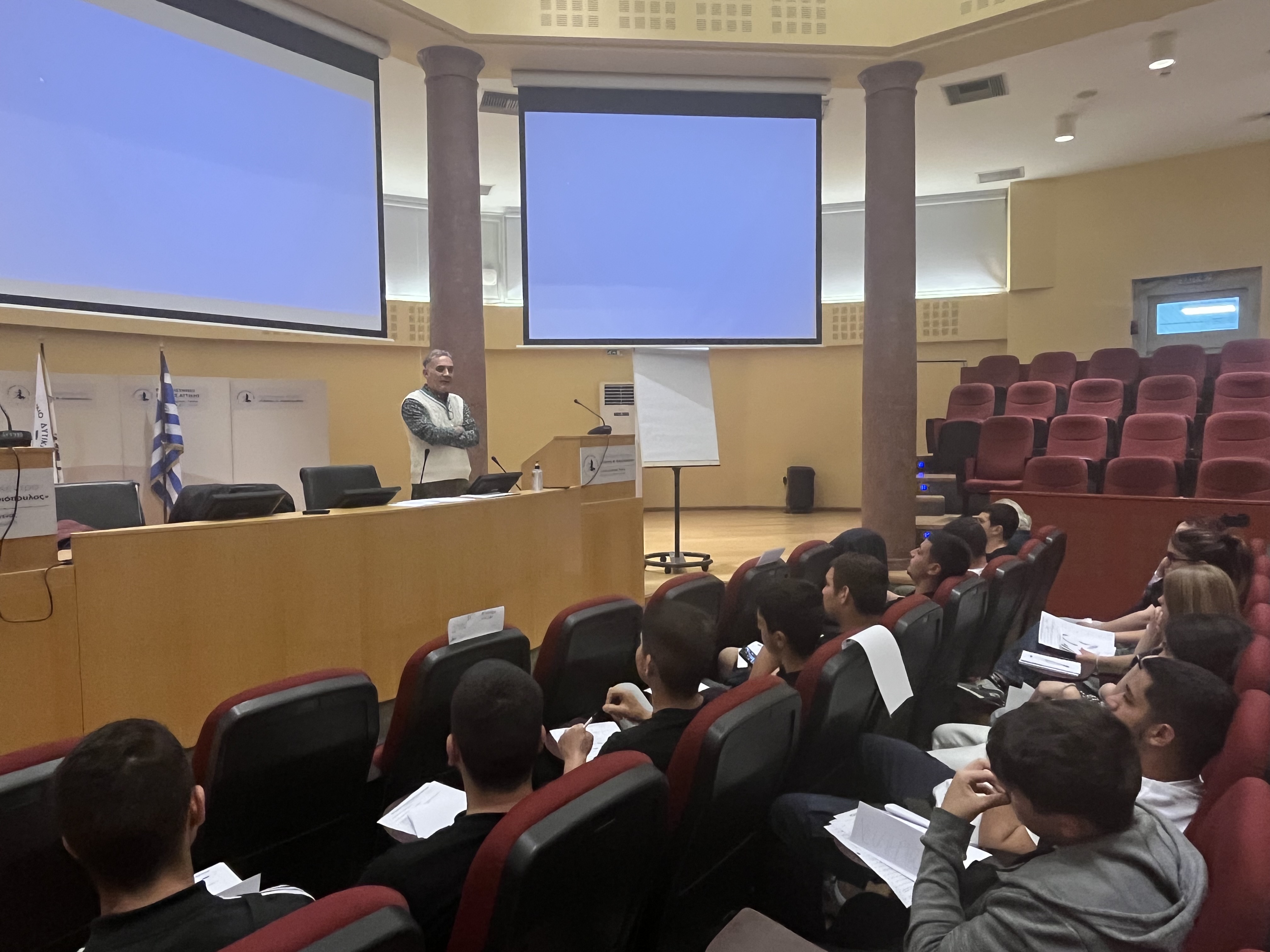
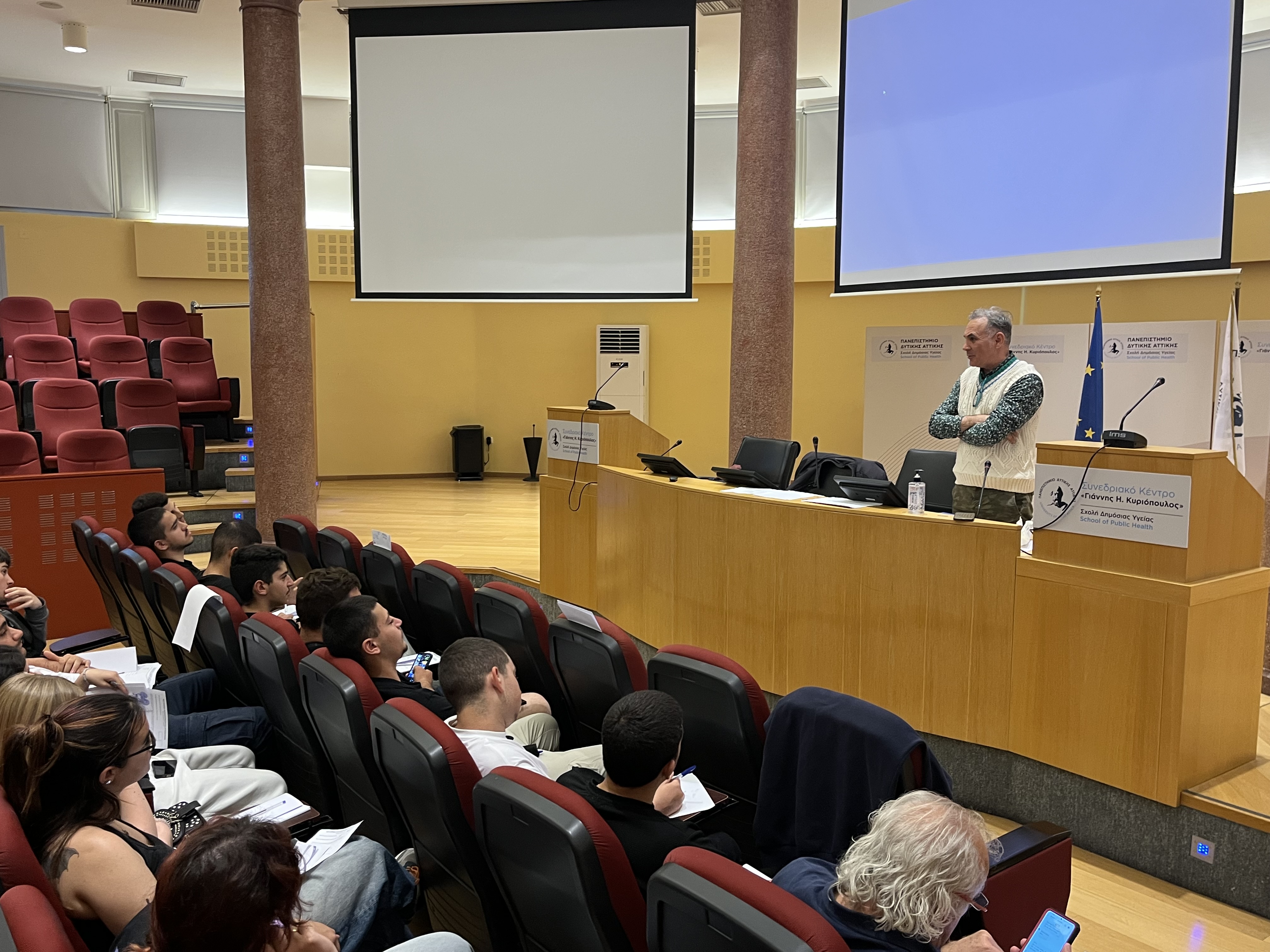
1st Series of Workshops
21/12/2024 - STEP: Forum Theater Workshop to Combat Internet and Social Media Addiction
This interactive workshop provided participants with a unique and engaging way to tackle the challenges of excessive internet and social media use. Using forum theater, attendees explored how digital addiction manifests in daily life and learned strategies to recognize and resist compulsive online behaviors.
A key part of the workshop involved the creation of compelling narratives inspired by real-life experiences with internet and social media addiction. Participants collaborated to develop scripts, identify critical moments, structure impactful scenes, and assign roles, using theater as a medium to raise awareness about the consequences of digital dependency. By stepping into these roles, they gained a deeper understanding of the emotional and psychological struggles associated with online overuse.
Beyond addressing digital addiction, the workshop also equipped young people with practical tools to combat cyberbullying and promote healthier online habits. Through interactive storytelling and performance, participants reflected on their own digital behaviors and explored ways to build a more responsible and supportive online community.
This session served as a powerful reminder that creative, experiential approaches can be highly effective in tackling complex social issues. By blending artistic expression with real-world challenges, the workshop inspired meaningful conversations and empowered participants to take proactive steps toward a healthier relationship with technology.
21/12/2024 - STEP: Exploring and Promoting Digital Citizenship vs. Cyber Addiction and Online Misconduct
This insightful workshop provided participants with an opportunity to explore the crucial topics of digital citizenship, cyber addiction, and online misconduct. Through engaging discussions and interactive activities, attendees examined the importance of responsible online behavior and the impact of digital habits on mental well-being.
The session encouraged critical reflection on the challenges of navigating the digital world, highlighting the fine line between healthy internet use and problematic online behaviors. Participants explored strategies to foster a more balanced relationship with technology, learning how to recognize signs of cyber addiction and mitigate the risks of excessive screen time.
Beyond personal digital habits, the workshop also addressed broader issues of online misconduct, including cyberbullying, misinformation, and digital ethics. By analyzing real-world scenarios, attendees gained practical tools to promote respectful and responsible online interactions while advocating for a safer and more supportive digital environment.
This workshop served as a valuable platform for young people to deepen their understanding of digital citizenship and take proactive steps toward fostering a healthier, more ethical online presence. Through meaningful discussions and shared experiences, participants left with a stronger awareness of their digital responsibilities and the power they hold in shaping positive online communities.
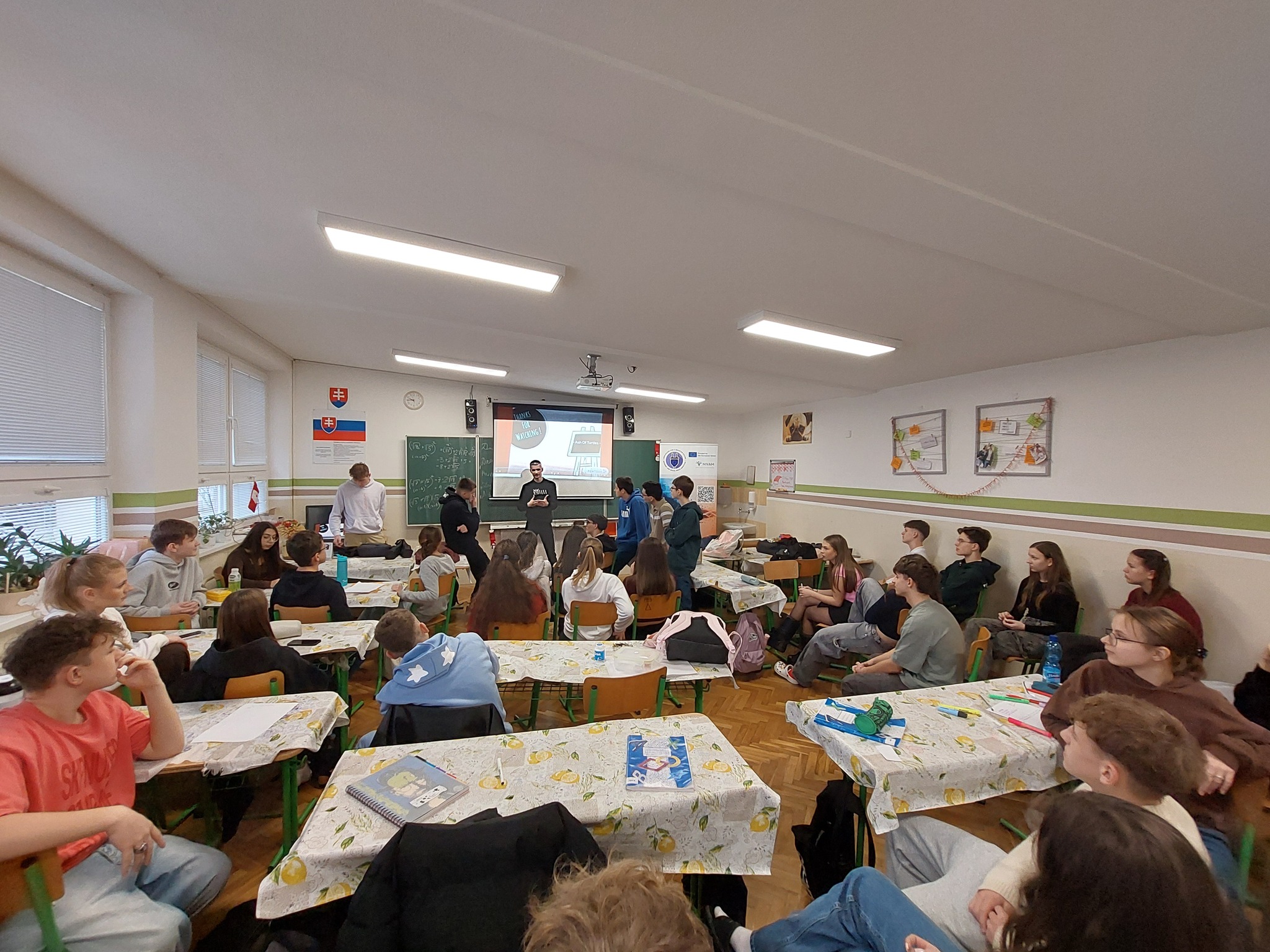
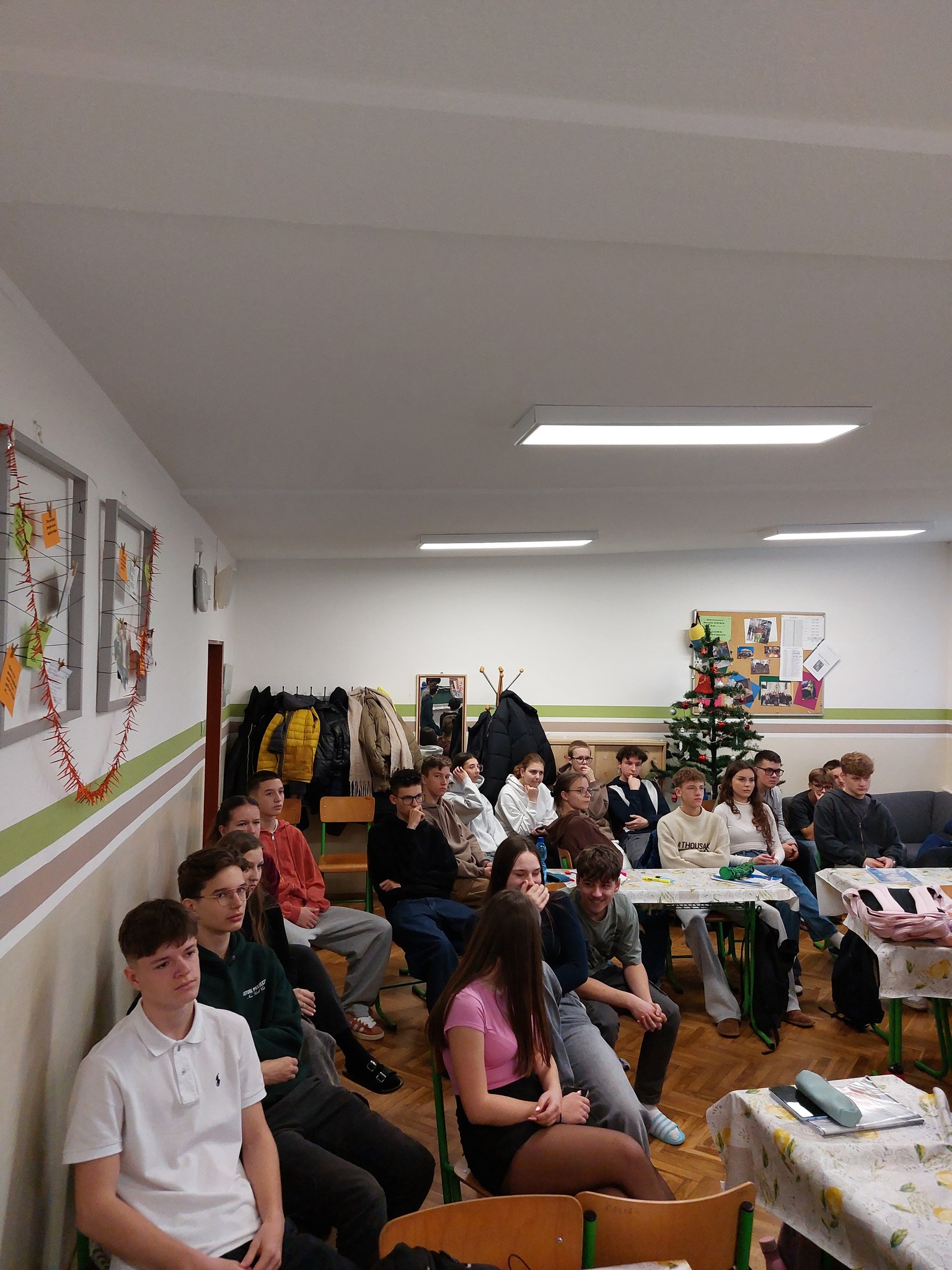
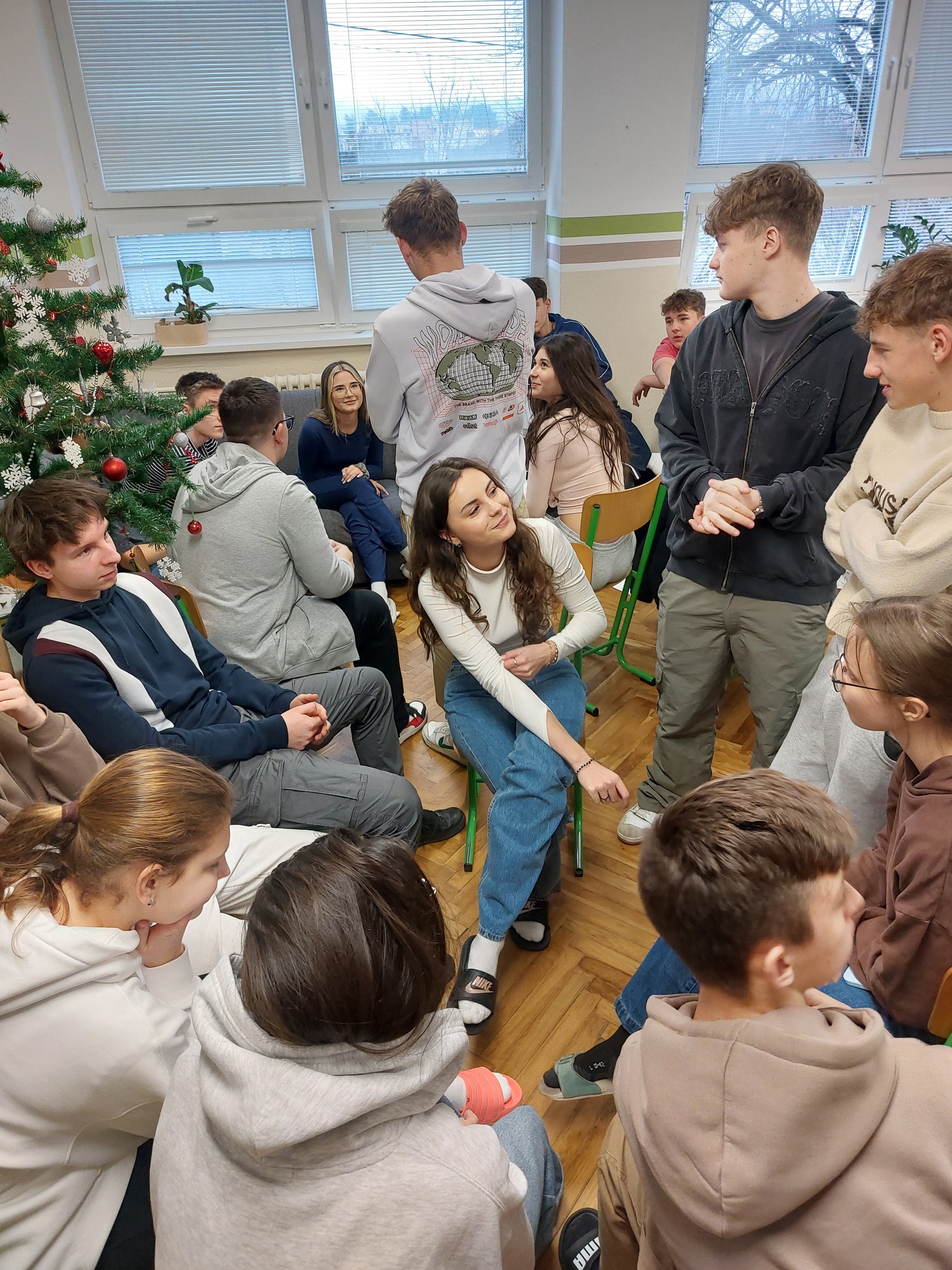
21/12/2024 - STEP: Understanding Internet & Social Media Addiction
Participants took part in an engaging workshop that explored the impact of excessive screen time on mental health and overall well-being, with a particular emphasis on its effects on young people. The session provided a platform for meaningful discussions on how prolonged online activity can contribute to anxiety, stress, and reduced real-world social interactions.
Through a combination of expert insights and interactive exercises, attendees learned to recognize the signs of internet and social media addiction, such as compulsive scrolling, excessive screen use, and difficulty disconnecting from digital platforms. They also examined the emotional and psychological consequences of these behaviors, gaining a deeper understanding of the challenges young individuals face in an increasingly digital world.
Beyond identifying harmful patterns, the workshop encouraged participants to explore the underlying causes of digital dependency, including factors like social isolation, peer pressure, and the constant demand for online presence. By analyzing these influences, they were able to reflect on their own digital habits and discuss practical strategies for fostering a healthier relationship with technology.
The session concluded with a focus on solutions, emphasizing the importance of balance, digital detox strategies, and mindfulness techniques to help mitigate the negative effects of excessive screen time. Participants left with valuable tools to navigate the digital space more consciously, promoting mental well-being while staying connected in a more intentional and meaningful way.
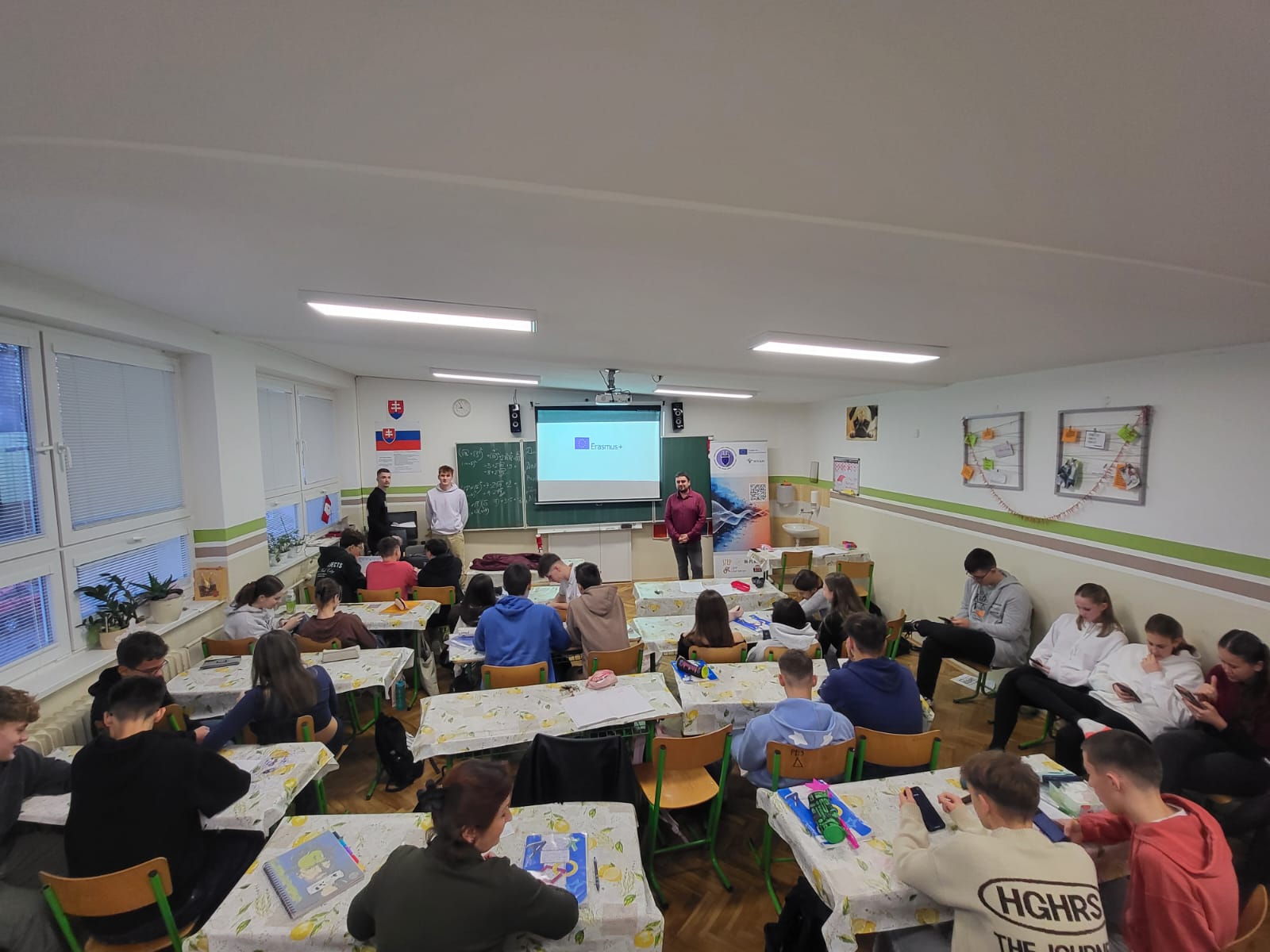
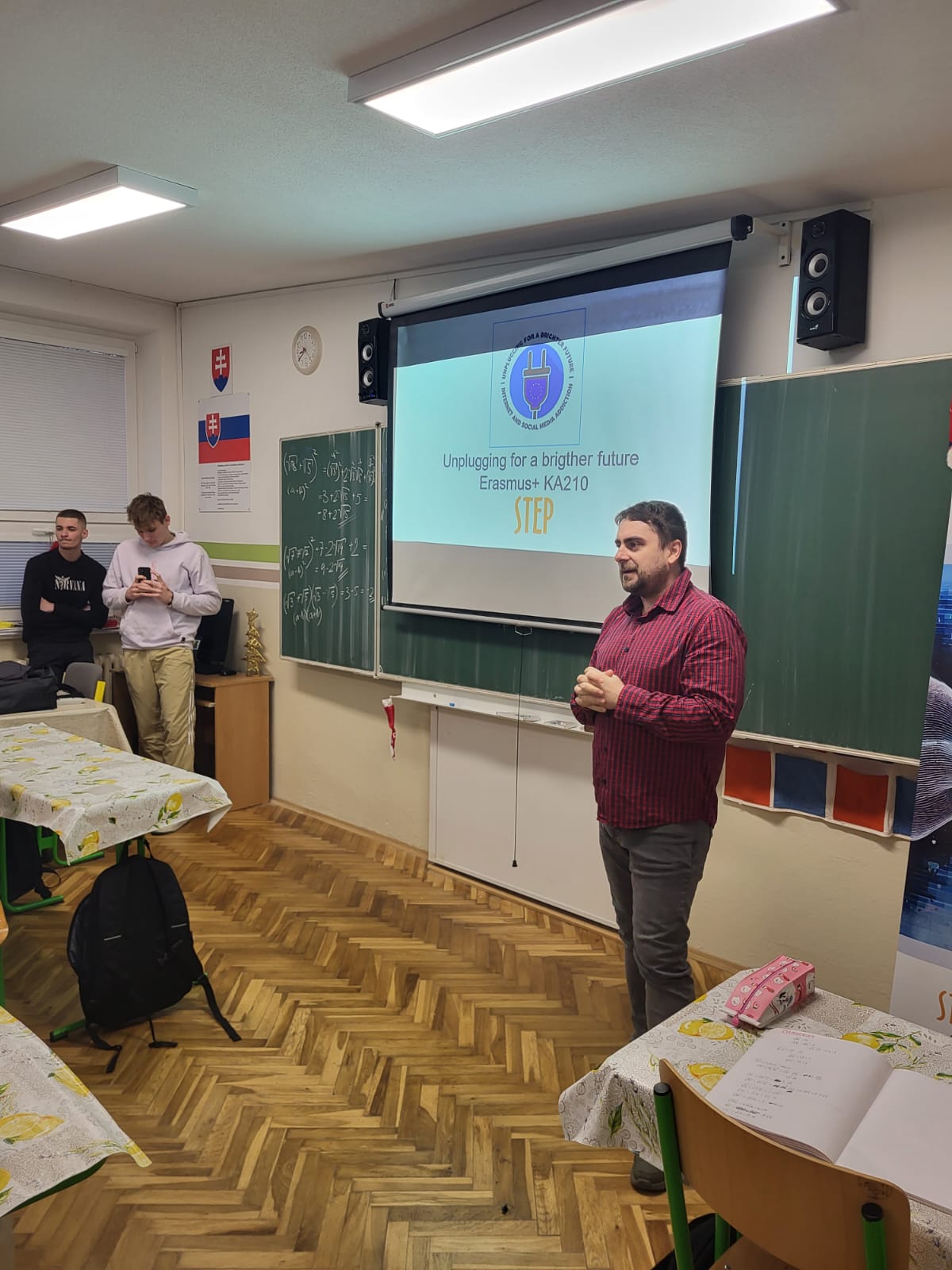
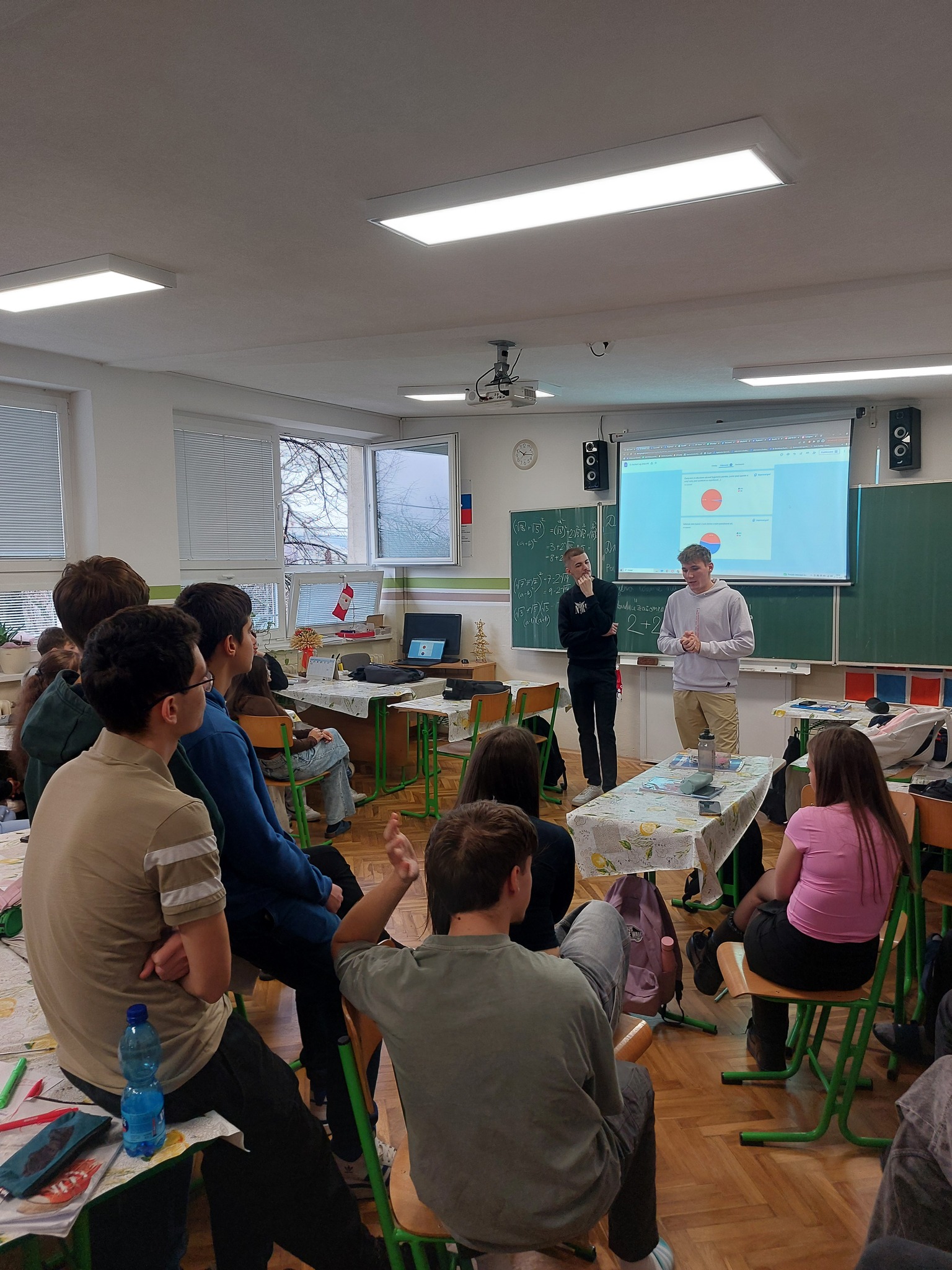
20/12/2024 - CIFP César Manrique: Forum Theater Workshop to Combat Internet and Social Media Addiction
During the workshop celebrated at CIFP César Manrique, students have implemented a forum theatre with the topic Internet and Social Media addiction.
The students of the group Higher Technician in Production of Audiovisual Projects, collaborated with the Erasmus+ coordinators of CIFP Cesar Manrique for the realization of a Forum Theater activity, where Internet addiction was staged in a clear way. In addition, students were able to perform a practical activity of their specialty and were able to work in a real working environment of realization and production of short films. More than 30 students were able to observe the scene and understand the meaning of the proposed idea. A very real activity, practical and connected with the objectives of the project.
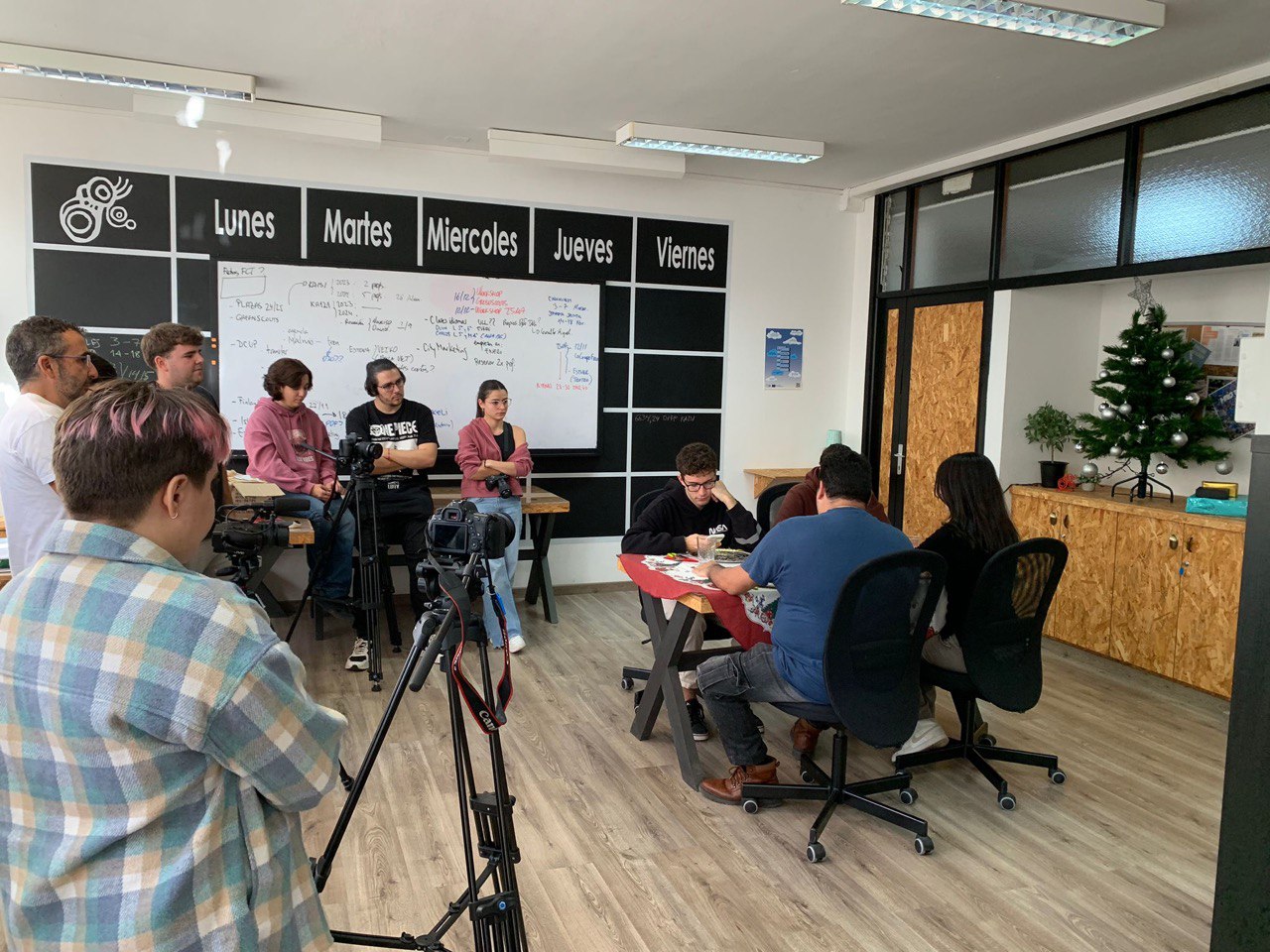
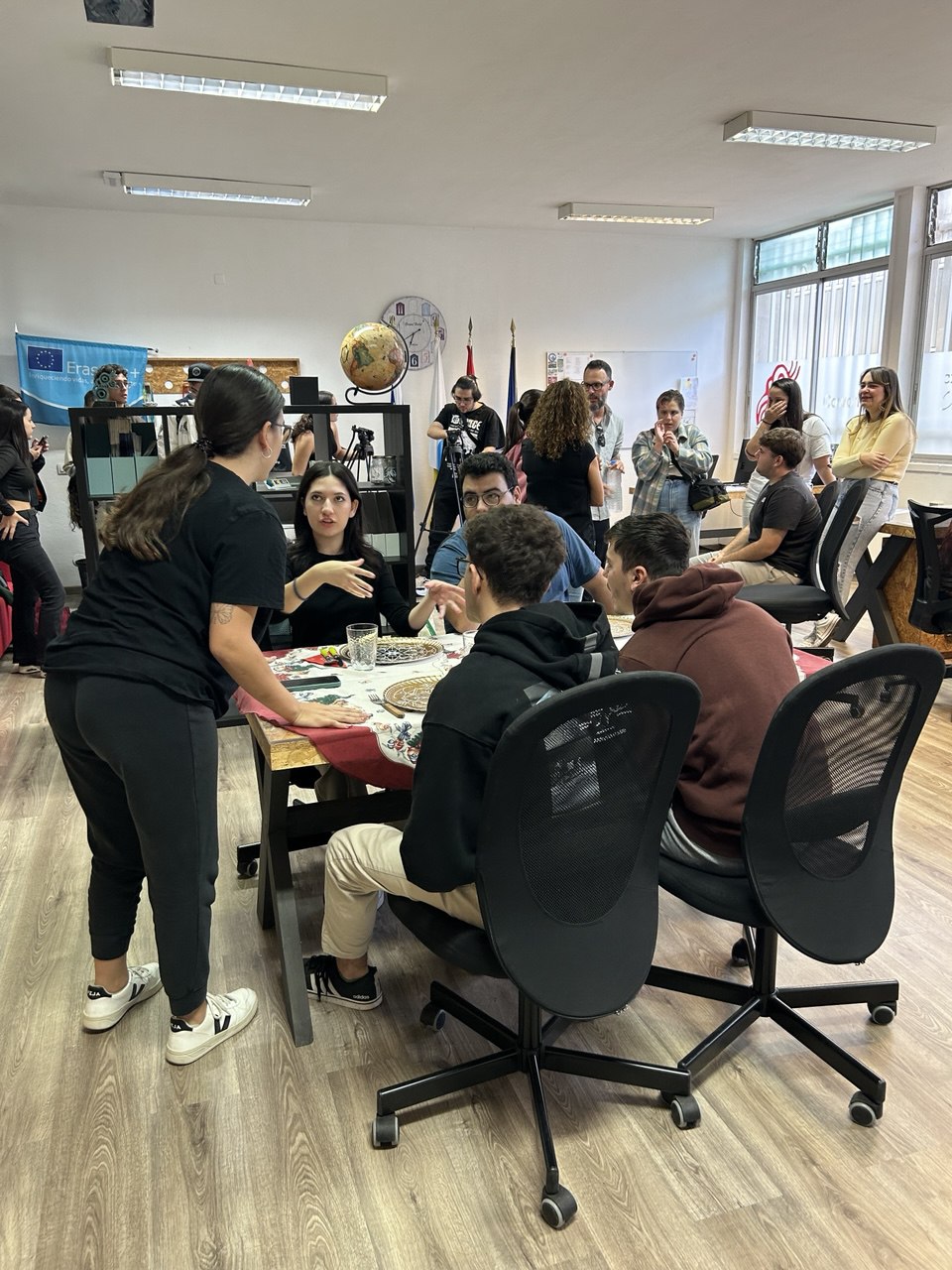
12/12/2024 - CIFP César Manrique: Exploring and Promoting Digital Citizenship vs. Cyber Addiction and Online Misconduct Workshop
The Erasmus+ coordinators of CIFP César Manrique proposed several activities to the participating students: an icebreaker activity, the free use of their smartphones and subsequent discussion about what they did during that time, the completion of a questionnaire and other activities proposed by the project partners. The students of CIFP César Manrique managed to make an important analysis on the use they make of the Internet, it was very interesting to know that many of them used their smartphones as a tool to streamline their tasks and classroom activities, for example tools for video and image editing. The students reflected on the time dedicated to the use of social networks and how to reduce it.
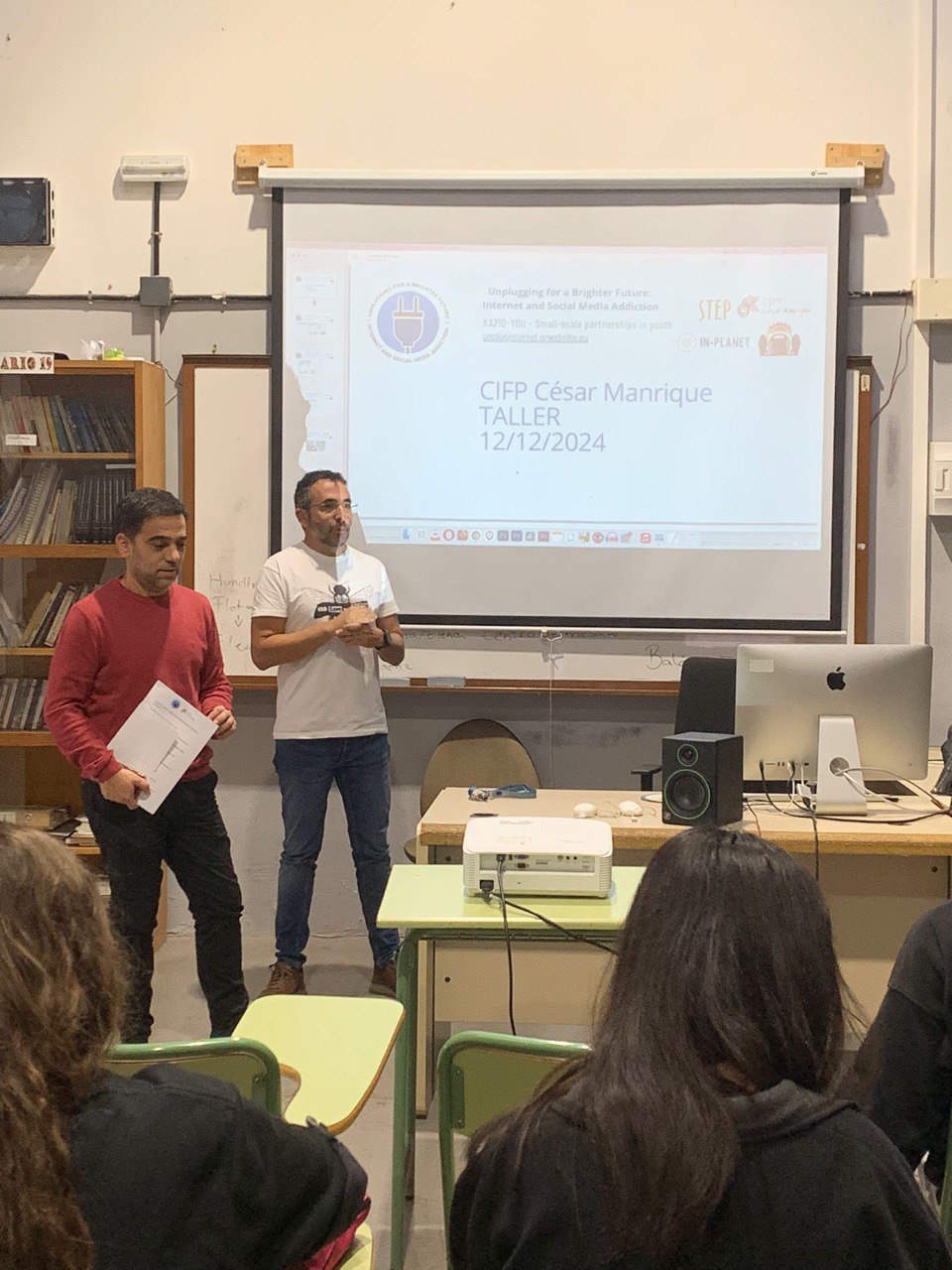
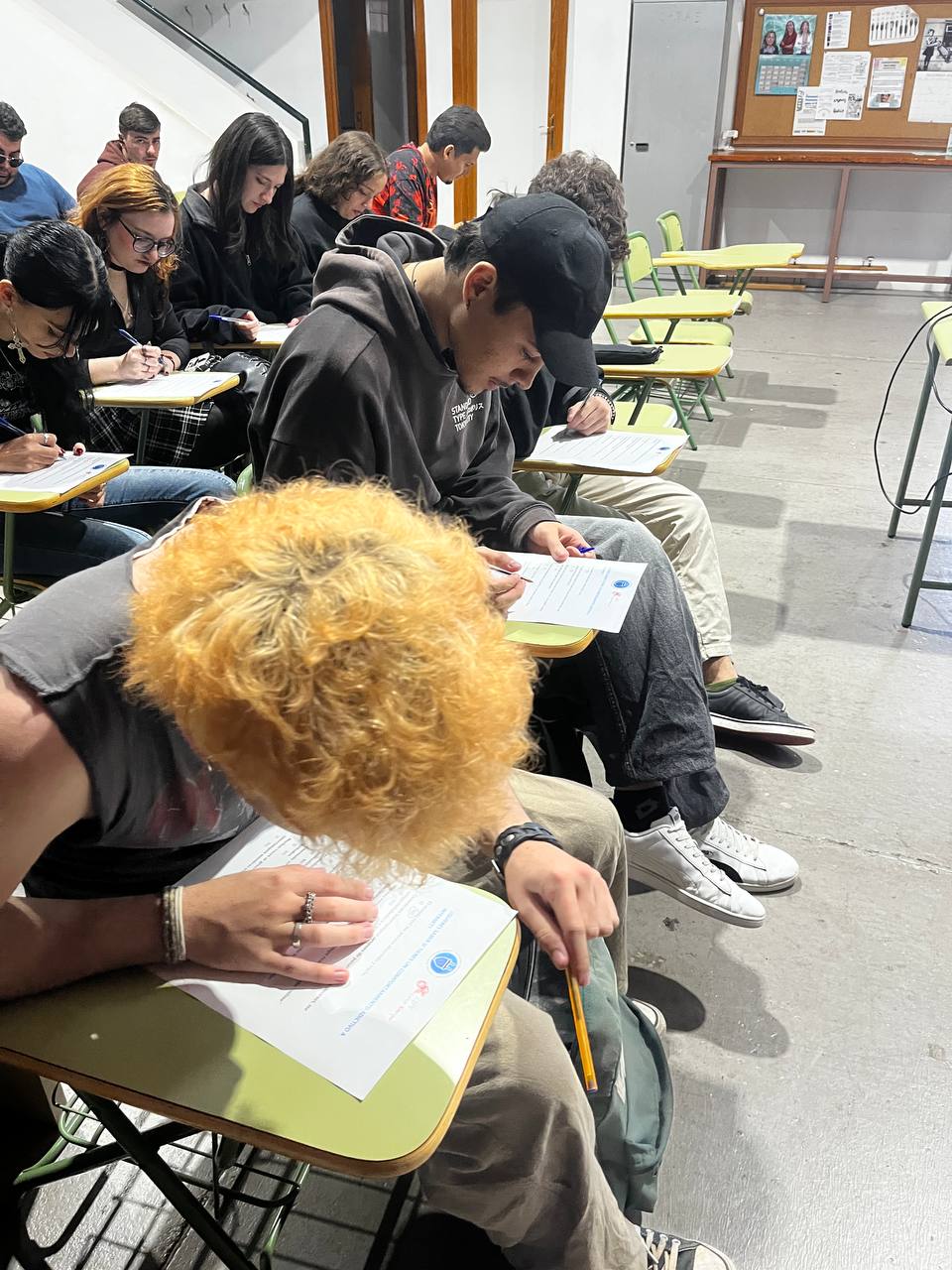
05/12/2024 - CIFP César Manrique: Understanding Internet & Social Media Addiction Workshop
Students and educators of CIFP César Manrique came together to plan an impactful workshop. This workshop aimed to provide innovative strategies and tools to:
- Promote digital well-being education.
- Combat cyberharassment, online violence, and digital discrimination.
- Foster inclusion and eliminate biases in both online and real-world environments.
The Erasmus+ coordinators of CIFP César Manrique presented to the participating students the results of the survey on Internet addiction that was conducted among the students of the Center. A dialogue was opened on the issues raised and ideas were provided on how to promote actions to achieve the objectives of the project.
Our project recognizes the critical need for new competencies to address the growing digital challenges faced by young people, especially post-pandemic. By exploring the intersection of digital well-being and identity markers such as race, ethnicity, and sexuality, we aim to empower youth to navigate online spaces safely and inclusively.
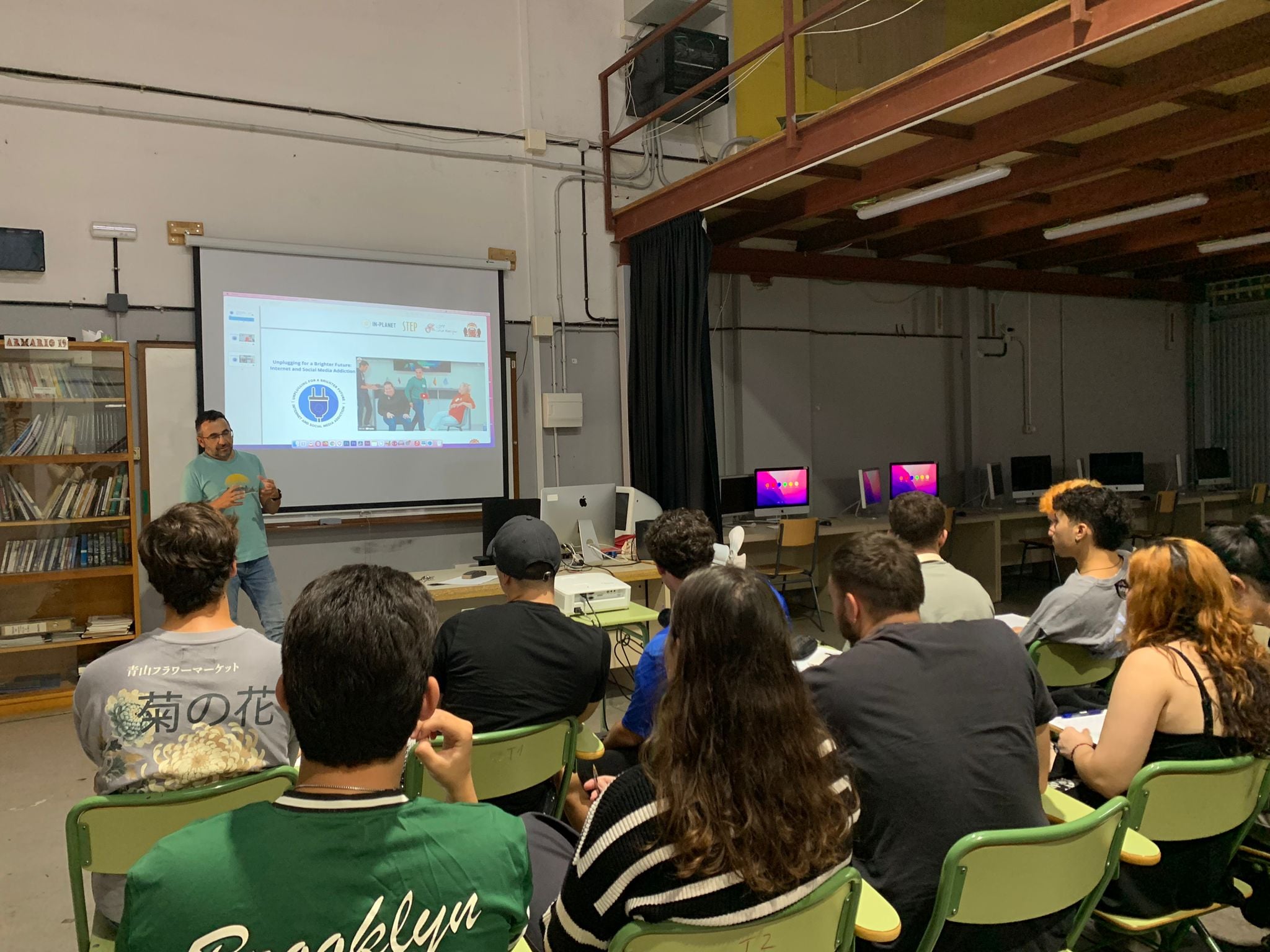
04/12/2024 - MPRC: Forum Theater Workshop to Combat Internet and Social Media Addiction
Students from the Marijampolė VET Center Gymnasium Department challenged themselves with unconventional activities and gained new skills. As part of the international project “Unplugging for a Brighter Future: Internet and Social Media Addiction,” the planned training activities aimed not only to familiarize students with the theoretical aspects of internet addiction but also to explore possible solutions. One of the methods used to creatively highlight the problem and seek solutions was 𝐭𝐡𝐞𝐚𝐭𝐞𝐫.
𝐓𝐡𝐞 𝐭𝐡𝐞𝐚𝐭𝐞𝐫—𝐨𝐫 𝐝𝐫𝐚𝐦𝐚—𝐦𝐞𝐭𝐡𝐨𝐝 had already been tested during a meeting of the project's partner teachers. The participating students were divided into groups of 4-5 members, and each group was given a scenario based on everyday life, such as a gym, home, bus, or schoolyard. The task for each group was to discuss and act out a scene incorporating an element of internet addiction. Once prepared, the students performed their scenes for the other participants.
The unique twist of this method was that during the second performance of the same scene, any other participant could interrupt at any moment, replace an actor, and change the course of the performance in their own way. This approach not only taught understanding, quick thinking, and teamwork but also revealed students' creativity, eloquence, adaptability, and improvisation skills. The method often uncovered genuine, intuitive reactions, making it a heartfelt and sincere exercise.
It was delightful to witness the students' ingenuity and artistic flair. What stood out was their ability to be relaxed, creative, and bold, skillfully highlighting the essence of the problem while also suggesting solutions.
27/11/2024 - MPRC: Exploring and Promoting Digital Citizenship vs. Cyber Addiction and Online Misconduct Workshop
Marijampole VET Center students tried out a method introduced during a project meeting with Slovakian partners. 𝐓𝐡𝐞 𝐠𝐨𝐚𝐥 𝐨𝐟 𝐭𝐡𝐞 𝐦𝐞𝐭𝐡𝐨𝐝 was to spark discussions with young people about conflict situations caused by digital addictions and to identify potential solutions to the problem. The students, divided into five groups, worked together to find effective ways to reduce excessive phone and internet usage.
In their groups, the students actively participated, communicated, and collaborated to develop recommendations, which they then presented to the entire audience. Following the discussions, participants suggested engaging in enjoyable and interesting activities with peers, exercising more often, spending quality time outdoors with friends or family, playing board games, creating a strict daily schedule for phone usage, and limiting screen time. They also emphasized the importance of setting agreements with family members and friends to have designated times when all phones are turned off, fostering opportunities to build real social connections.
Many students acknowledged that they rarely reflect on how much time digital technologies and phone browsing consume or how social media often disconnects them from real-life interactions. As a result, all students who participated in the activities were pleased to spend a meaningful afternoon with their peers, enjoying an engaging experience without their phone screens.
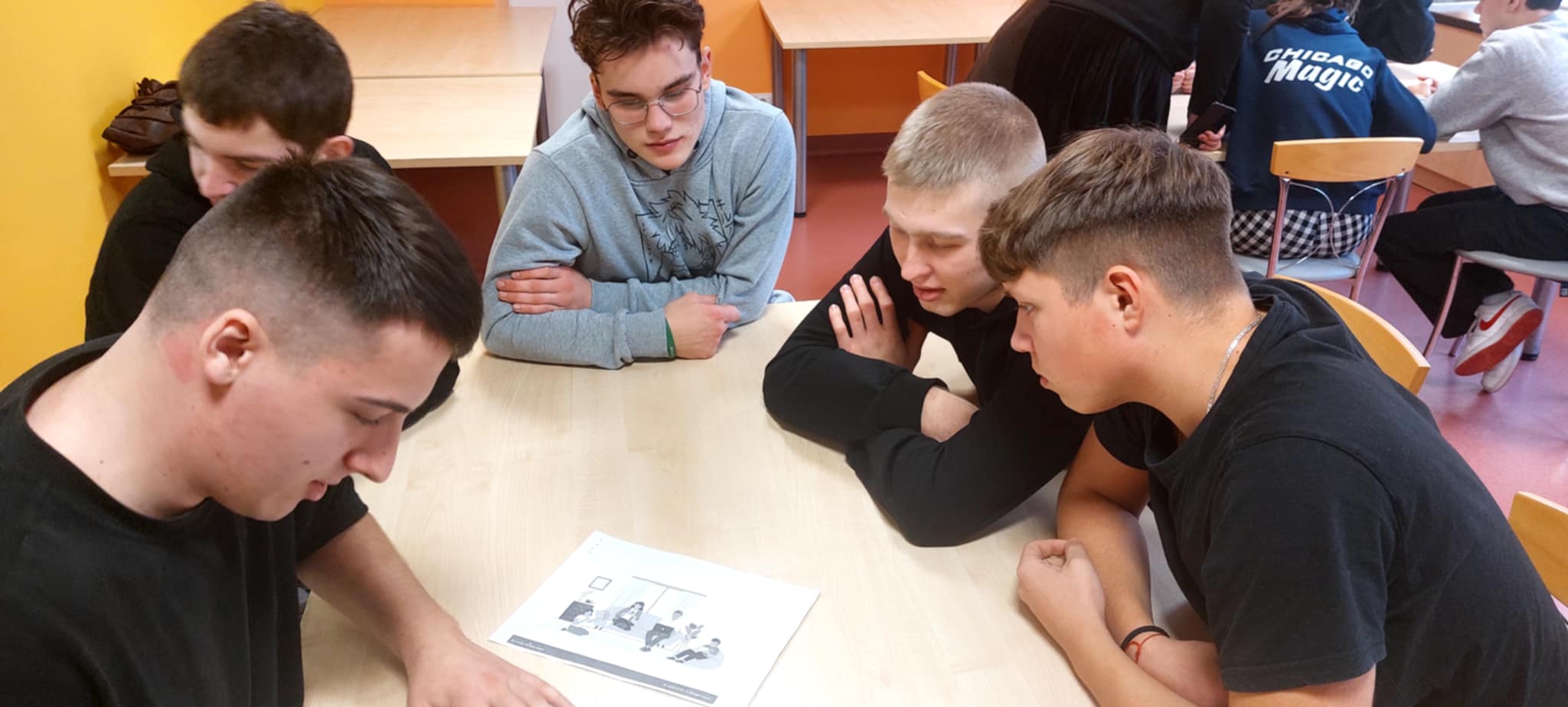
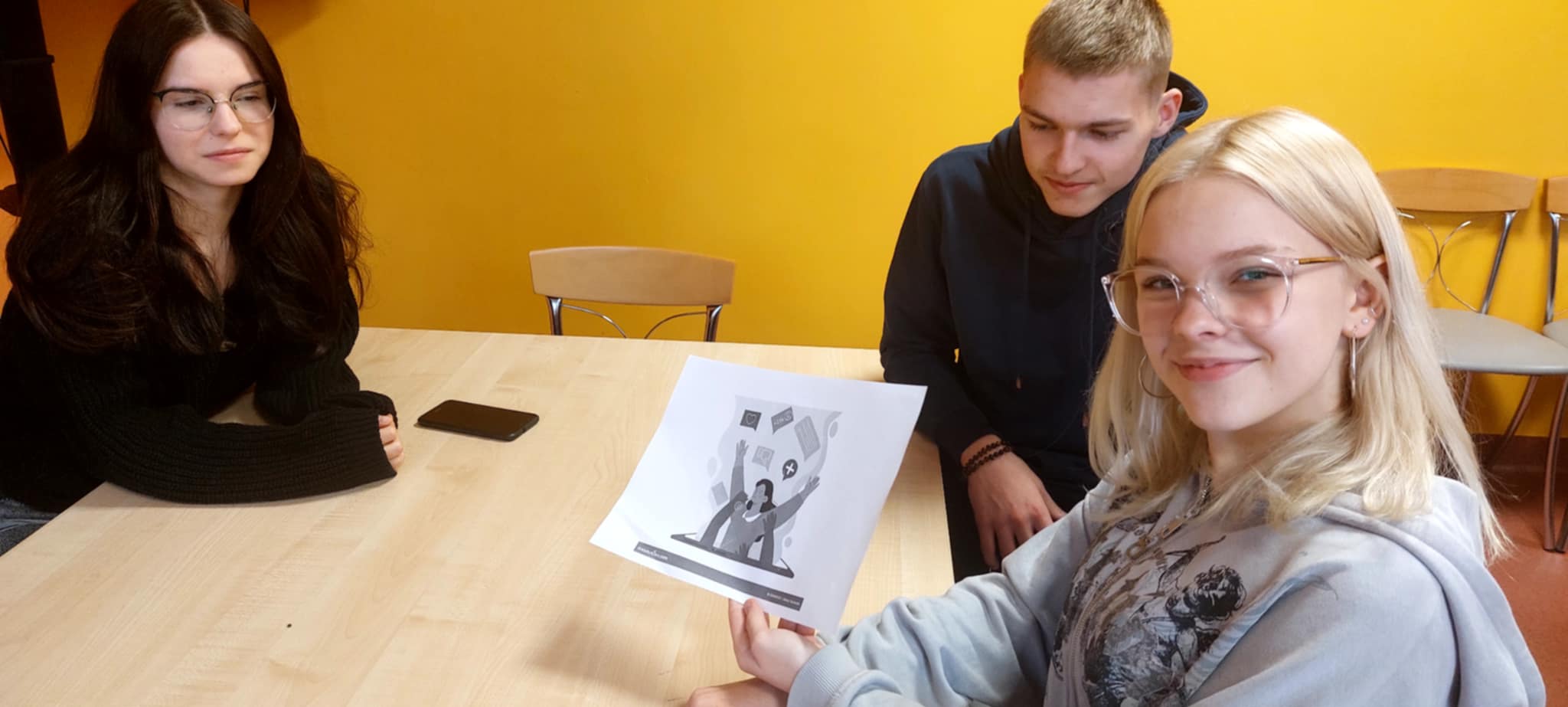
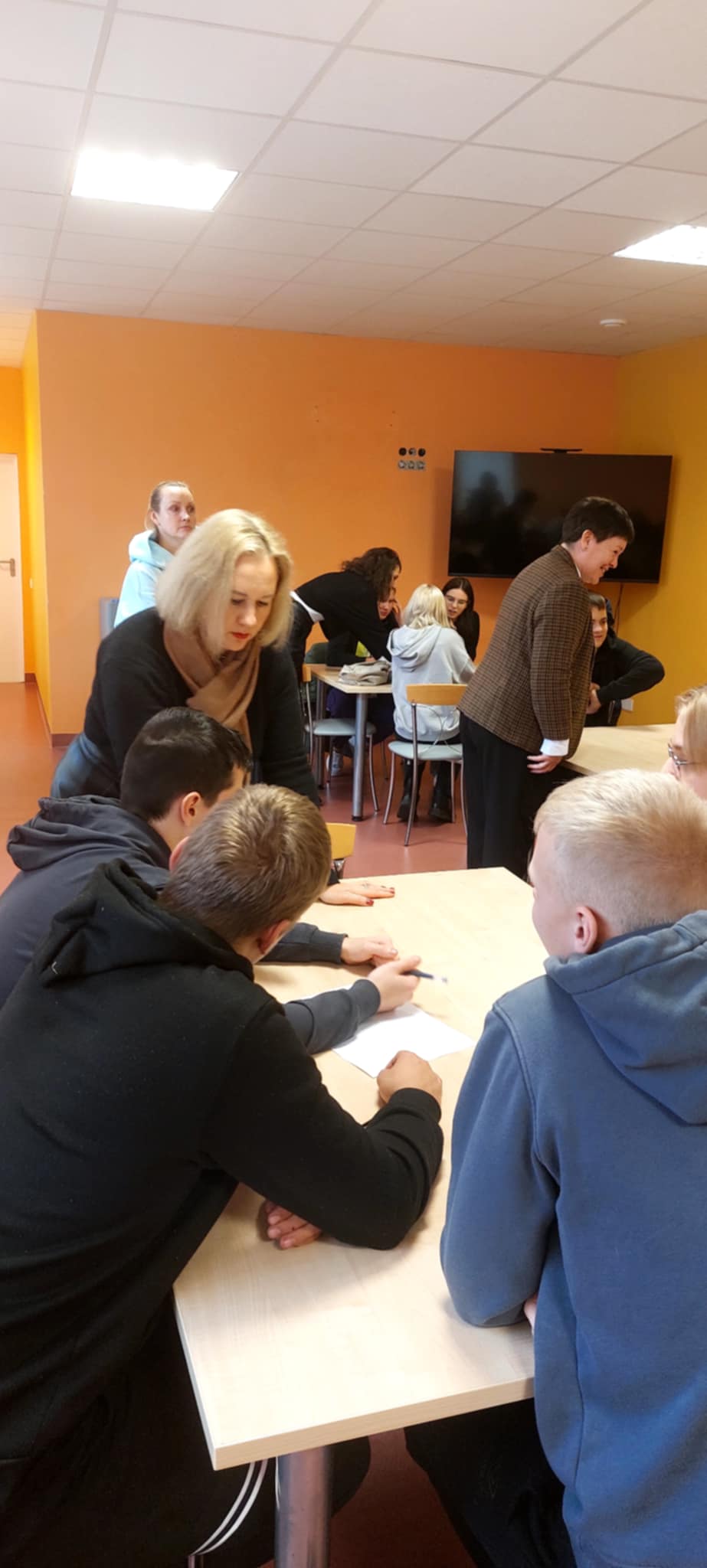
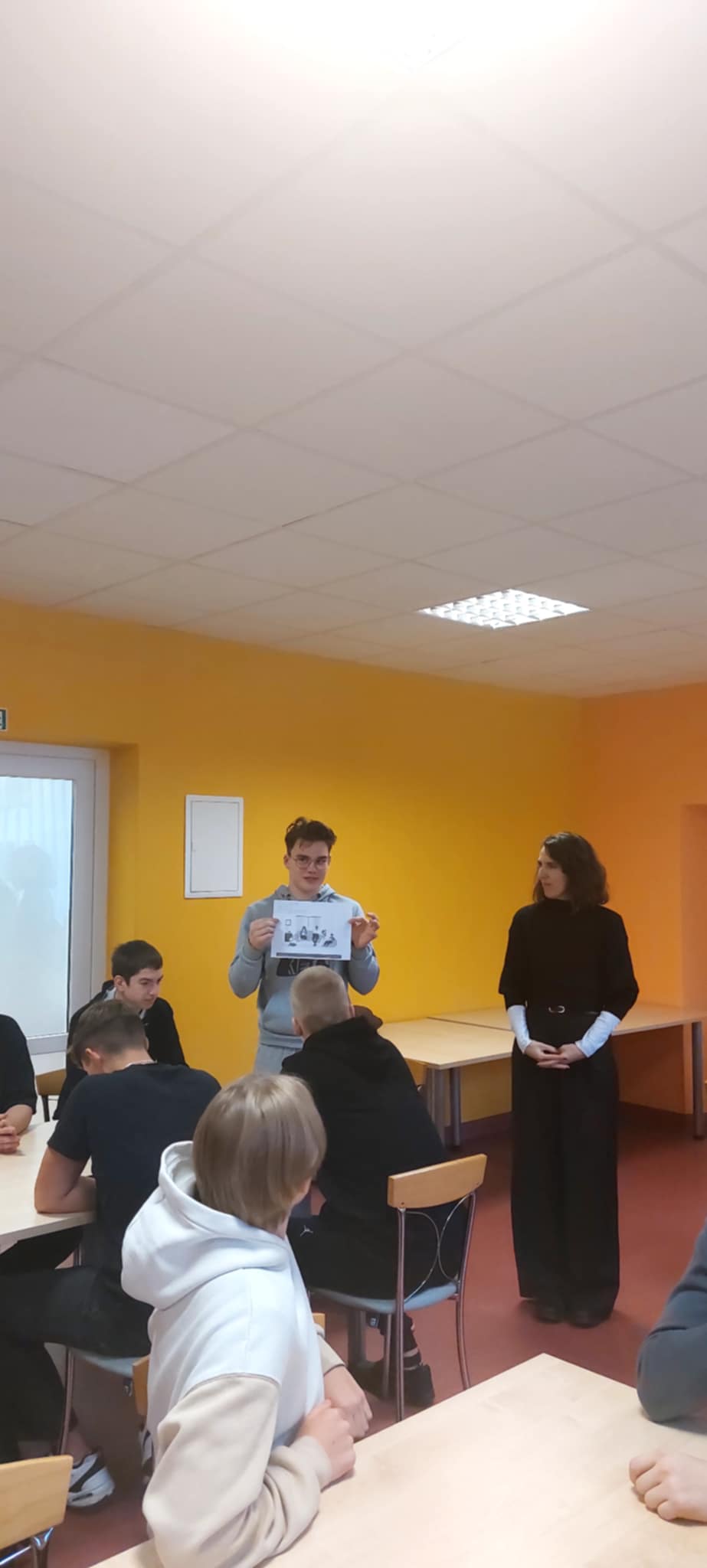
20/11/2024 - MPRC: Understanding Internet & Social Media Addiction Workshop
The teachers of the Gymnasium MPRC organized a meeting with students to present the results of a conducted study. Recent scientific research indicates that 99.9% of teenagers use the internet, and the COVID-19 pandemic significantly contributed to the increase in digital addiction, intensifying dependency on digital devices. Internet and social media addiction has a profound emotional and psychological impact, often leading to various negative emotions, mental health issues, and disruptions in emotional well-being.
The team of teachers conducted a study on internet and social media addiction among the center's students by surveying 135 respondents. The results revealed that many young people are unaware of the risks posed by the digital space and often claim they are not dependent on digital technologies. However, the amount of time they spend on screens suggests otherwise. A study conducted by Marijampolė PRC showed that young people often fail to recognize the problematic nature of their internet usage and ignore associated risks, such as addiction, mental health disorders, and social isolation.
During the meeting, the students not only attentively listened to a relevant presentation but also participated in an interactive survey on technology addiction. The survey results provided an opportunity for everyone to engage in a discussion about the internet, its impact on the development of young people's personalities, and the need to explore alternative ways to experience the world.
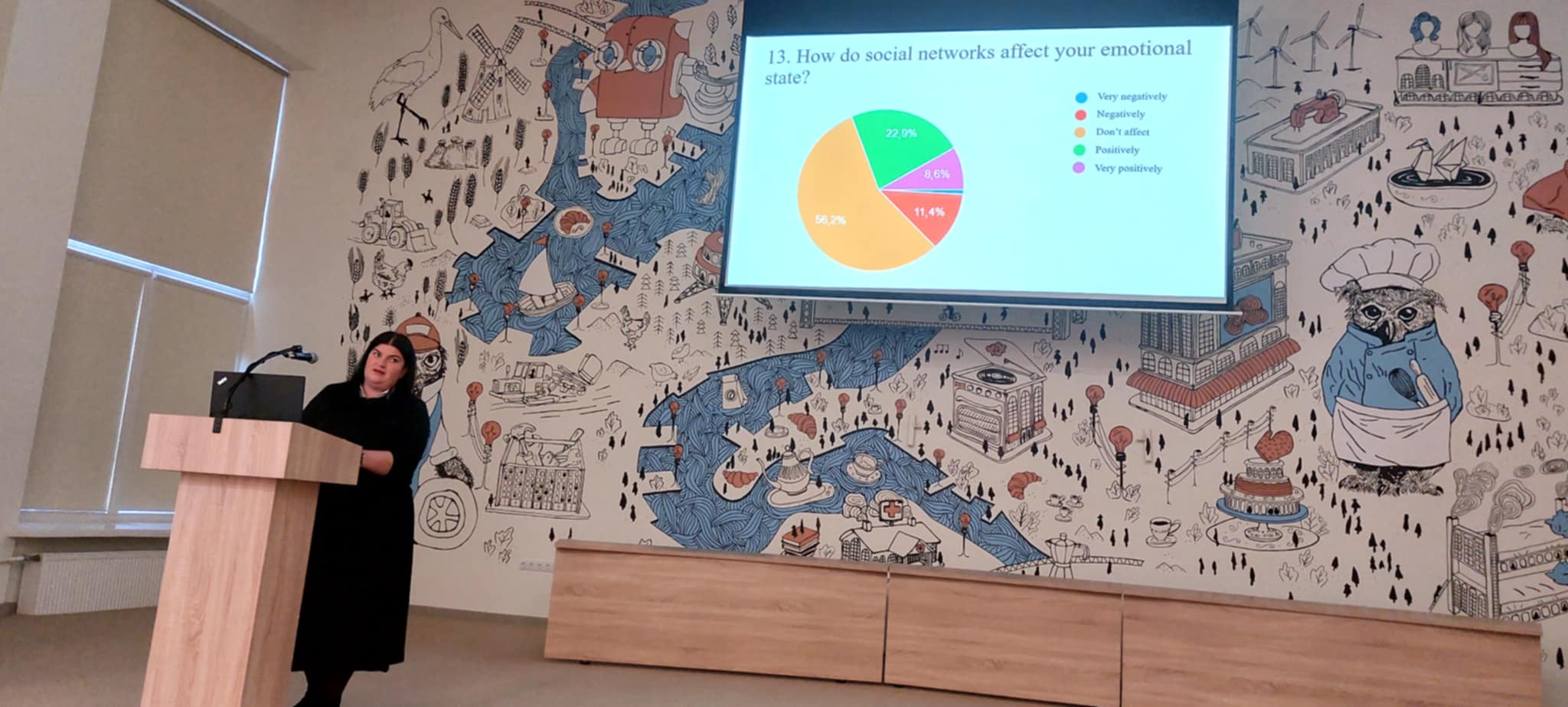
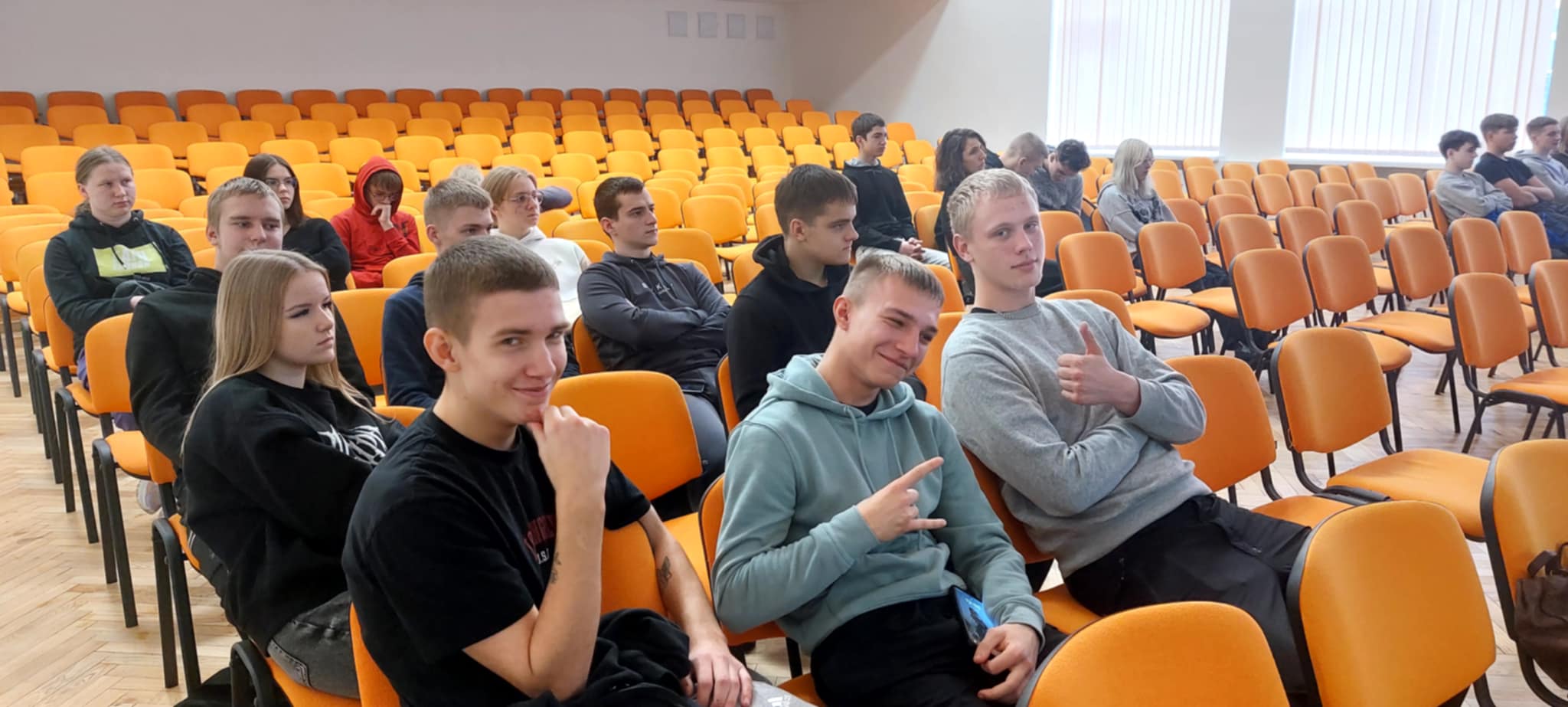
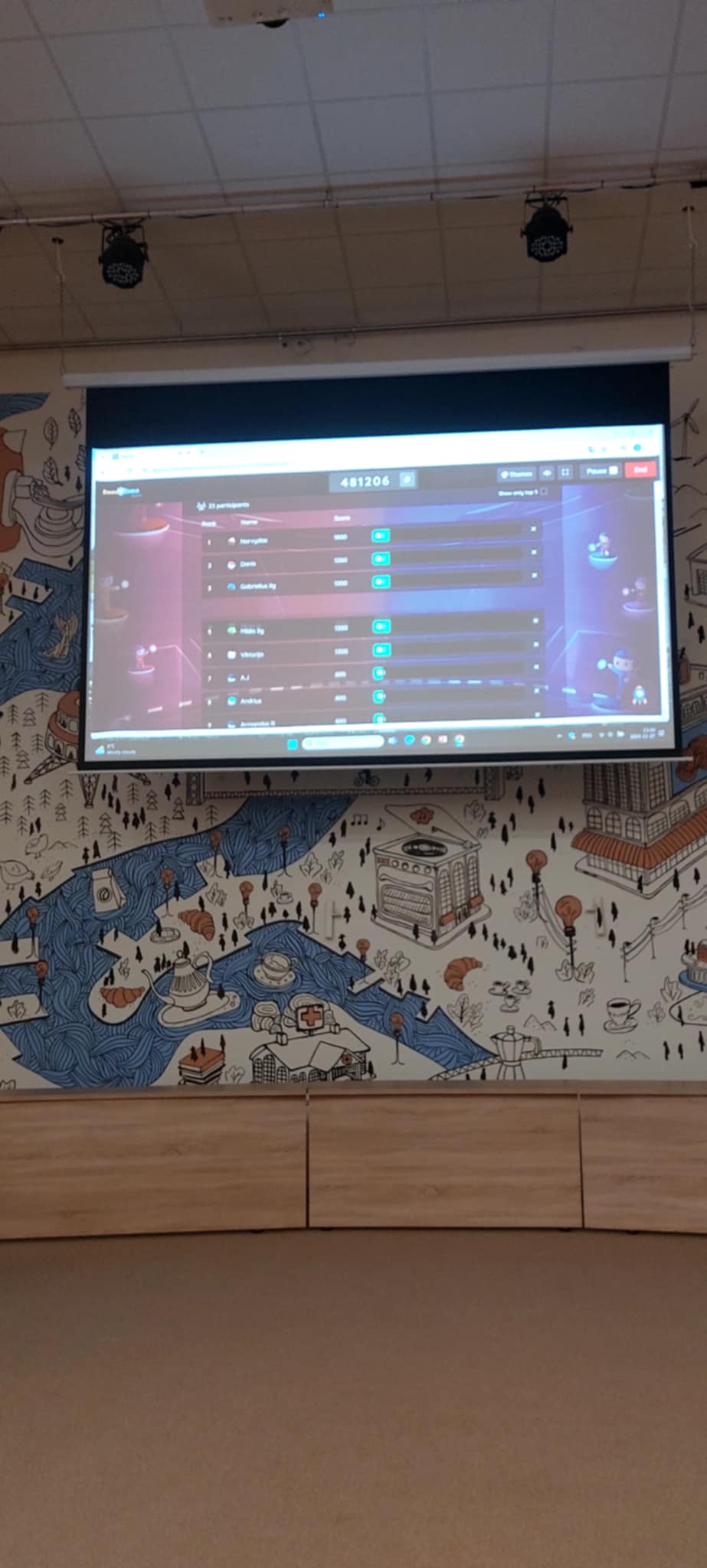
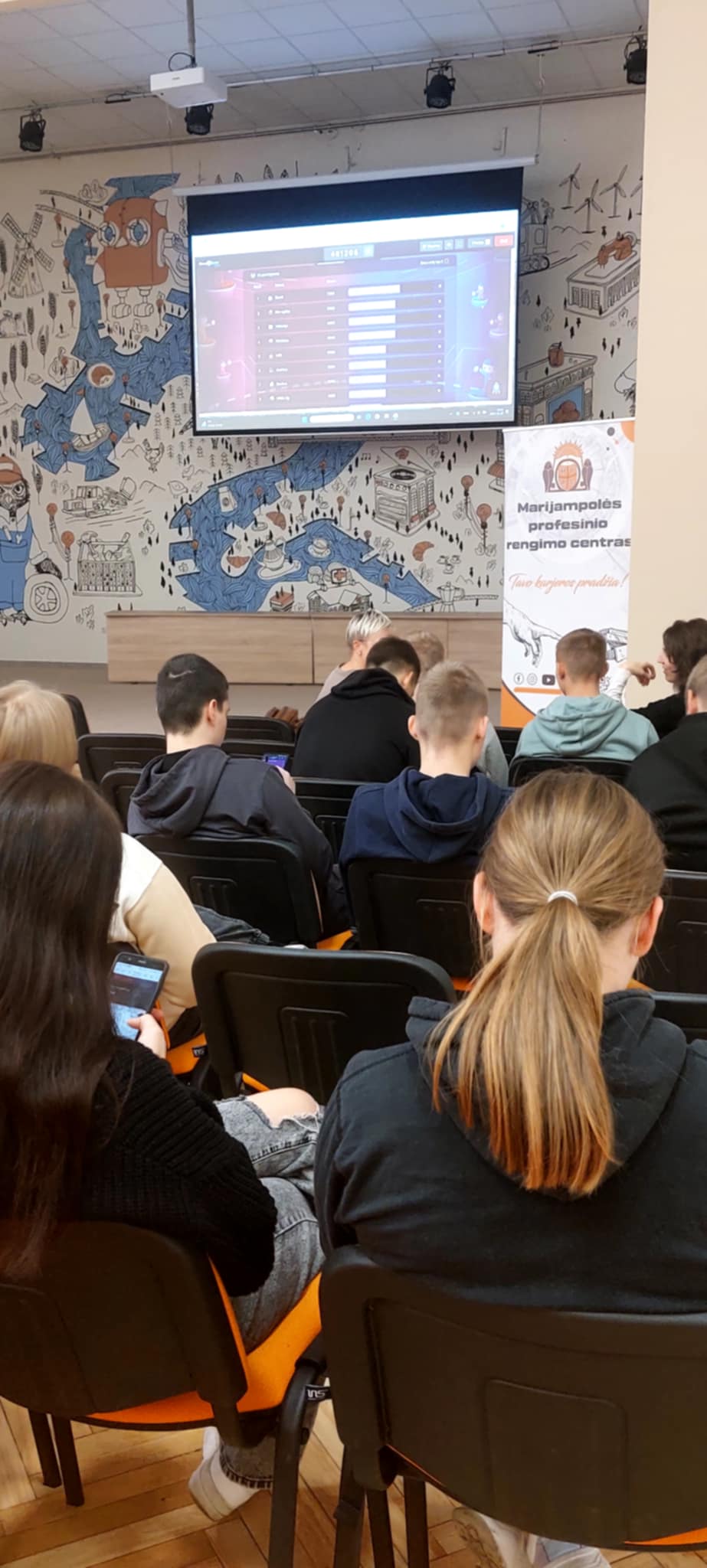
30/10/2024 - INPLANET: Exploring and Promoting Digital Citizenship vs. Cyber Addiction and Online Misconduct Workshop
An enlightening workshop where participants dove into the critical topics of digital citizenship, cyber addiction, and online misconduct. Through engaging discussions, they explored responsible online behavior and strategies to enhance digital well-being.

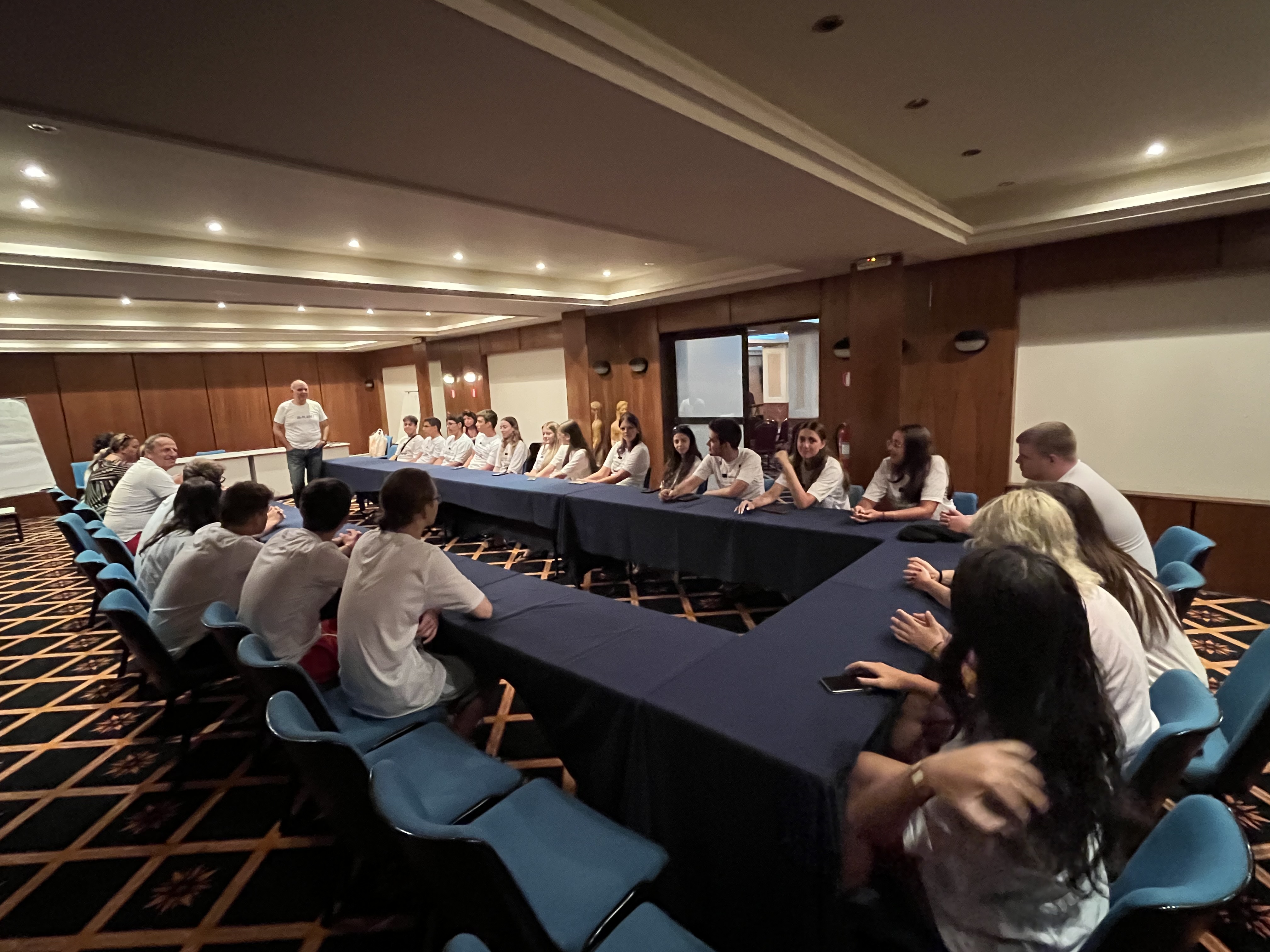
27/10/2024 - INPLANET: Forum Theater Workshop to Combat Internet and Social Media Addiction
Participants engaged deeply with the material, learning innovative ways to address the challenges posed by excessive internet and social media use. Through applied theater, participants discovered how to recognize and resist digital addiction behaviors. They created impactful narratives based on real-life experiences with internet and social media addiction, developing scripts, identifying key moments, arranging scenes, and assigning roles to raise awareness about digital addiction. This workshop provided valuable insights and practical tools for young people to combat cyberbullying and promote healthier online behaviors. It was a powerful reminder that through creative and interactive approaches, we can make significant strides in addressing digital addiction and fostering a supportive community.
26/10/2024 - INPLANET: Understanding Internet & Social Media Addiction Workshop
Participants delved into the impact of excessive screen time on mental health and well-being, exploring how such habits affect young people. More specifically, they:
- Explored the consequences of prolonged screen use on mental health, highlighting the challenges young people face due to excessive online activity.
- Engaged in hands-on exercises to recognize and address addictive online behaviors, such as excessive use, compulsive scrolling, and screen addiction.
- Investigated the underlying reasons for internet and social media addiction, including factors like isolation, peer pressure, and the constant need for digital connection.

